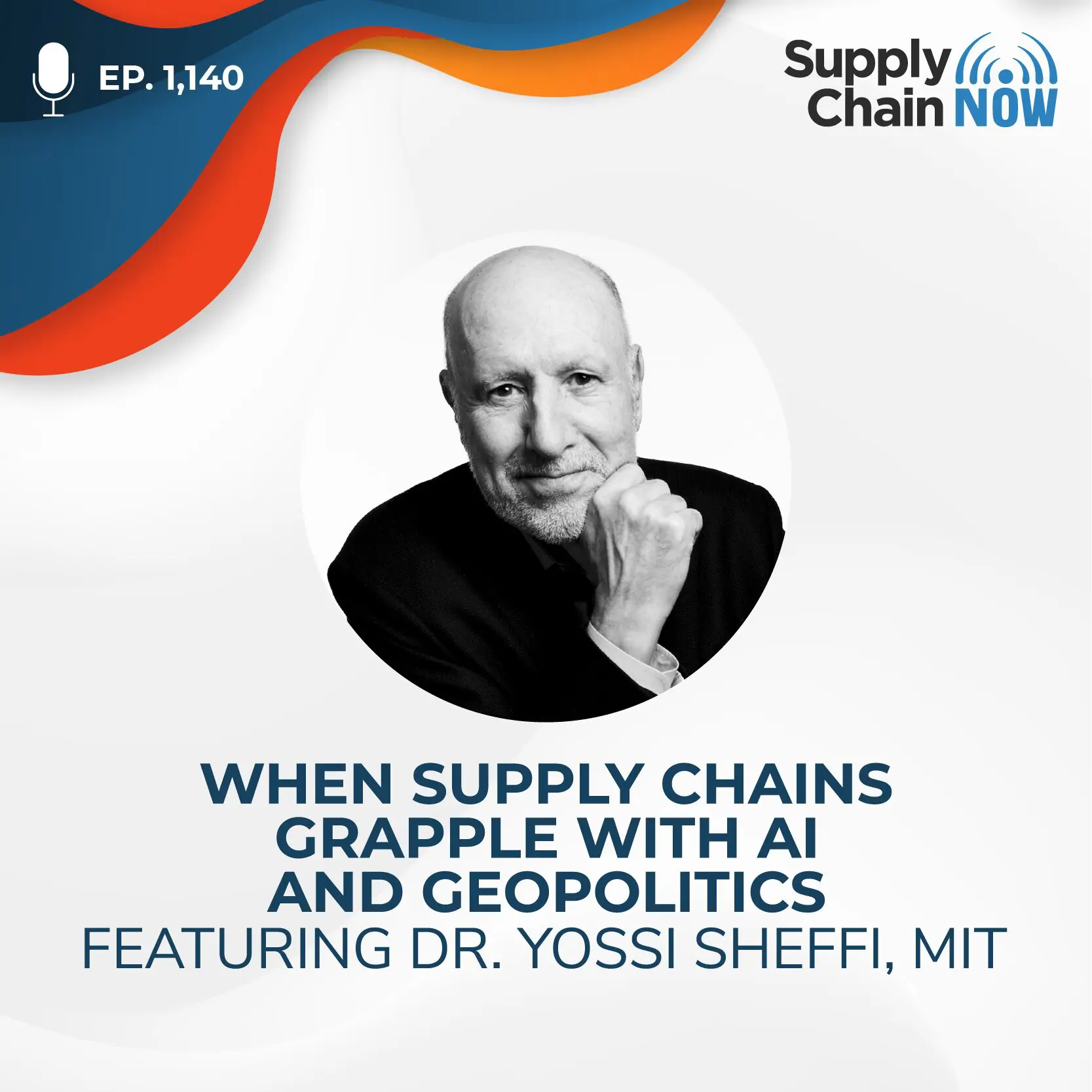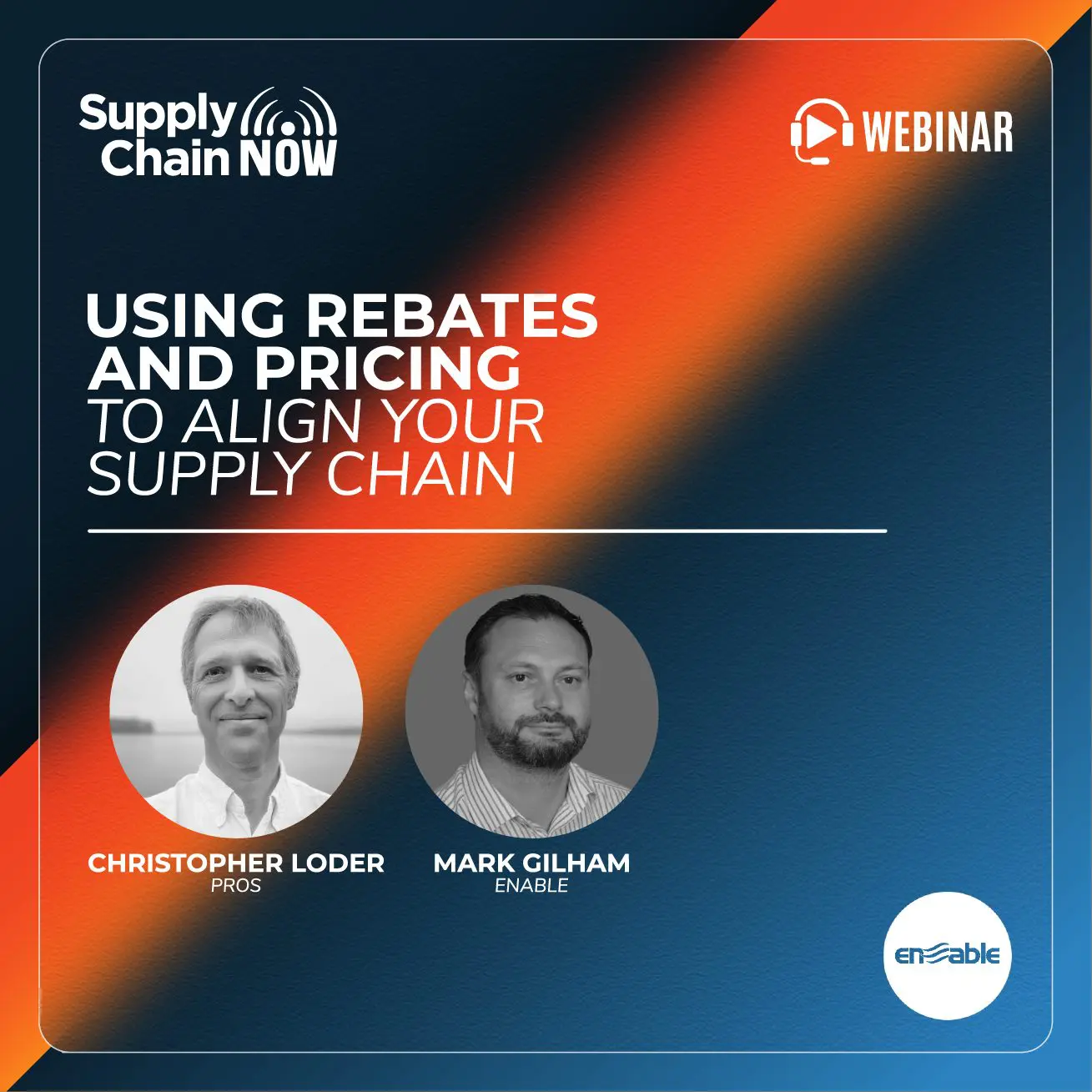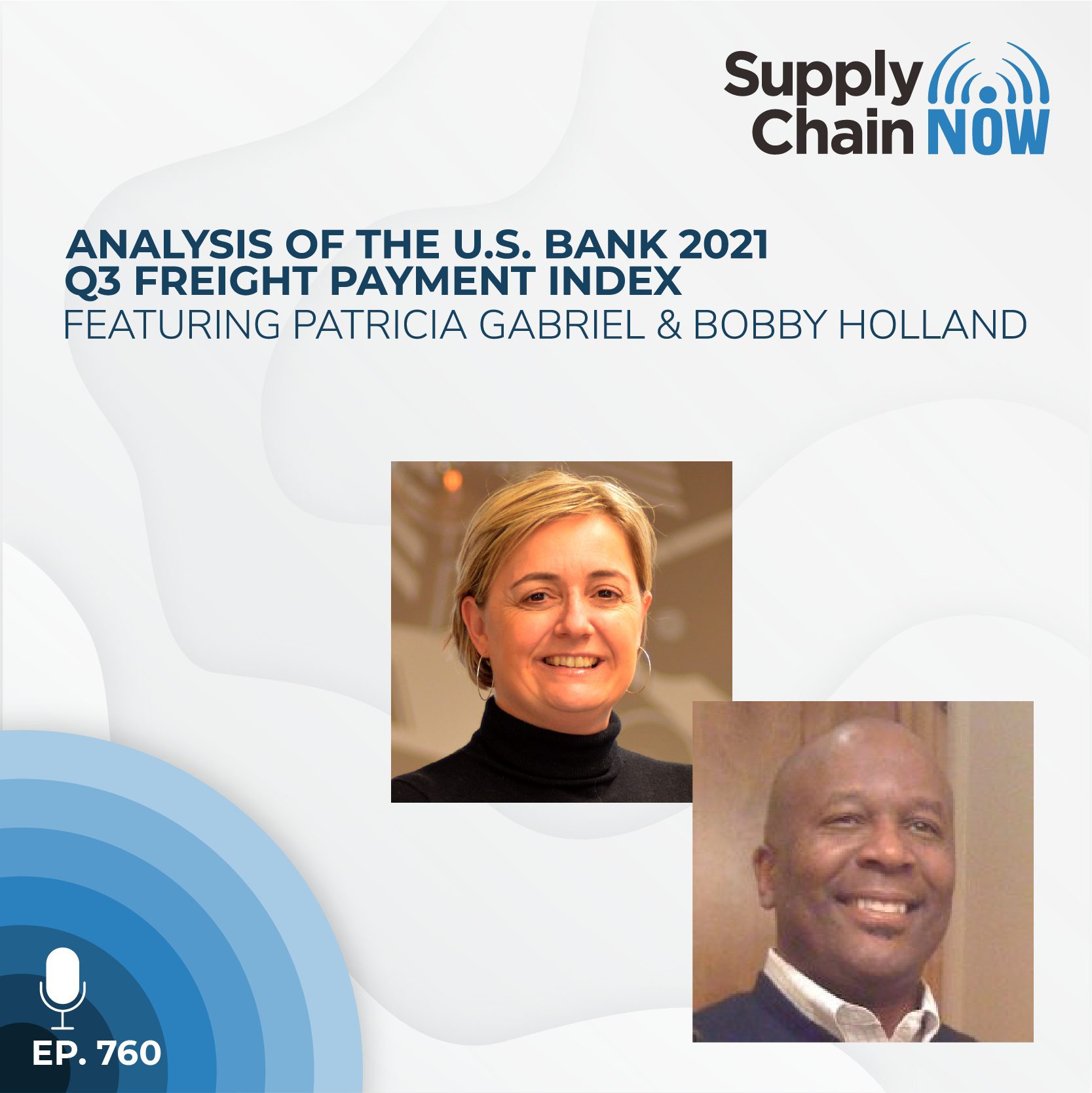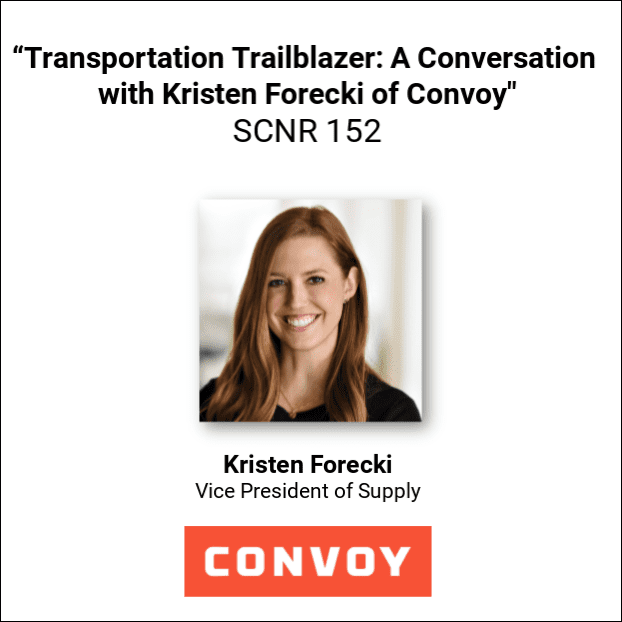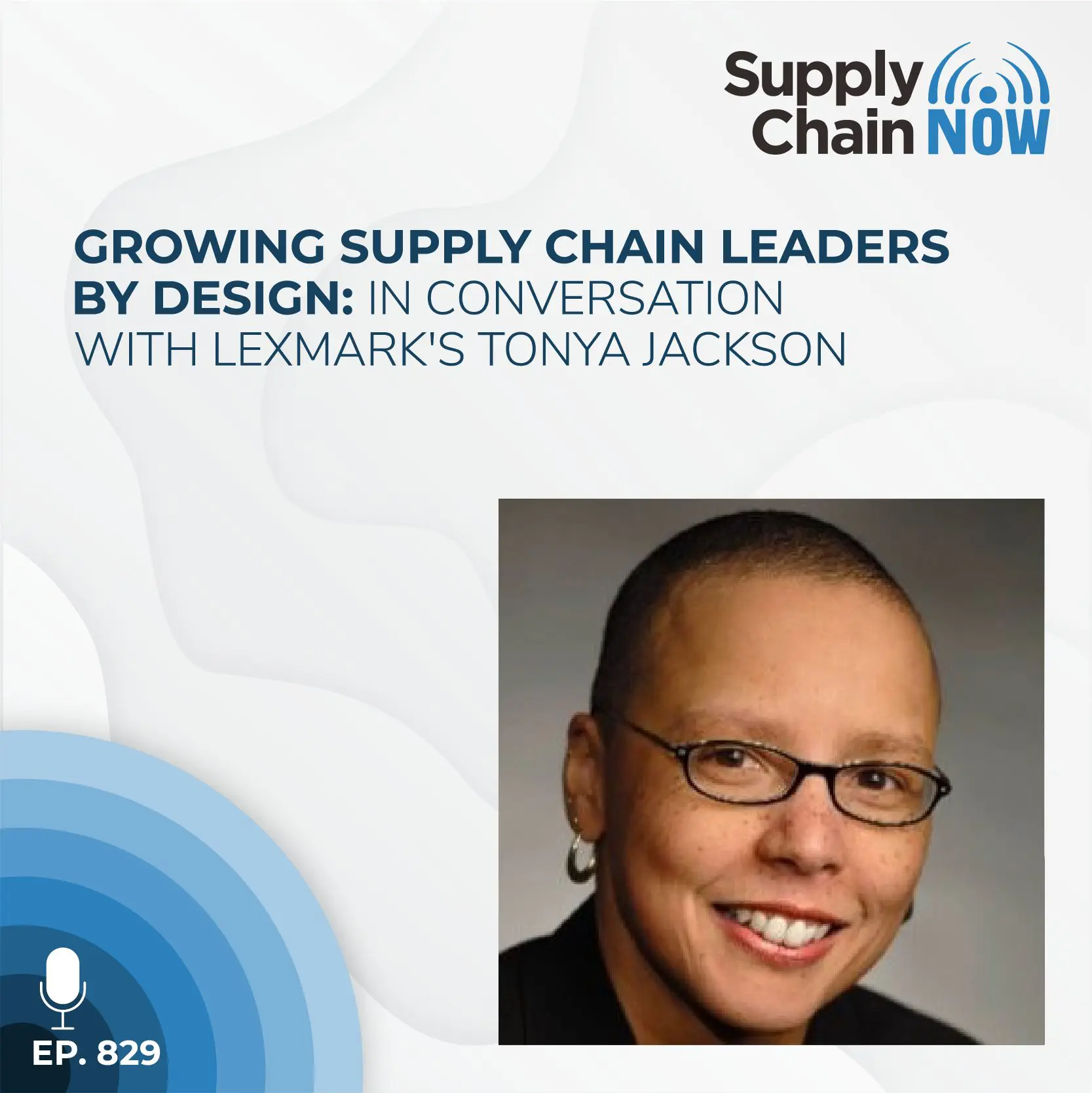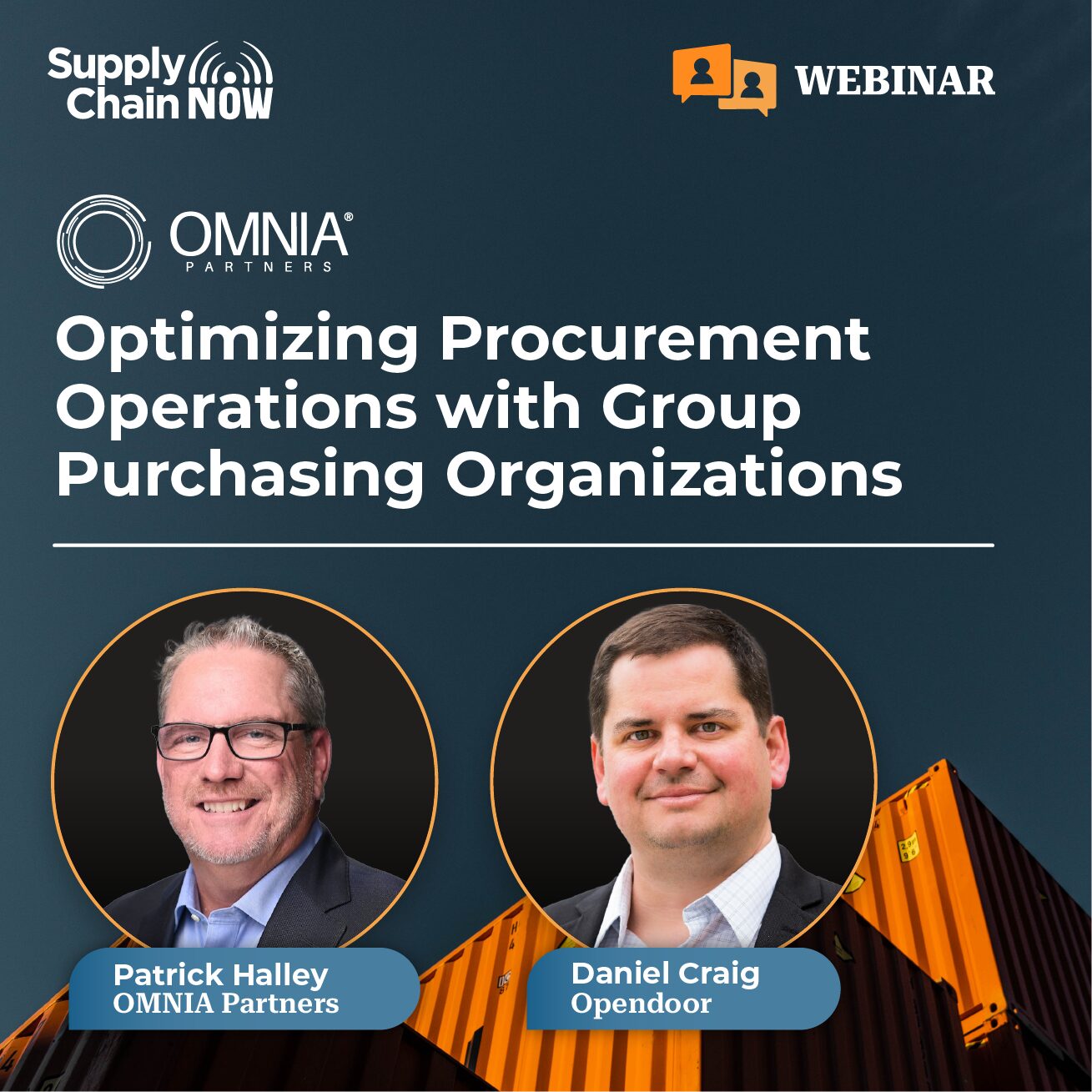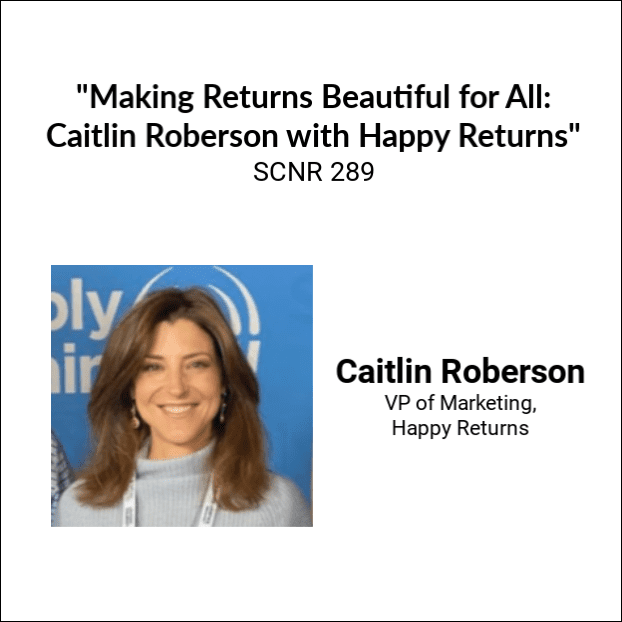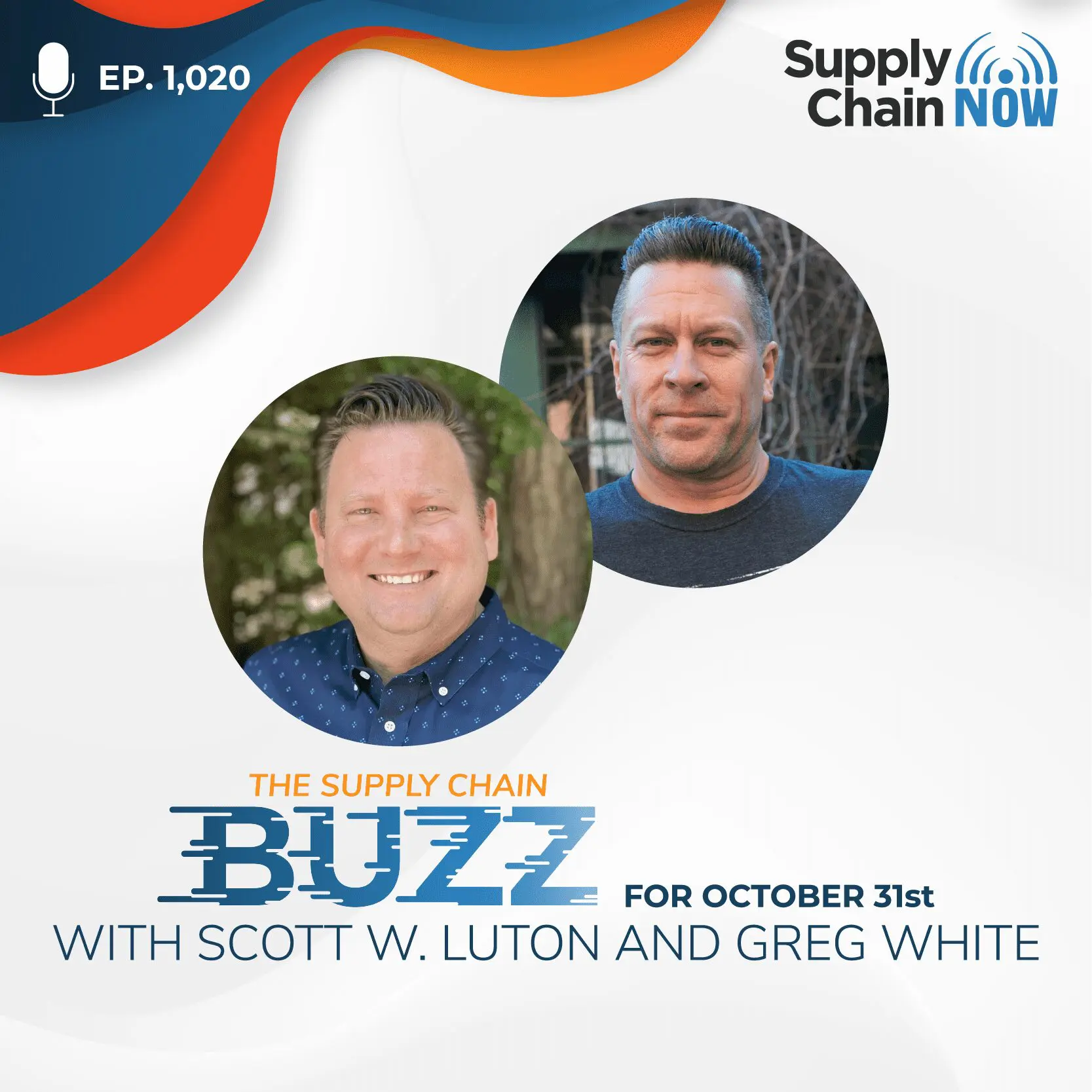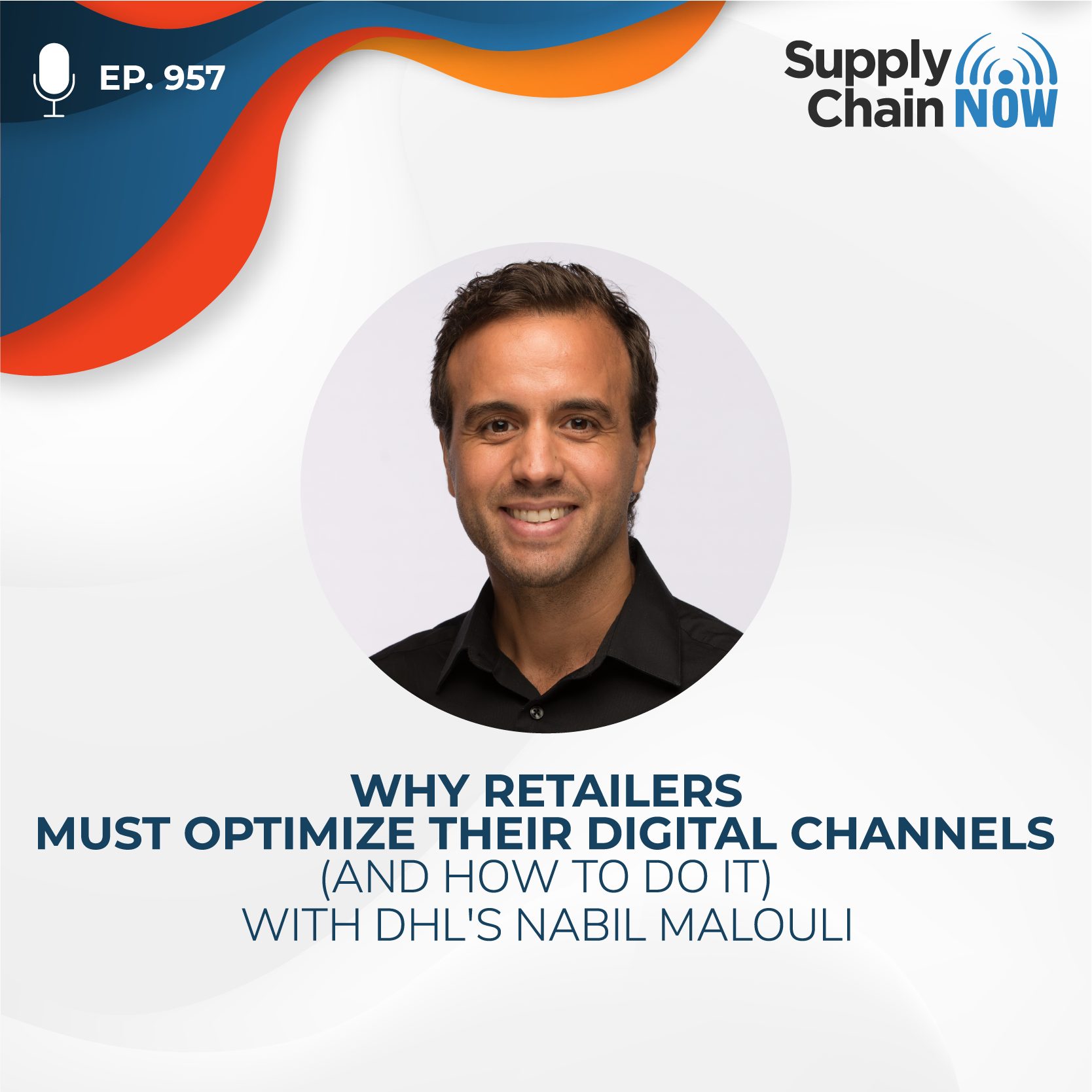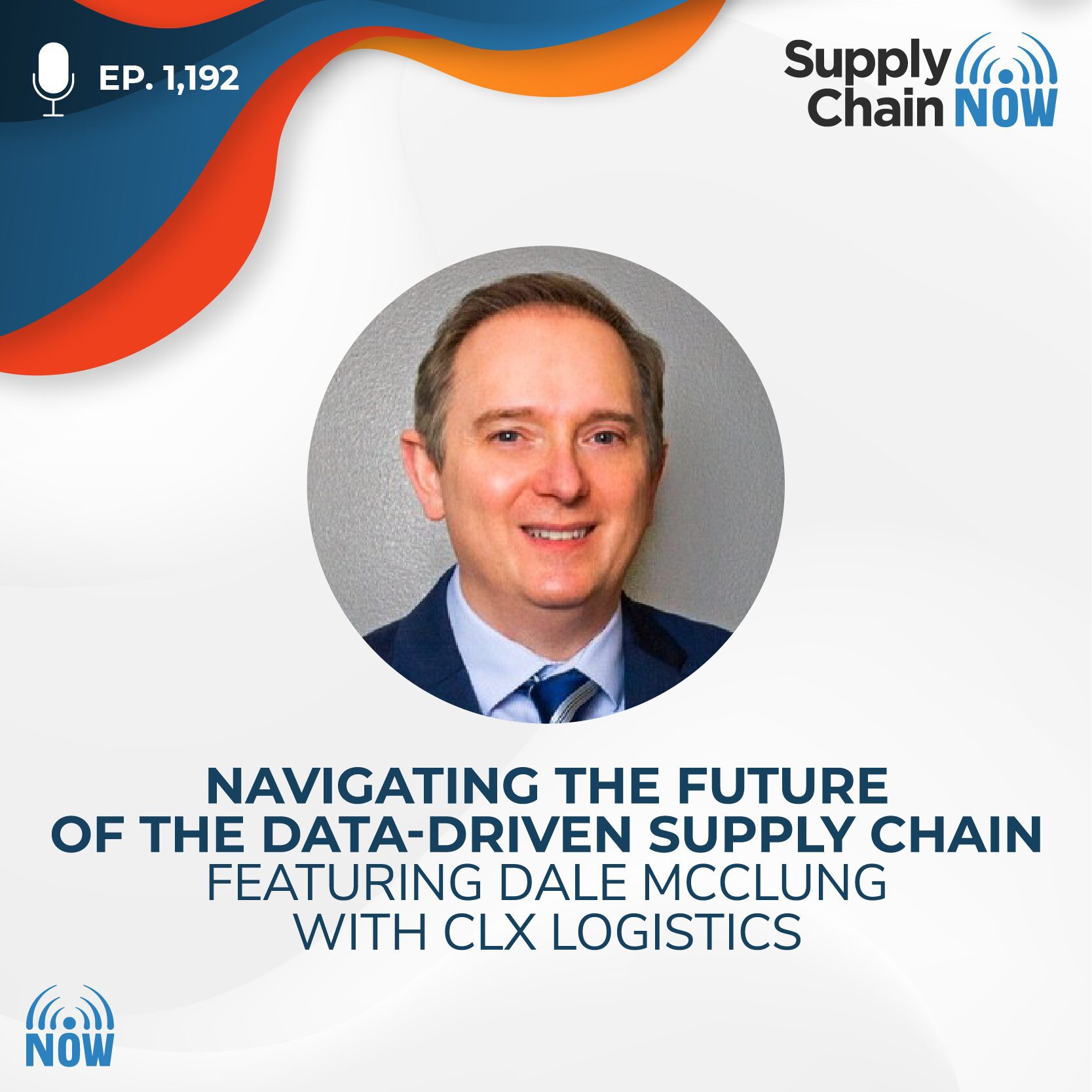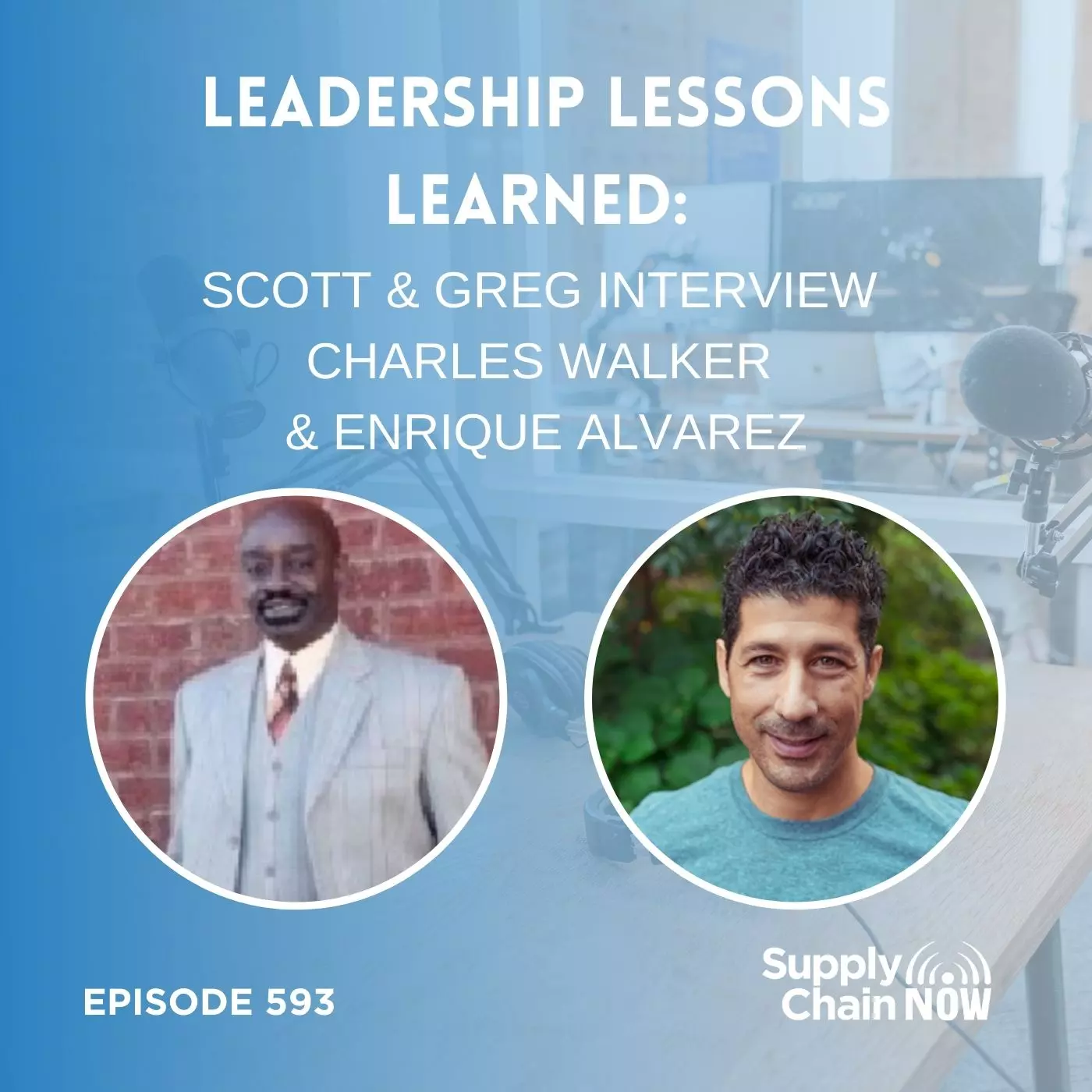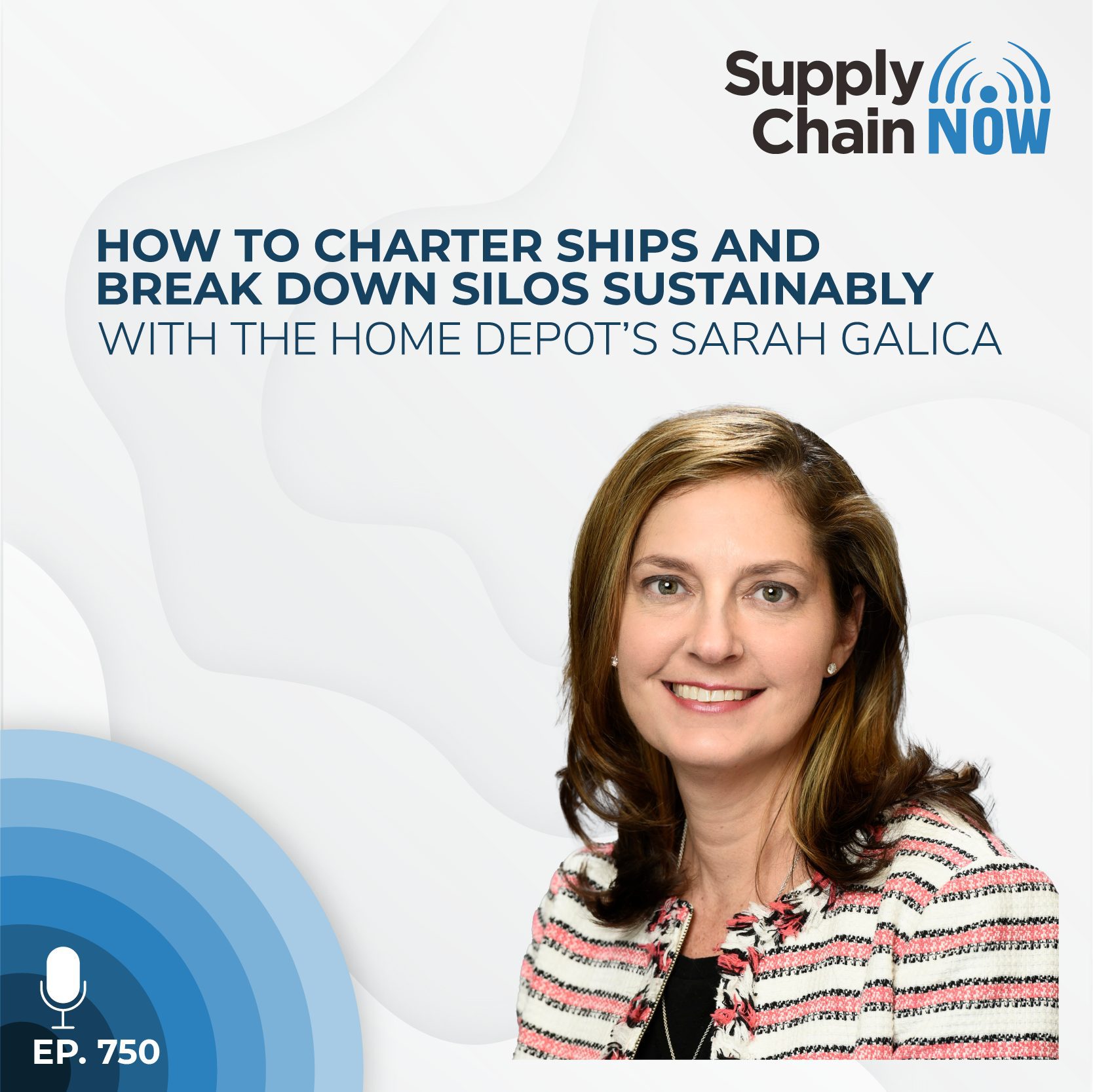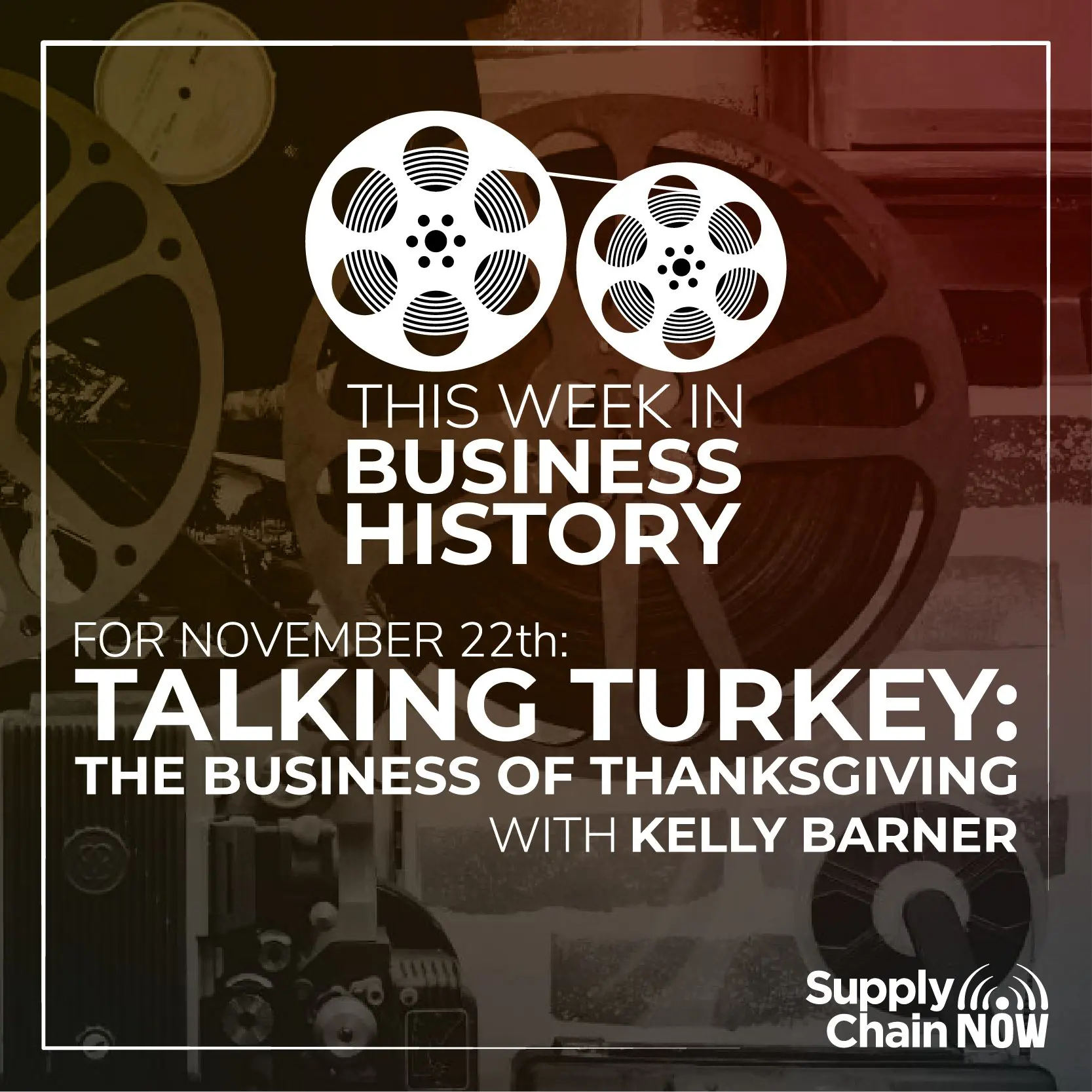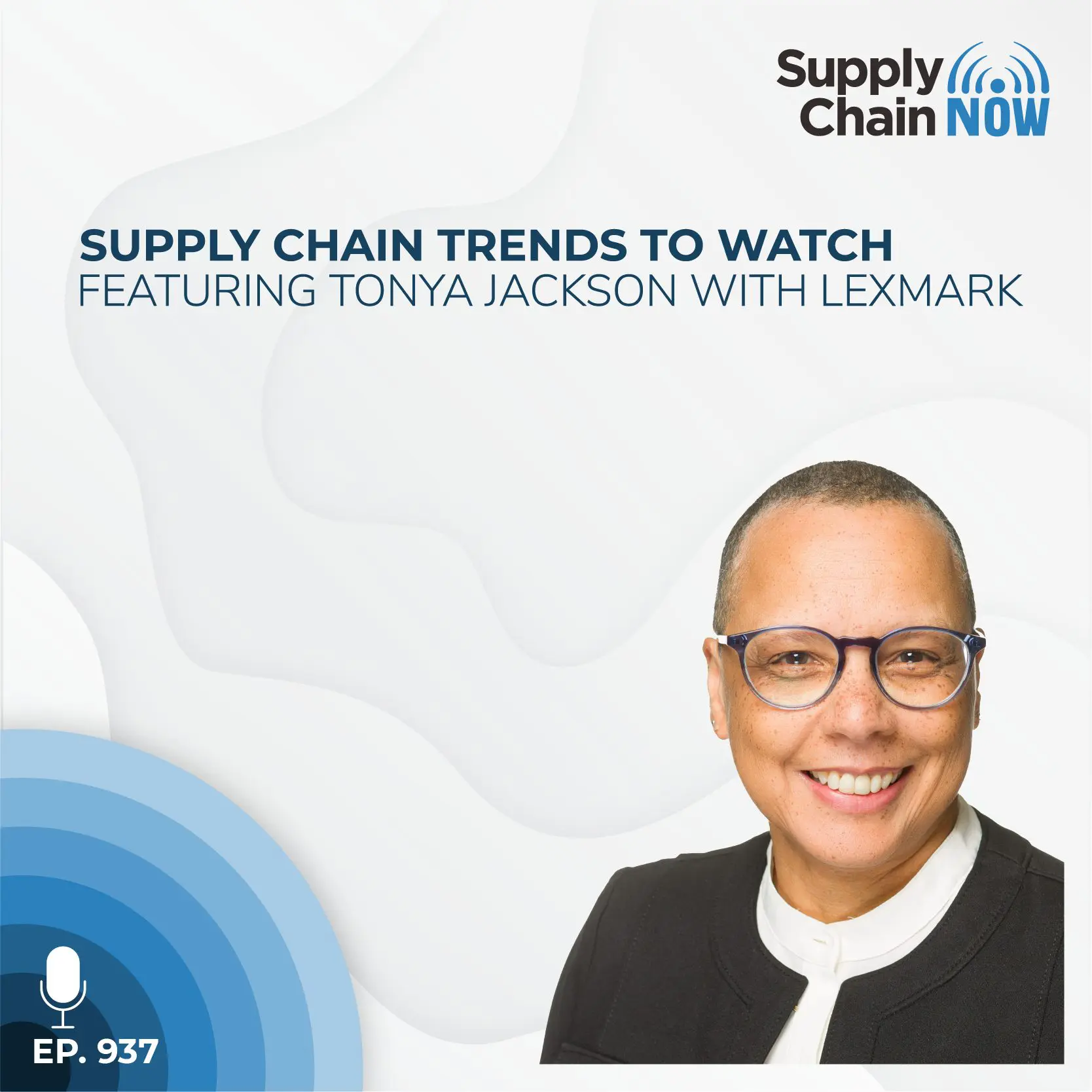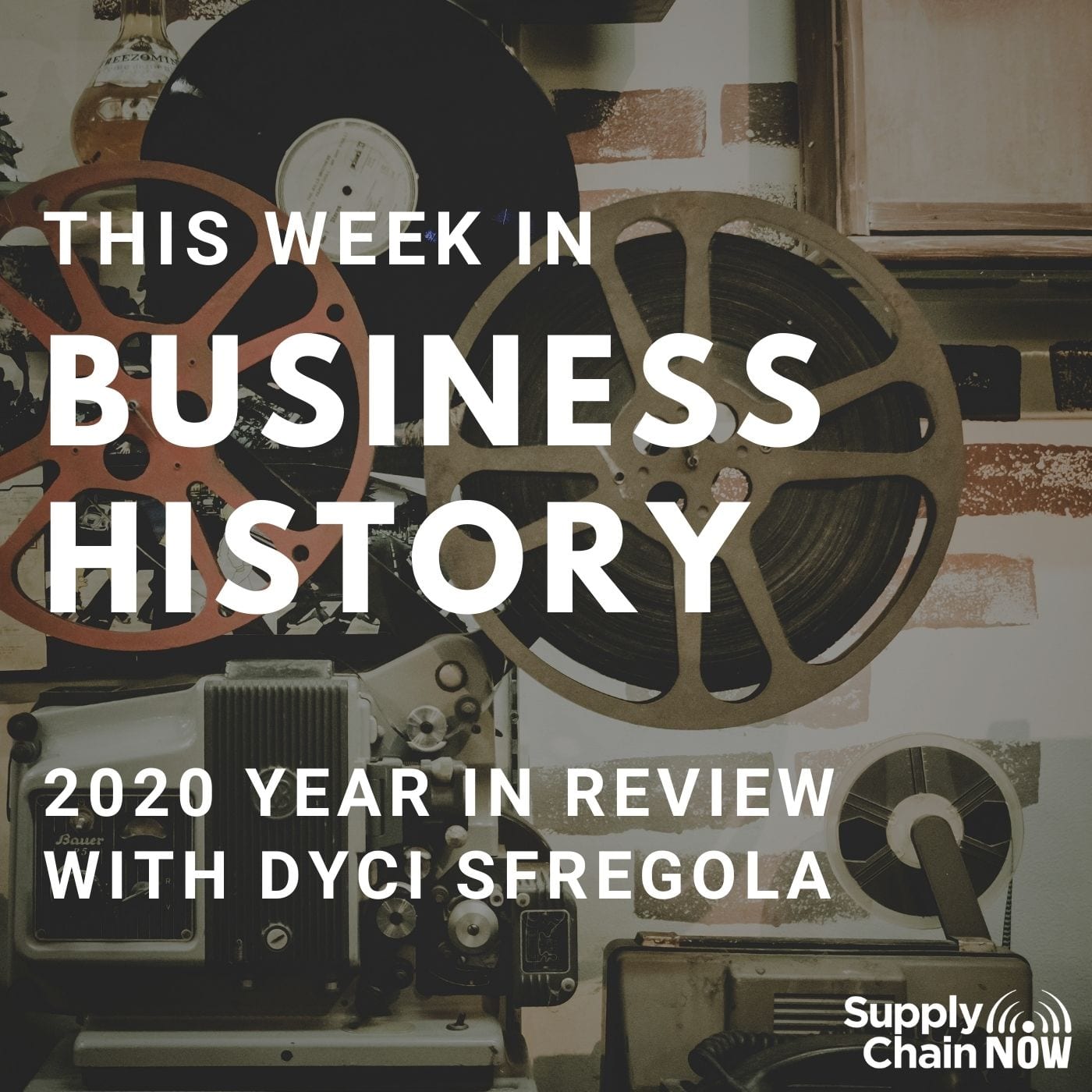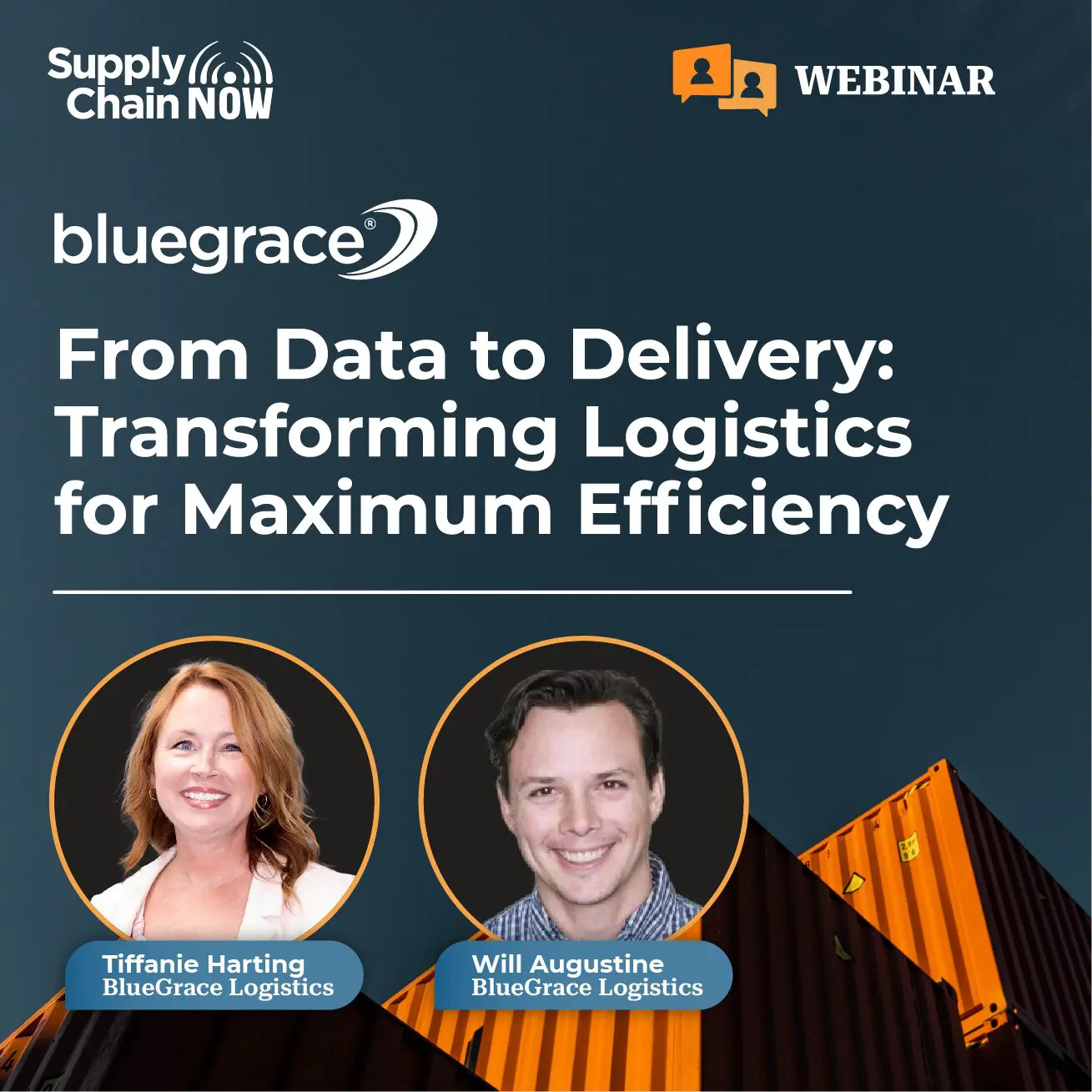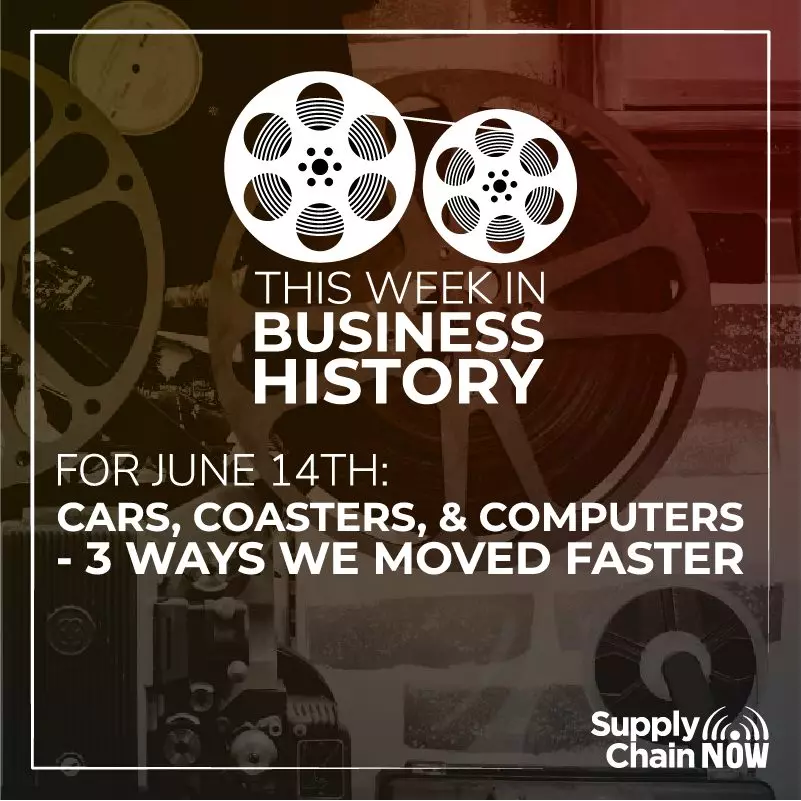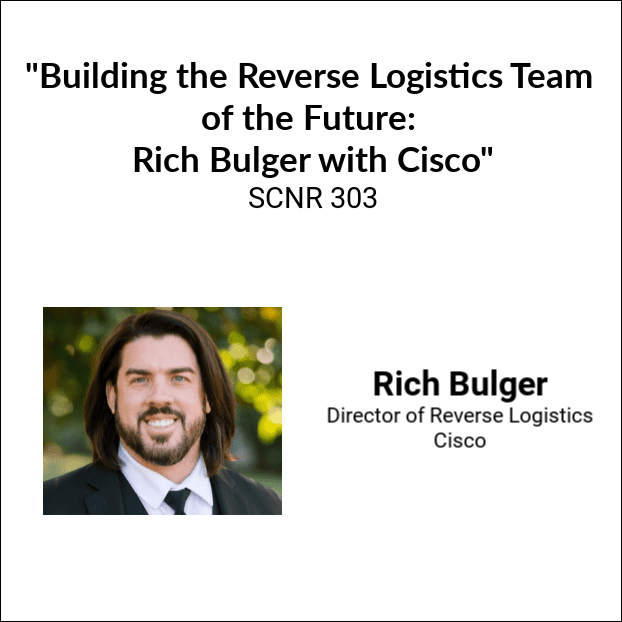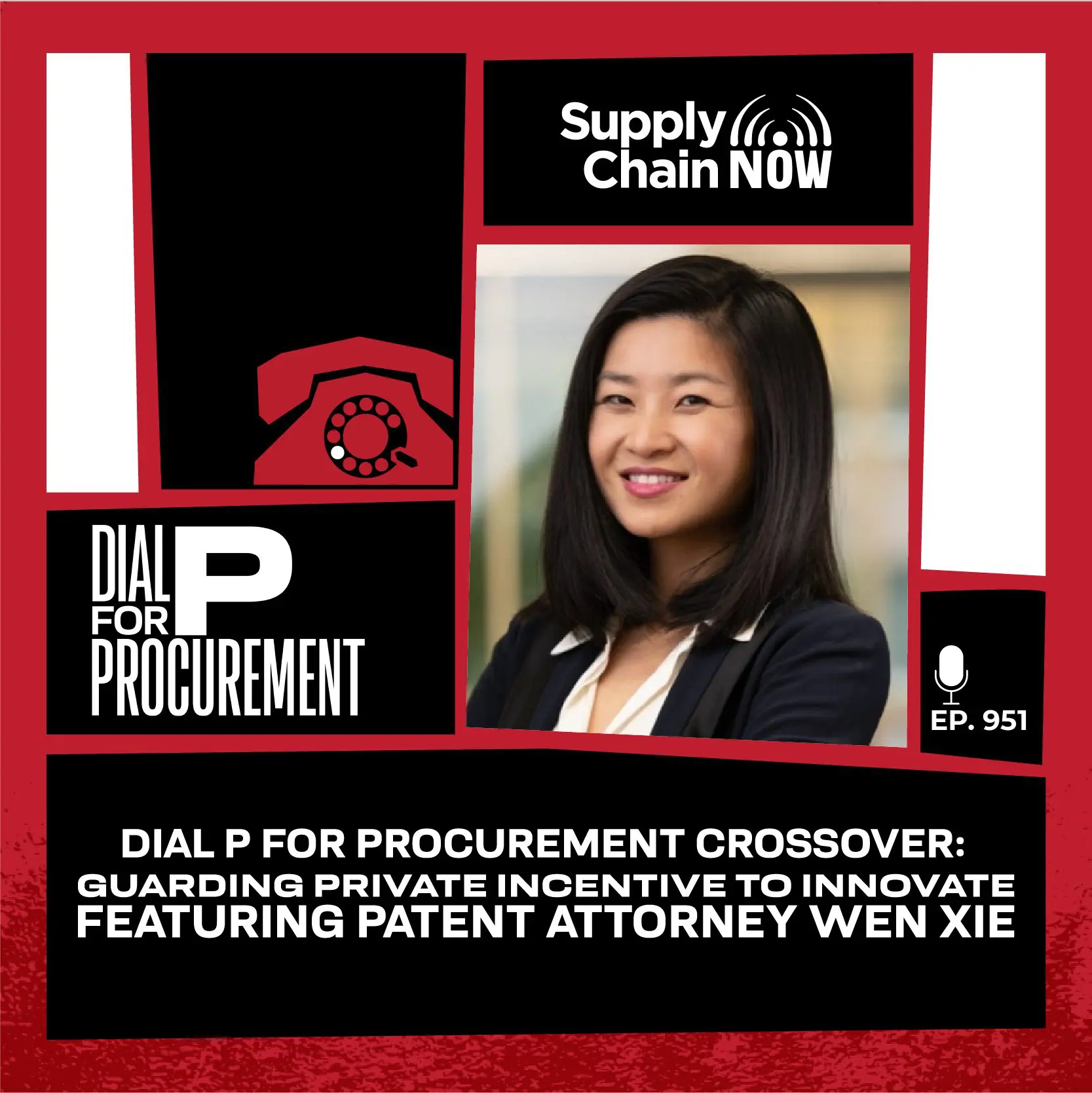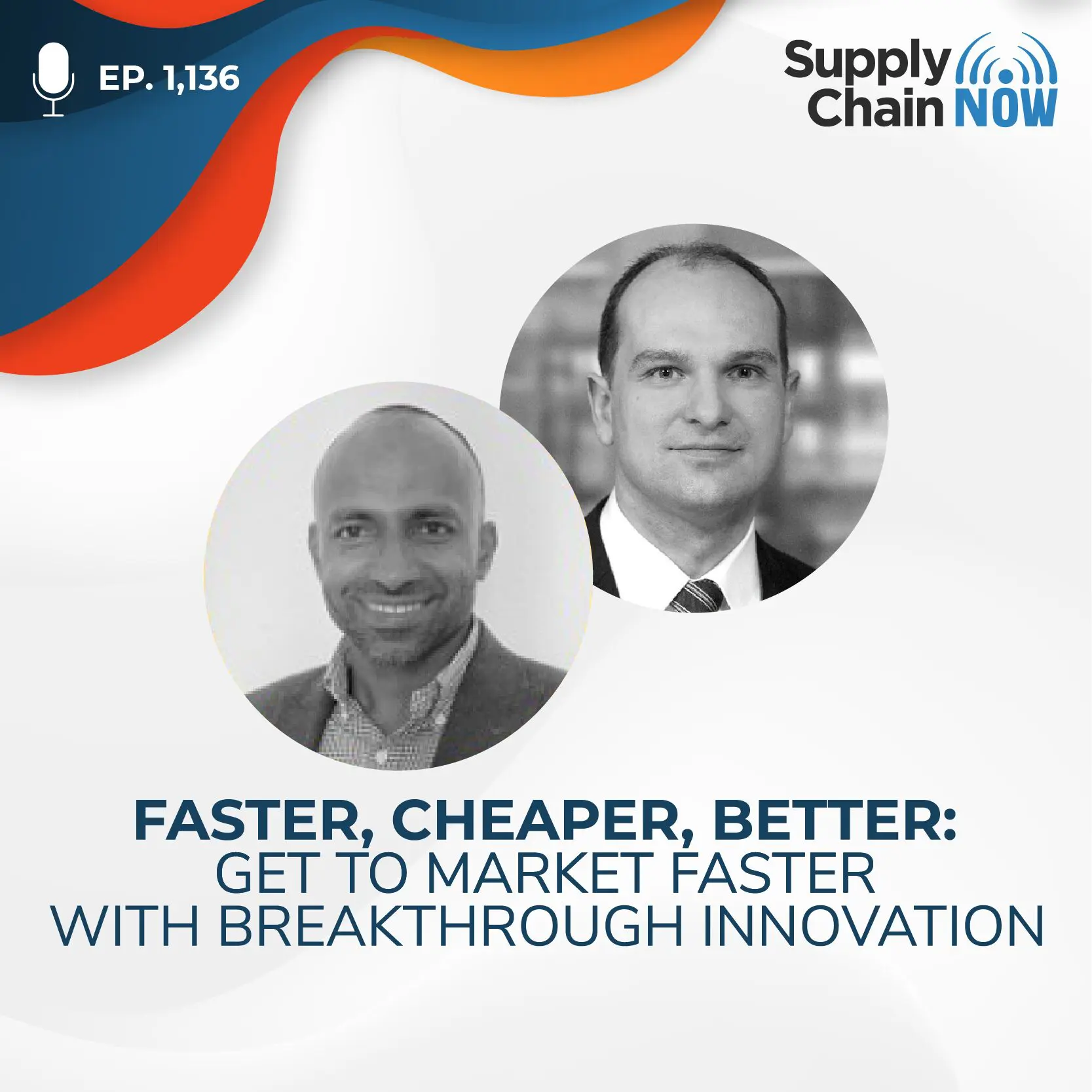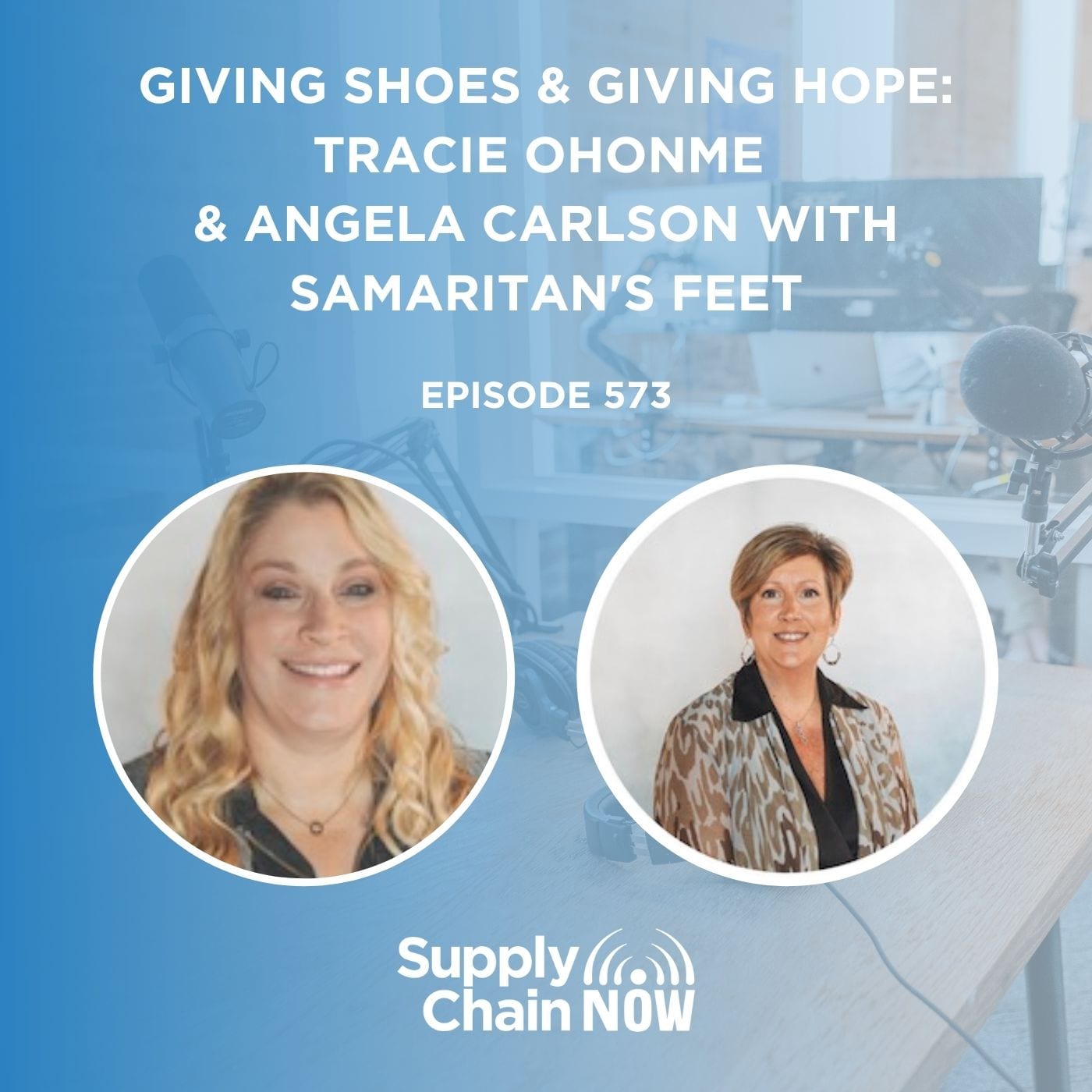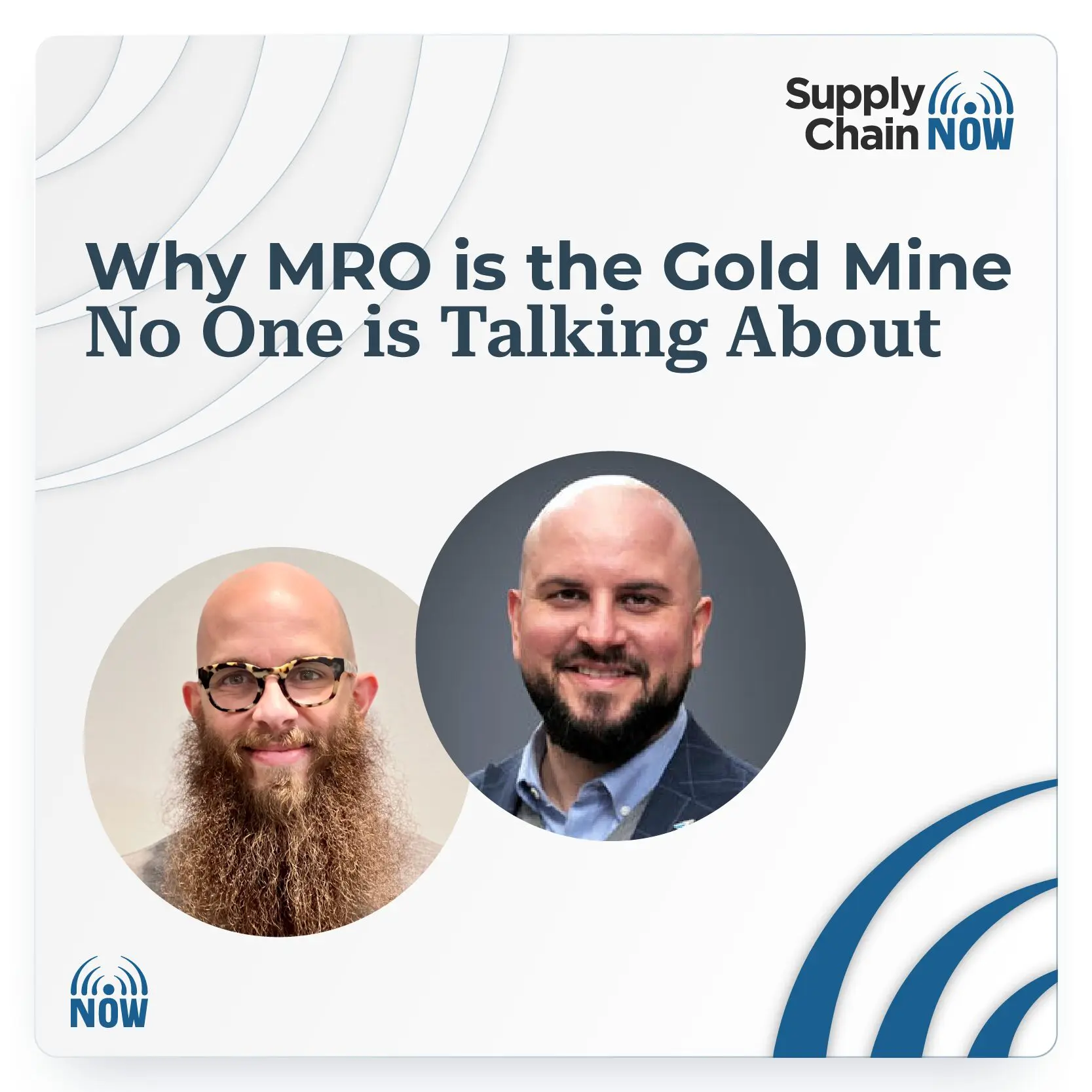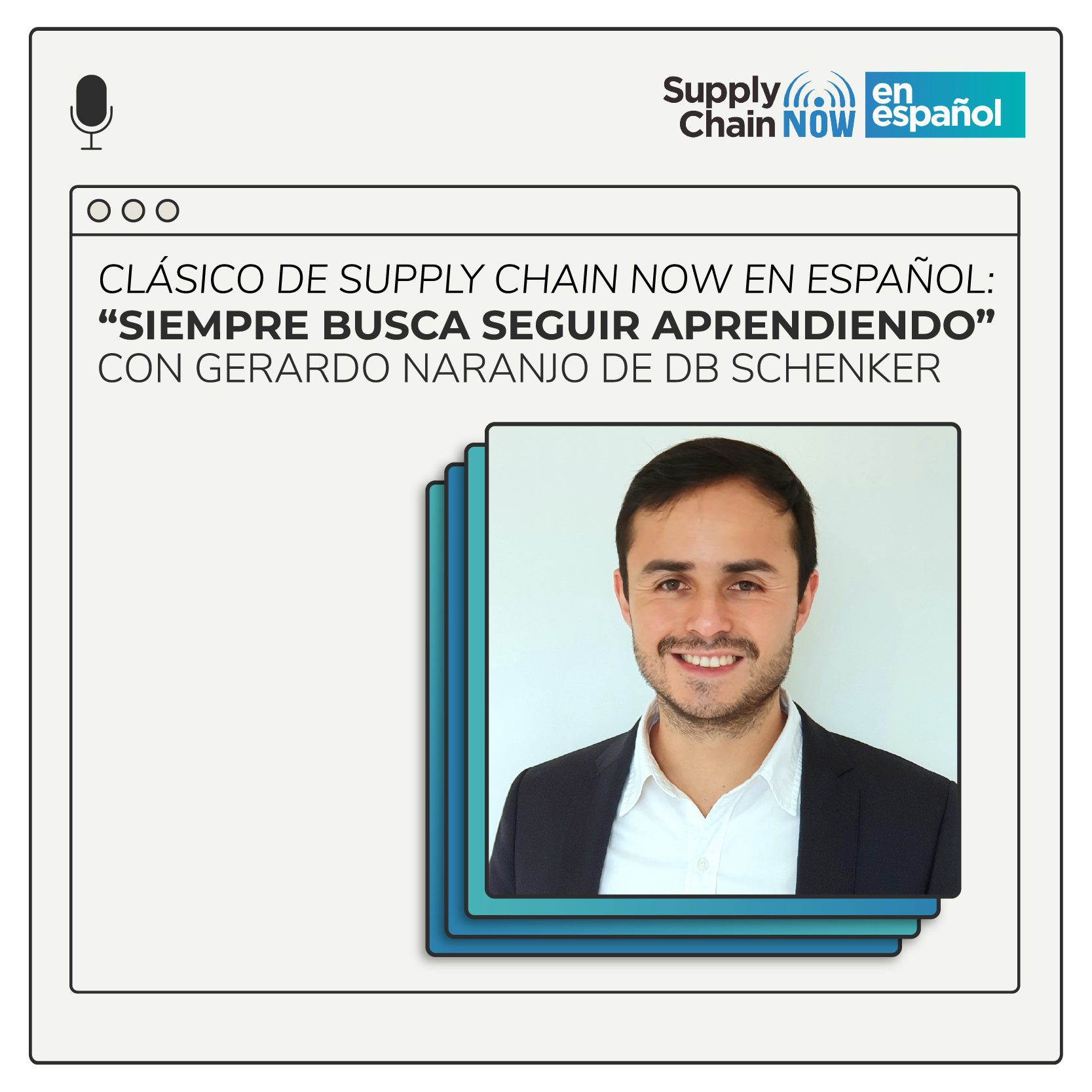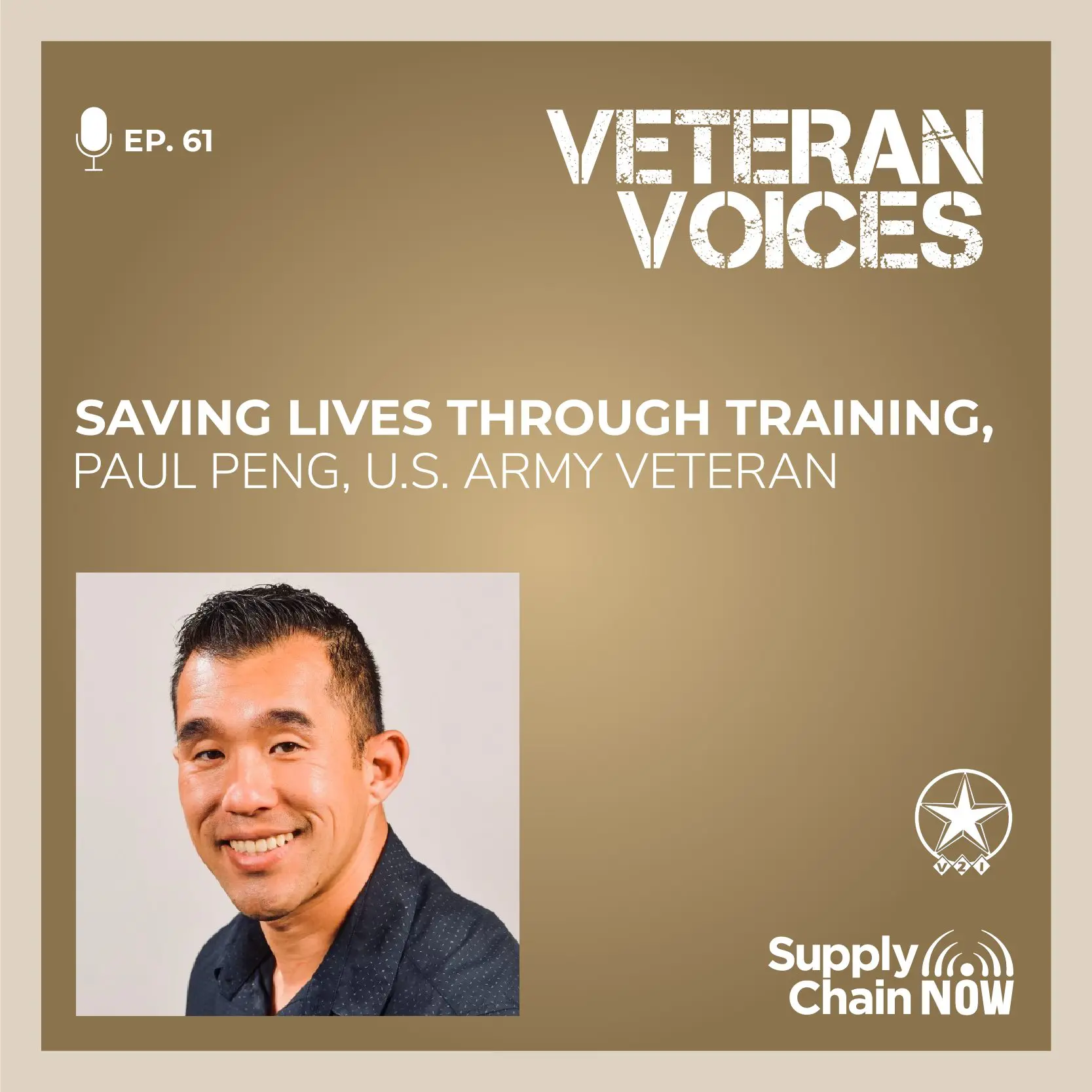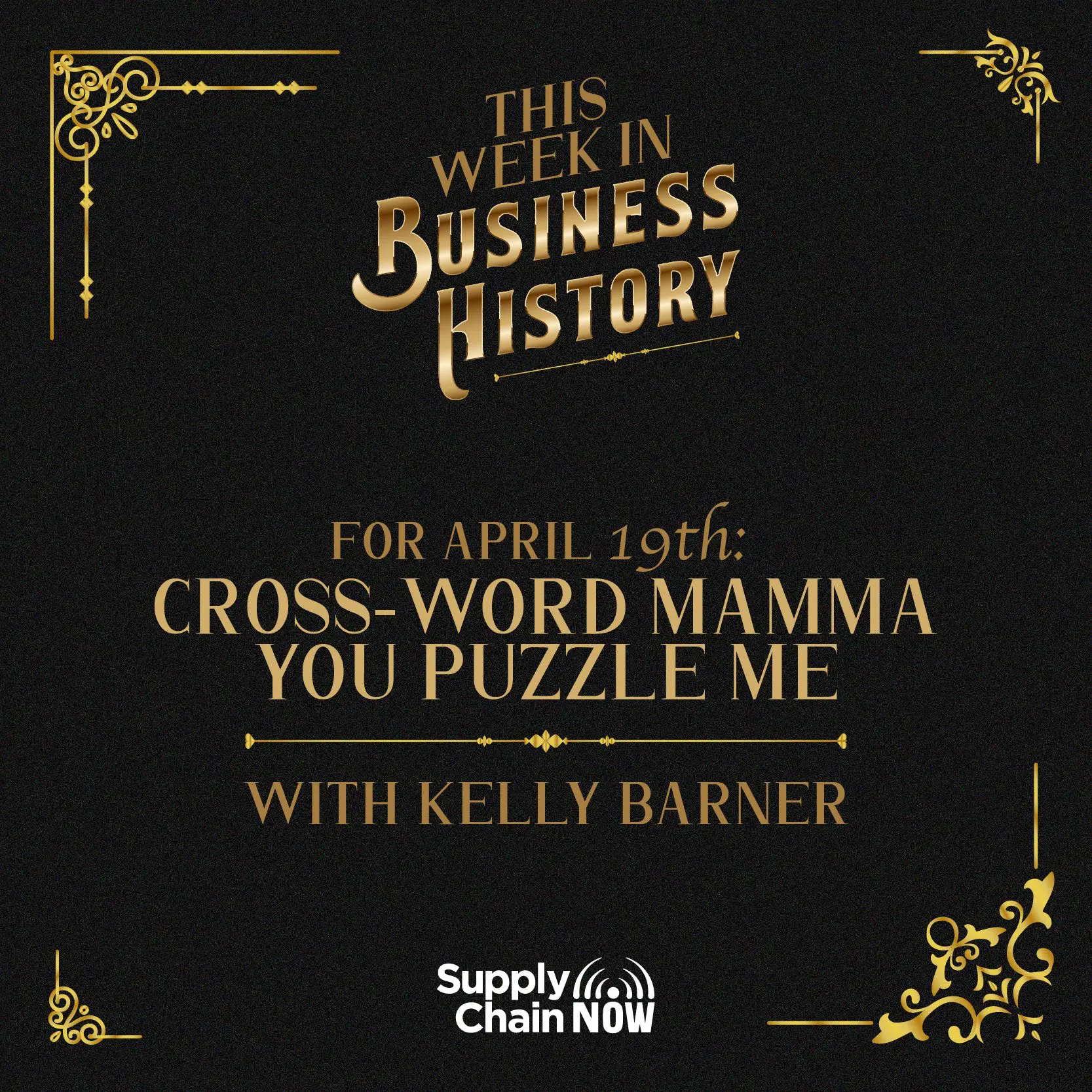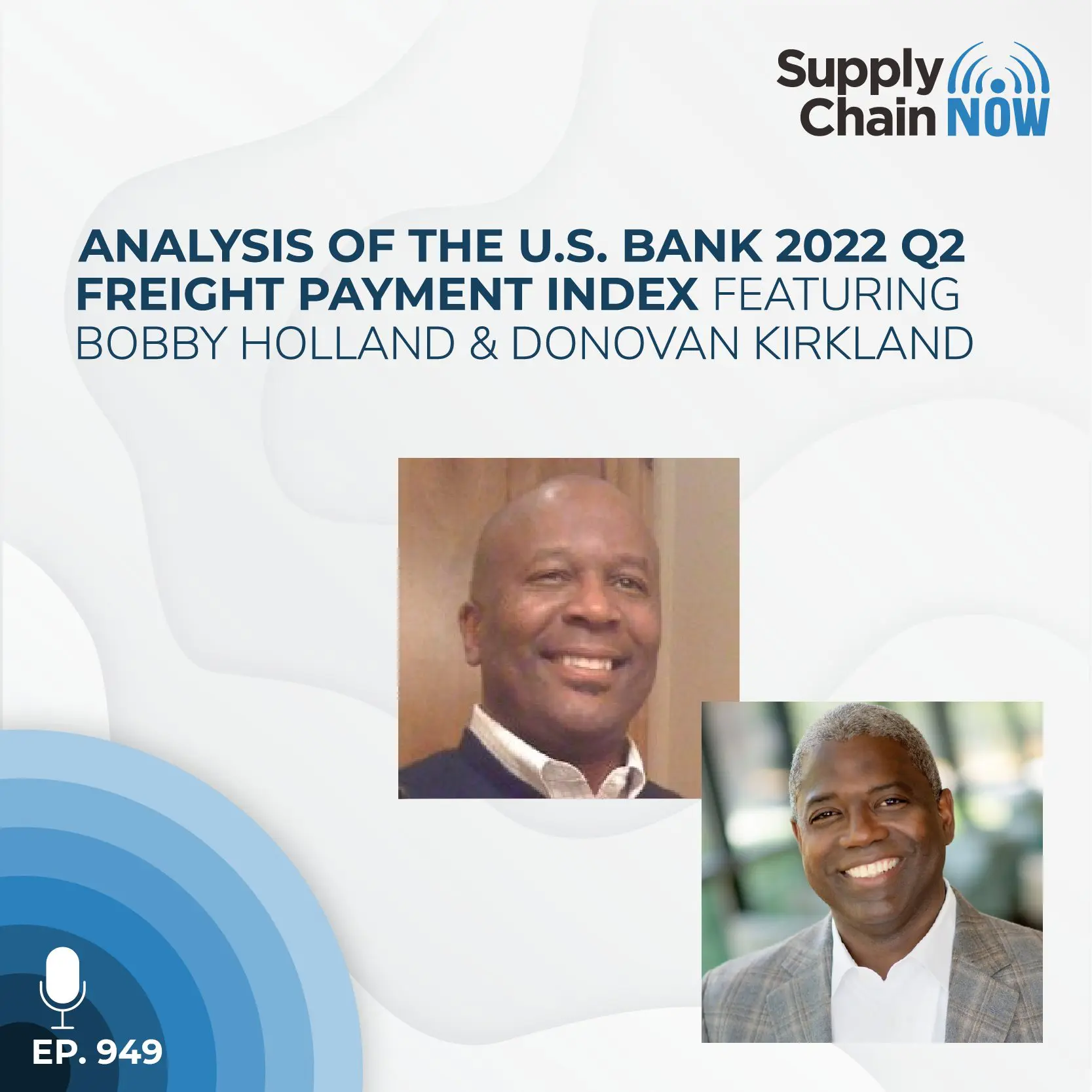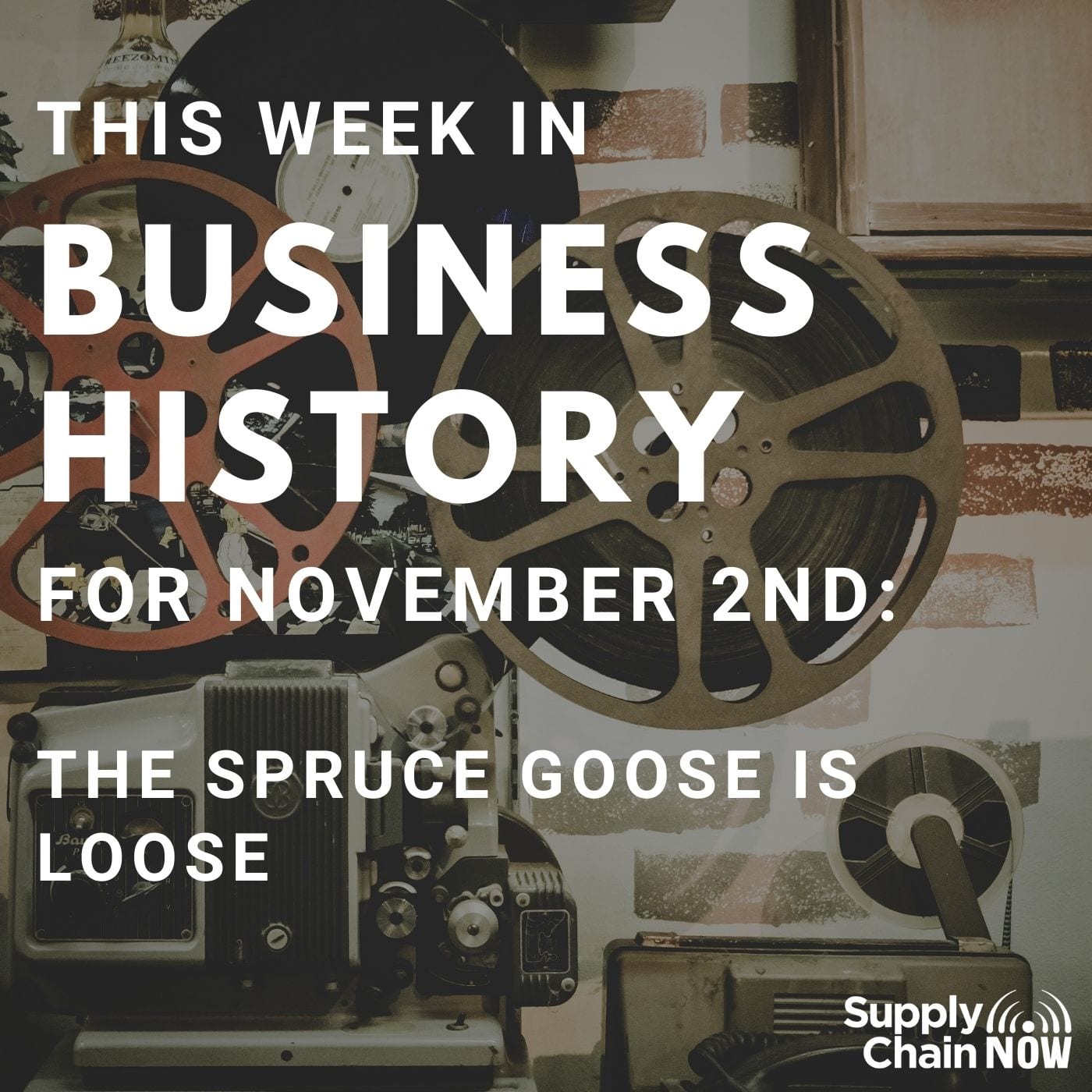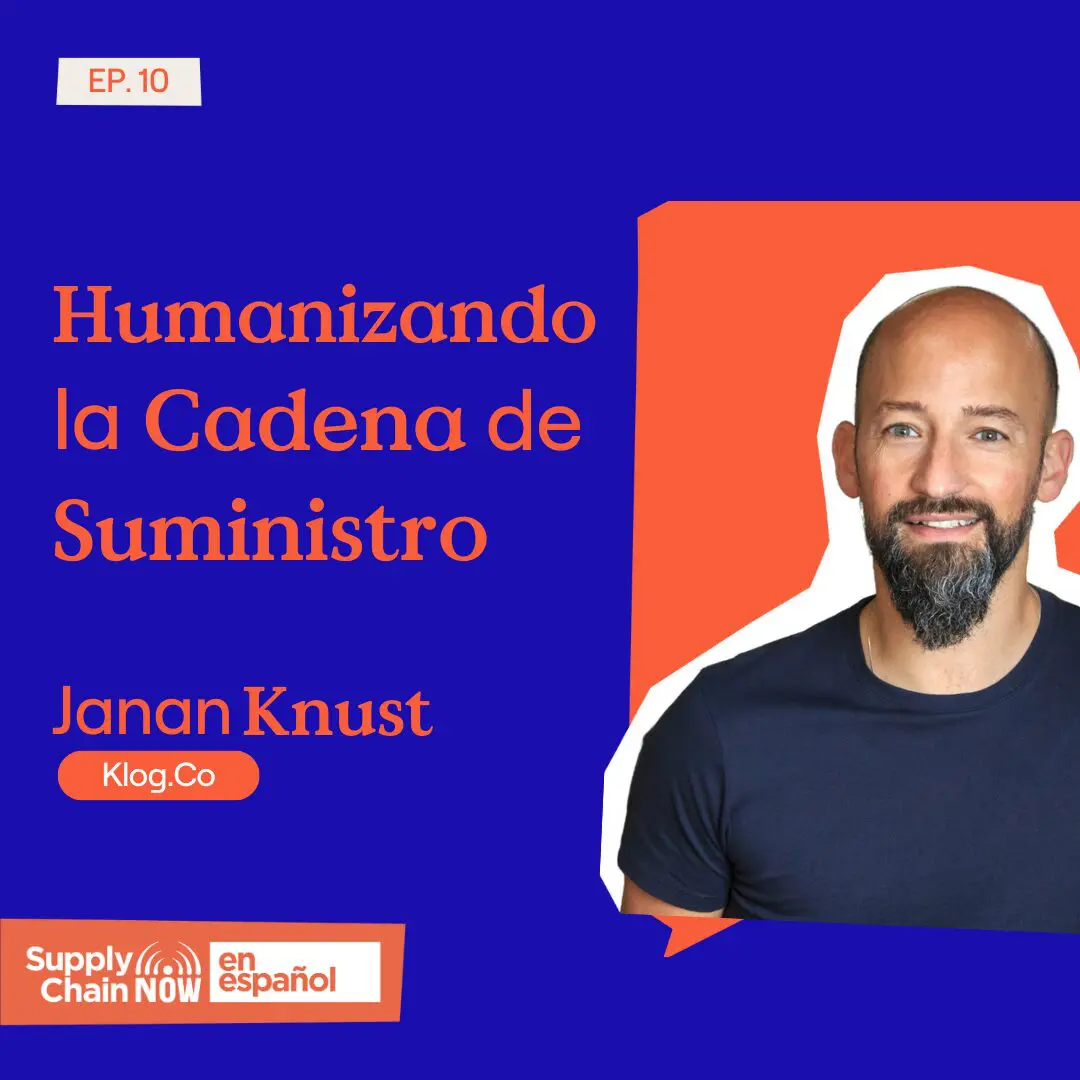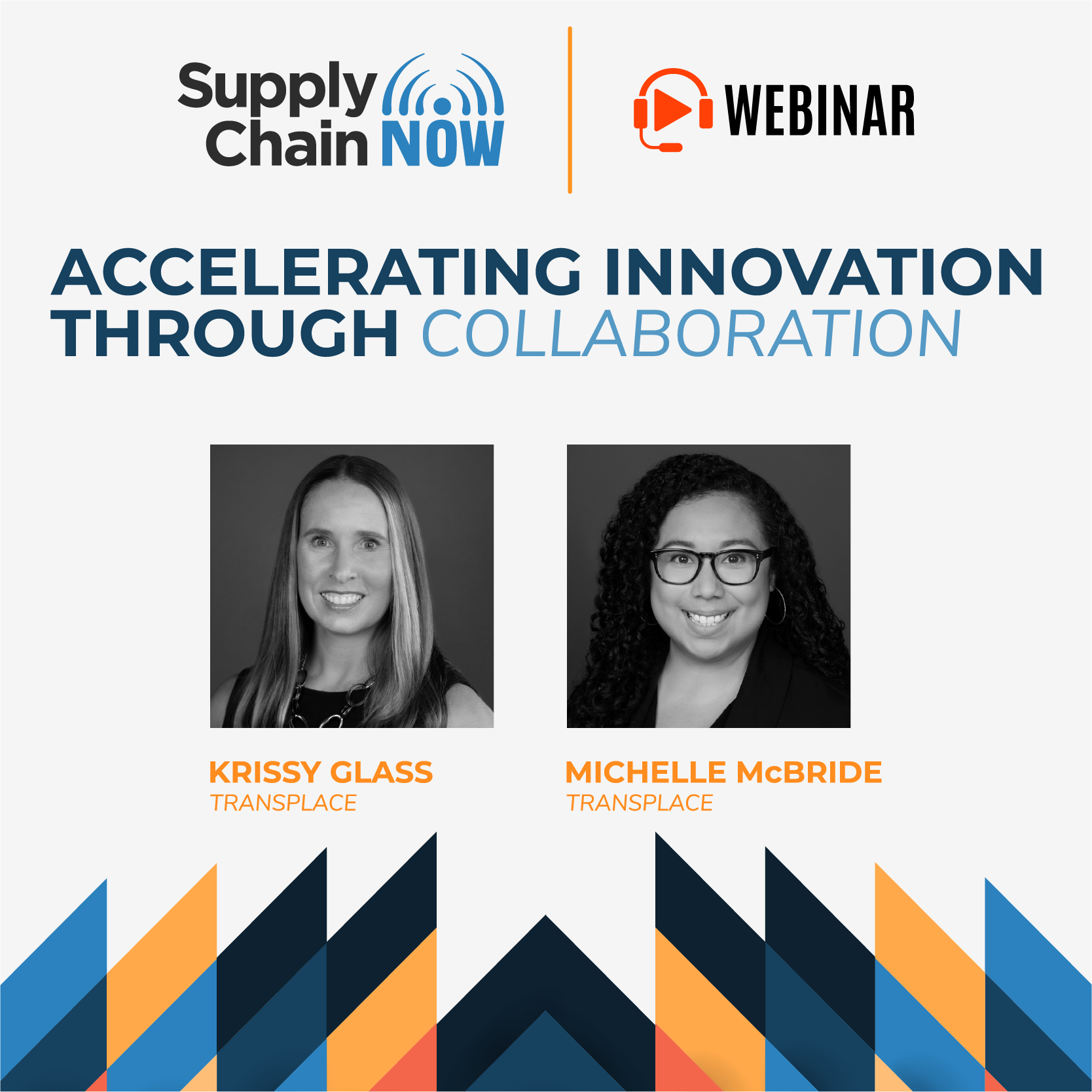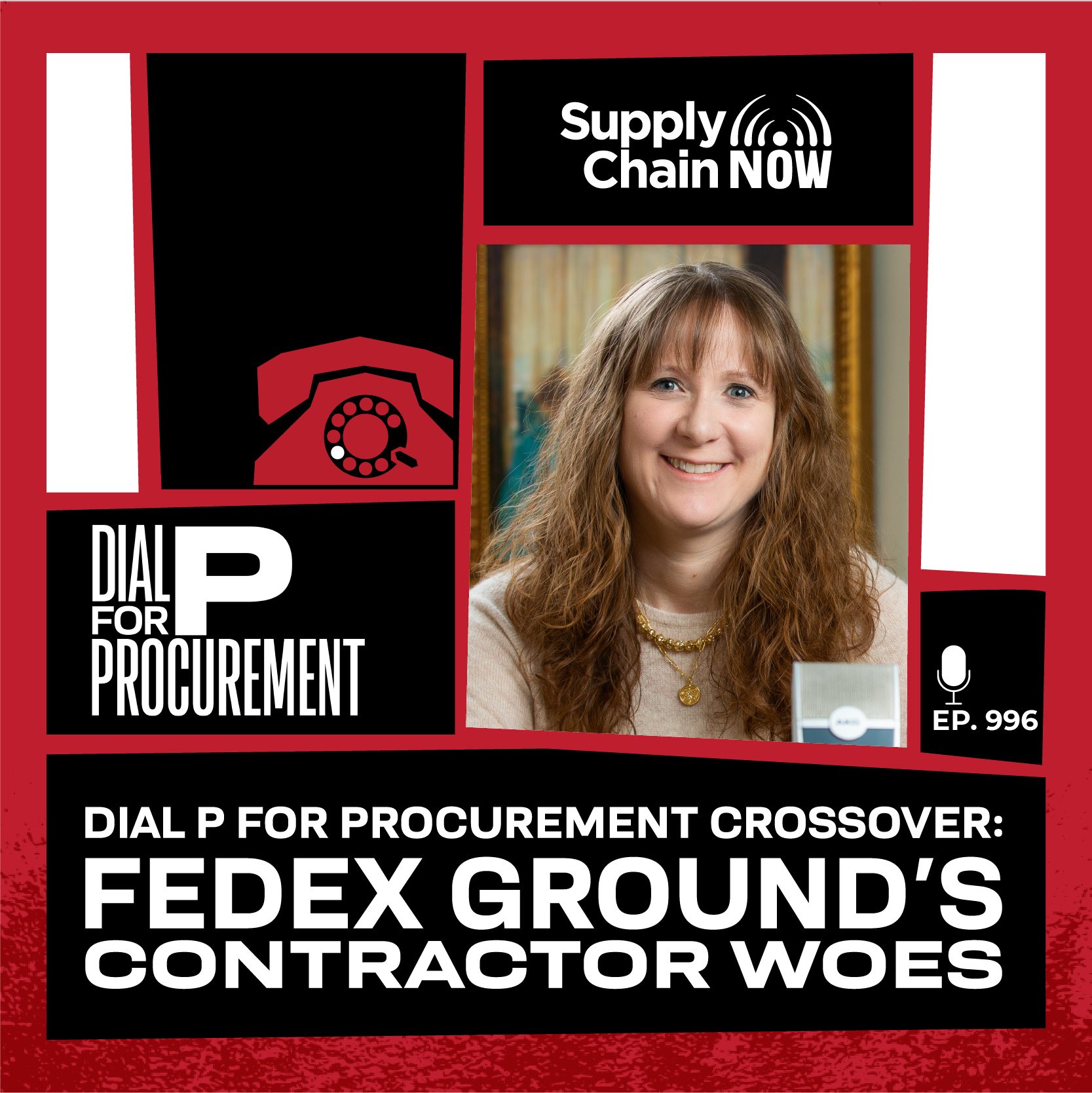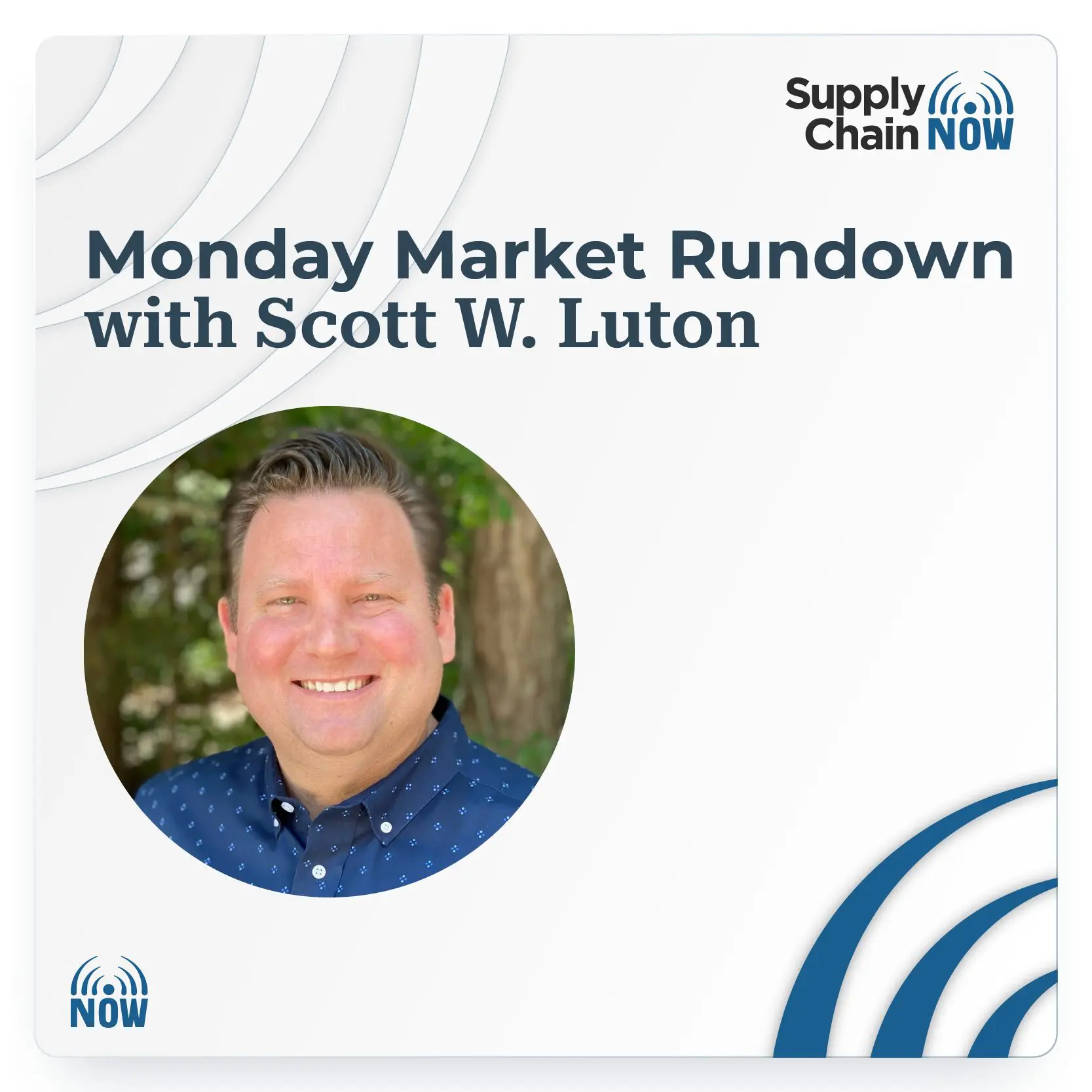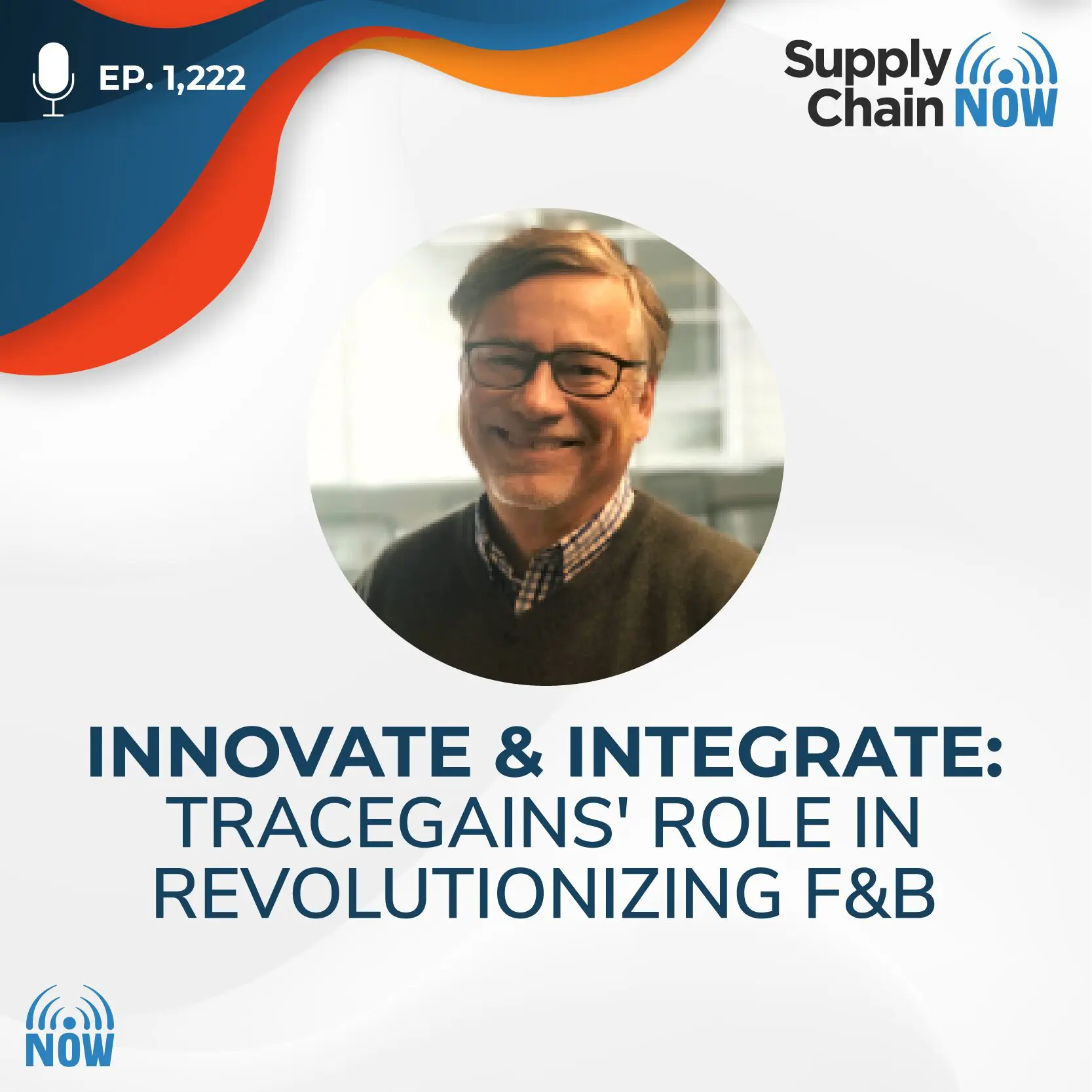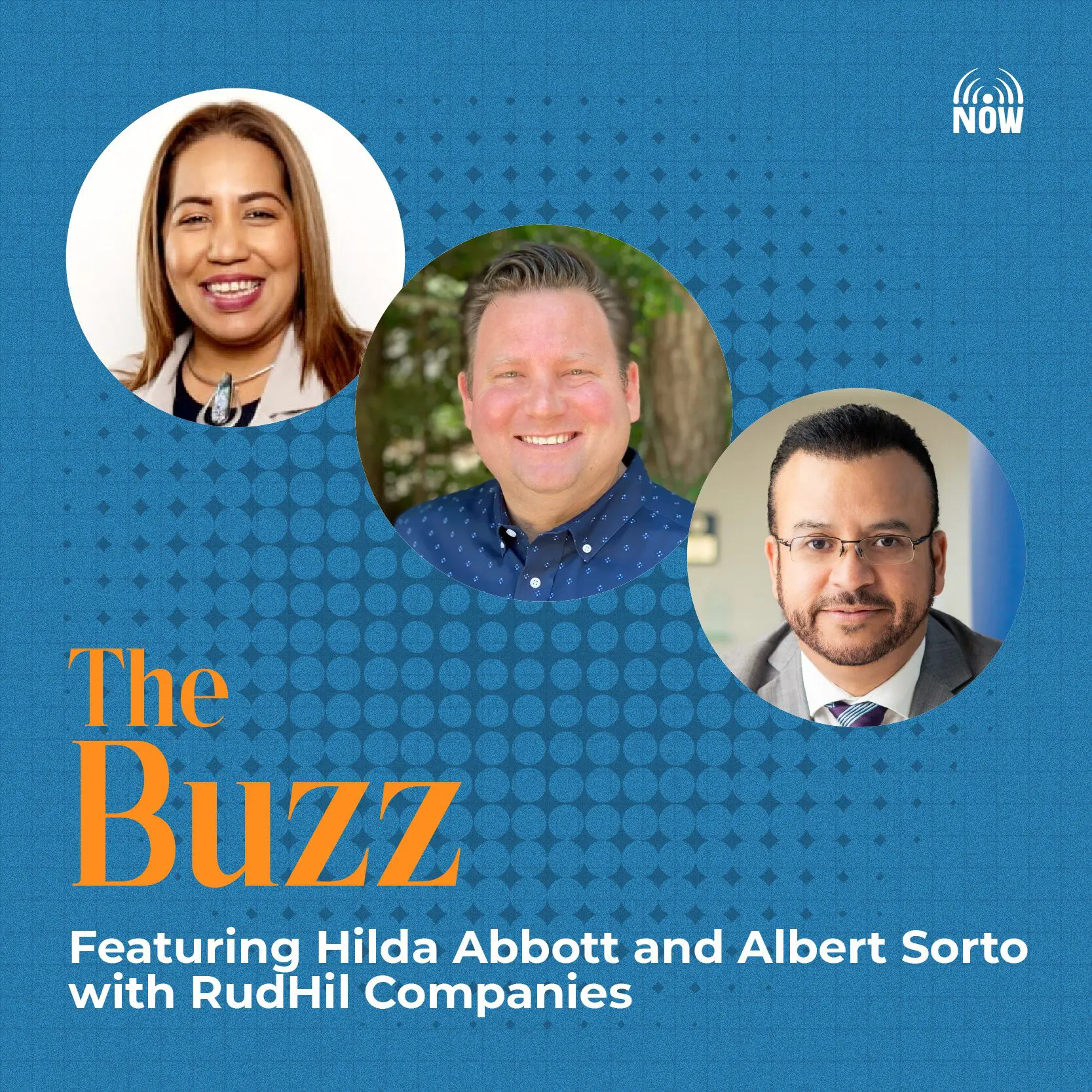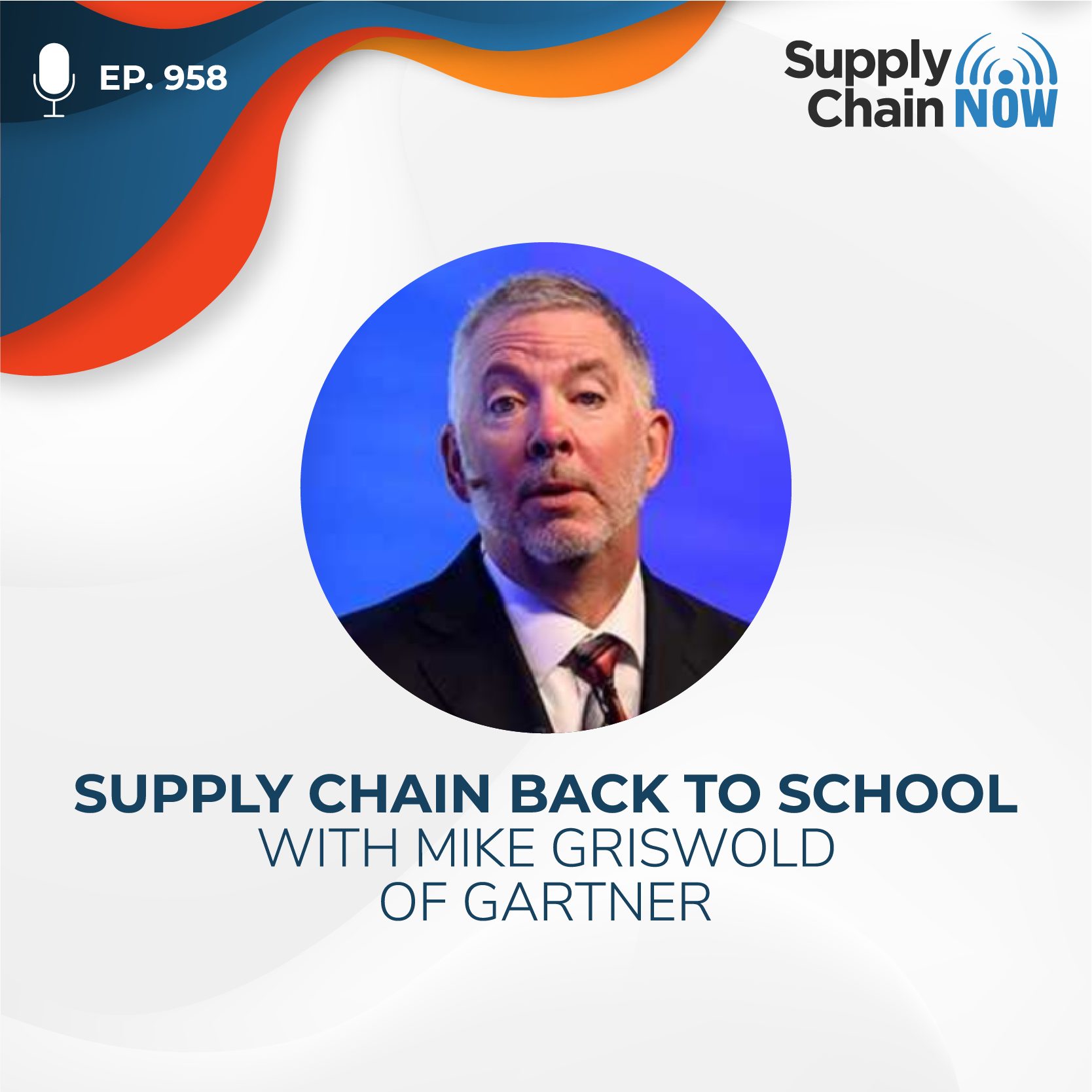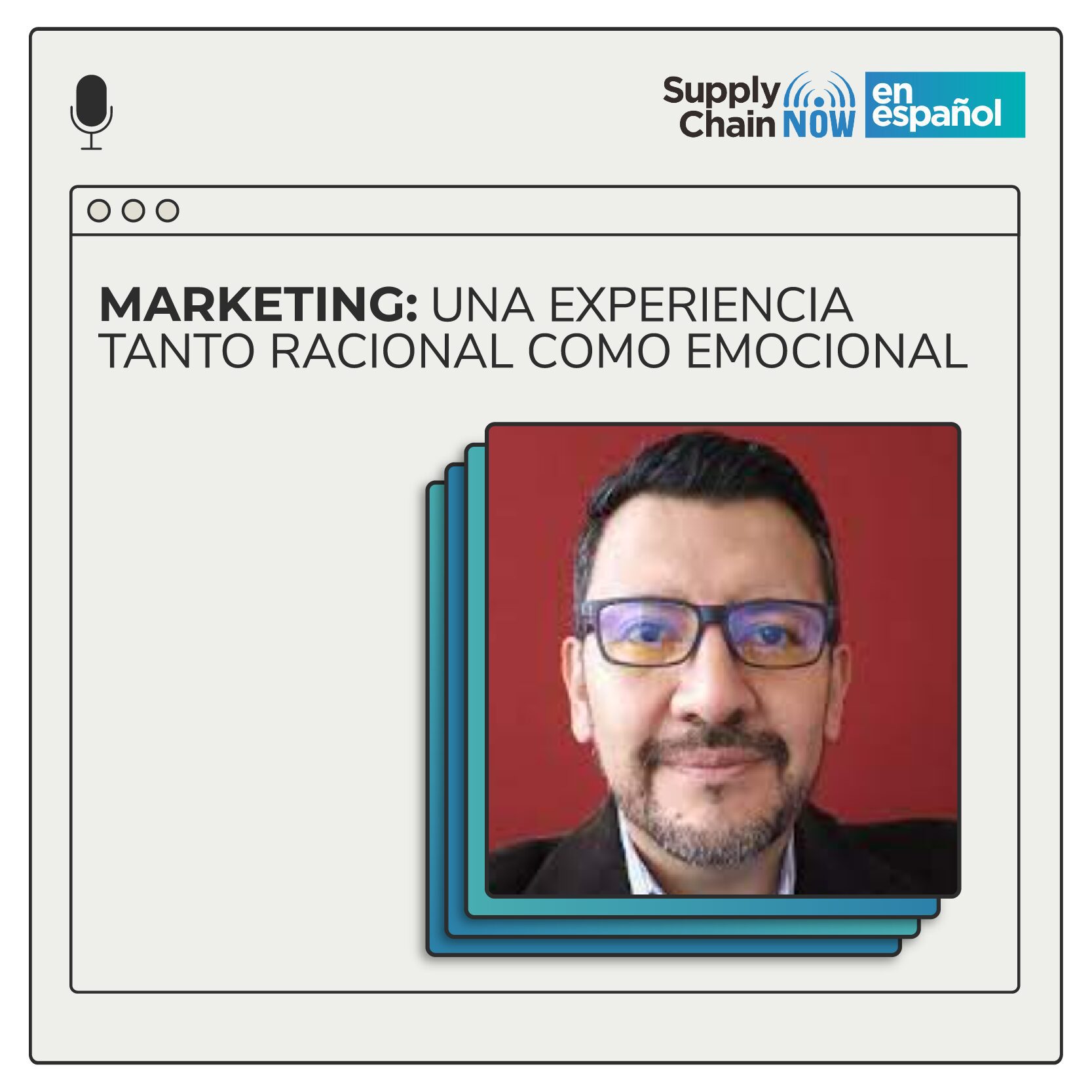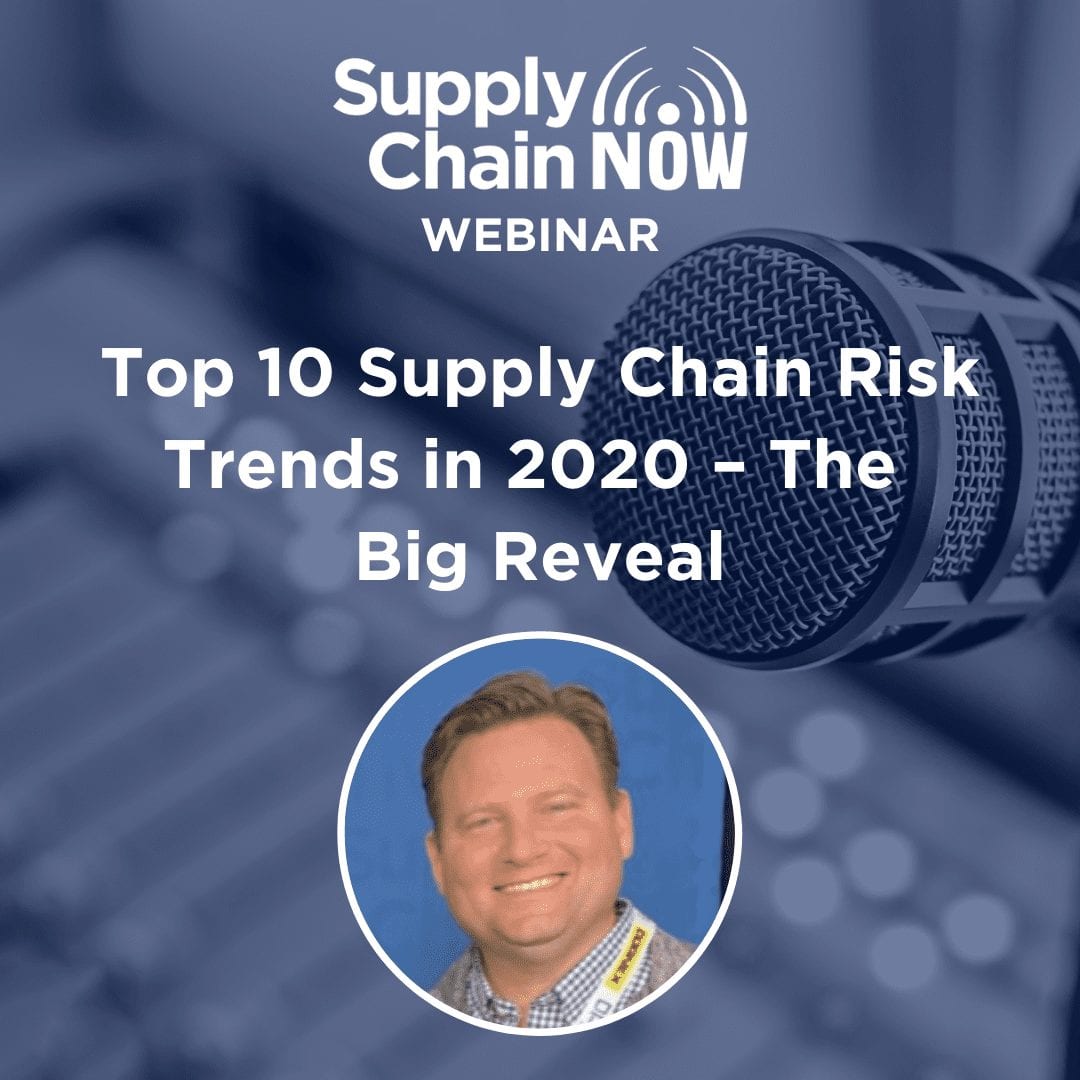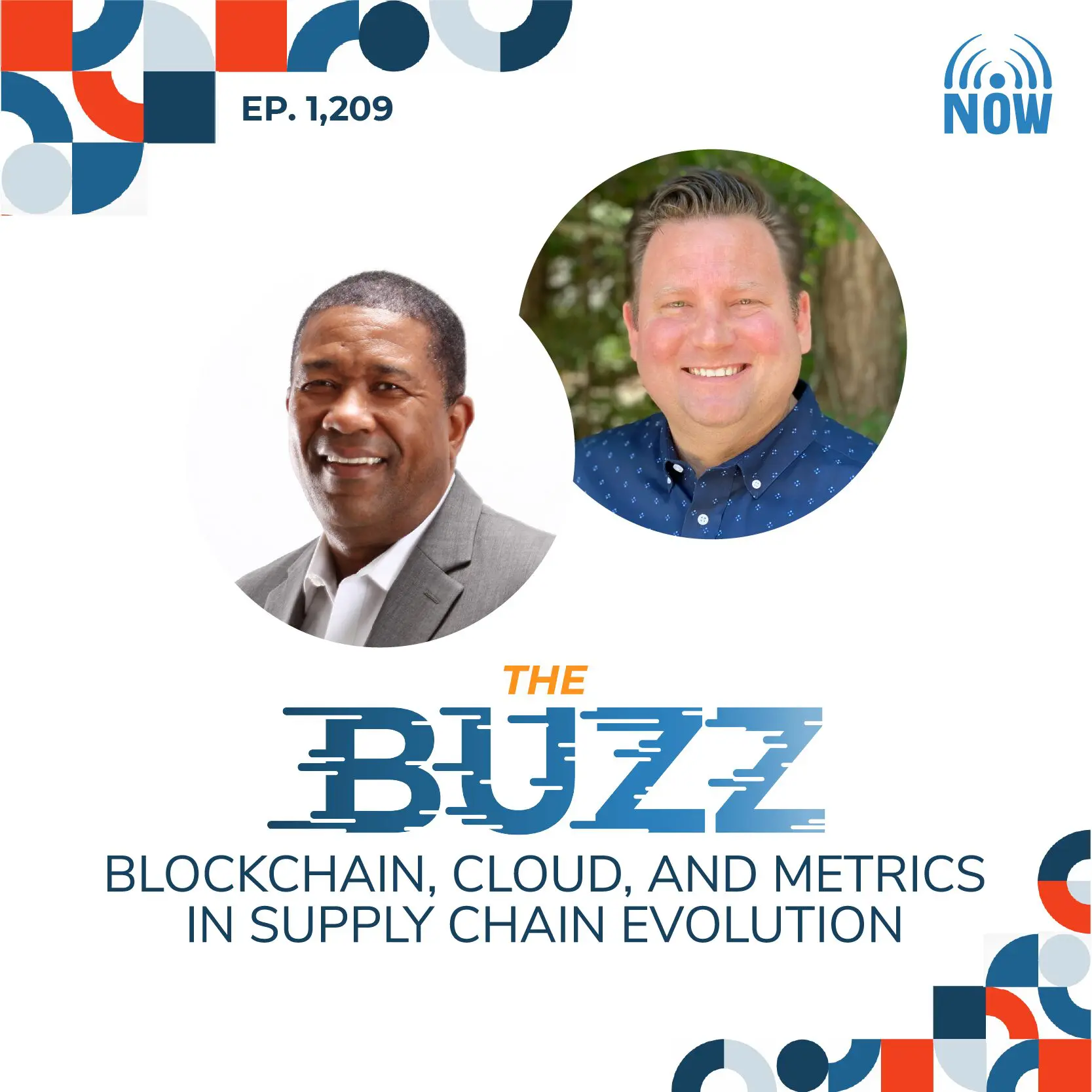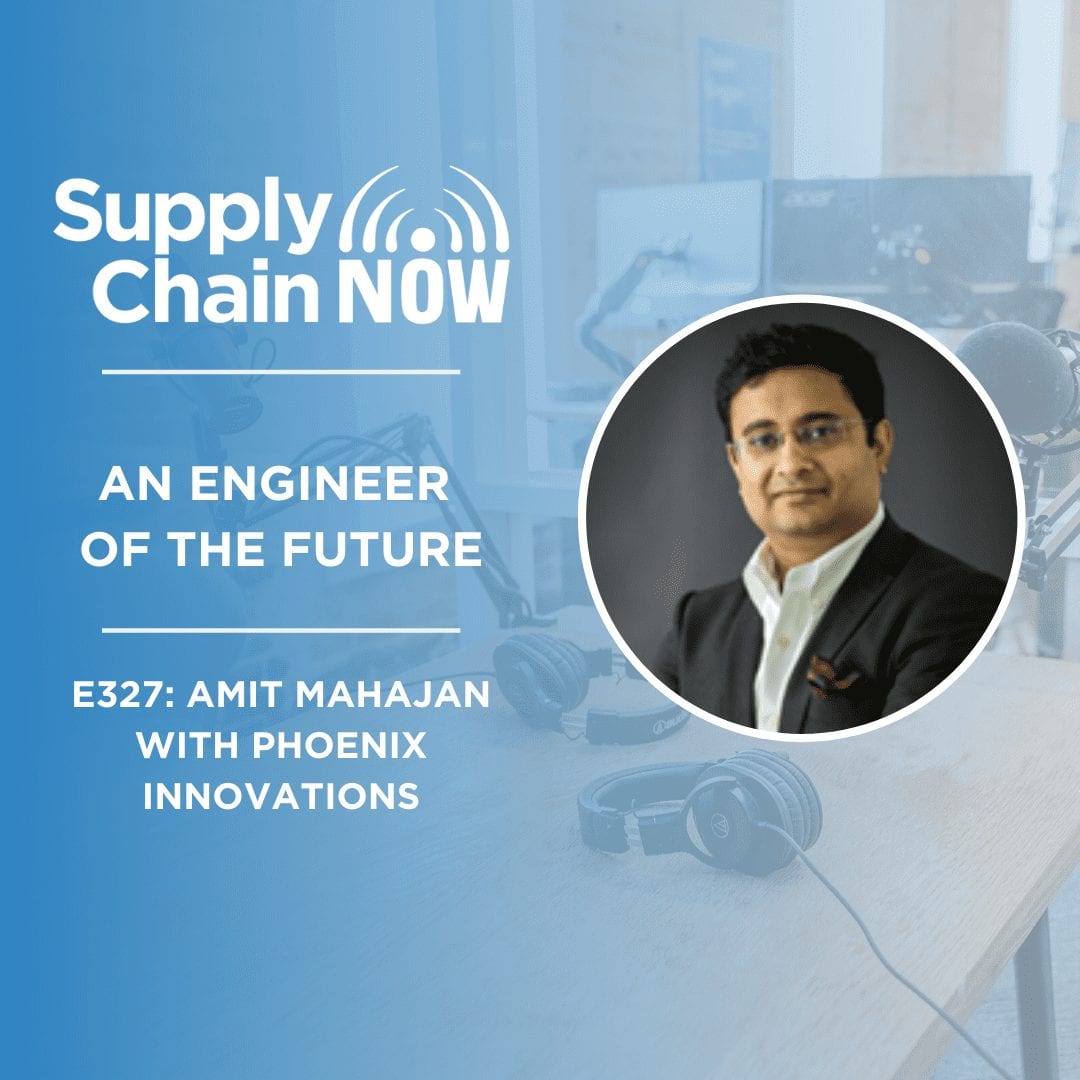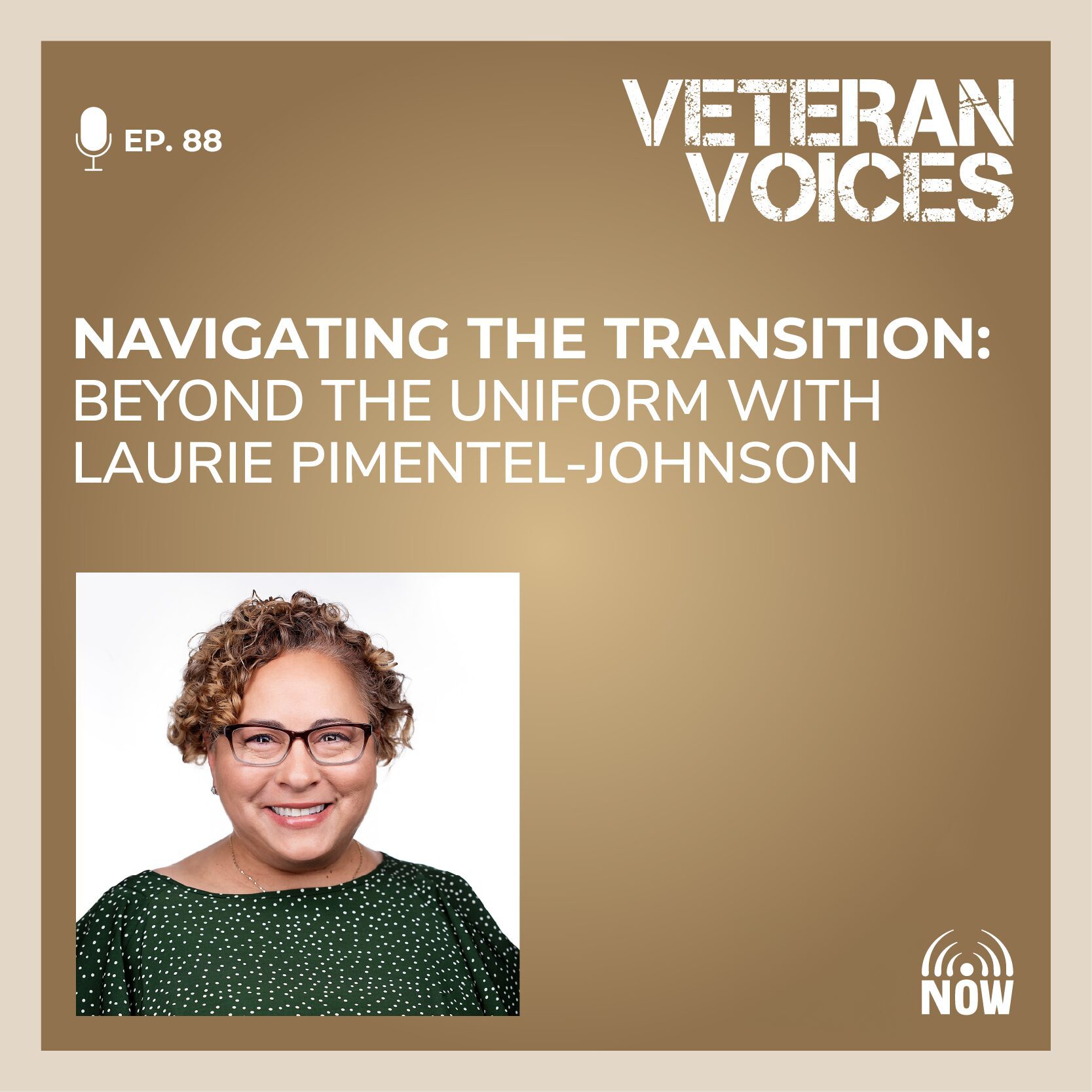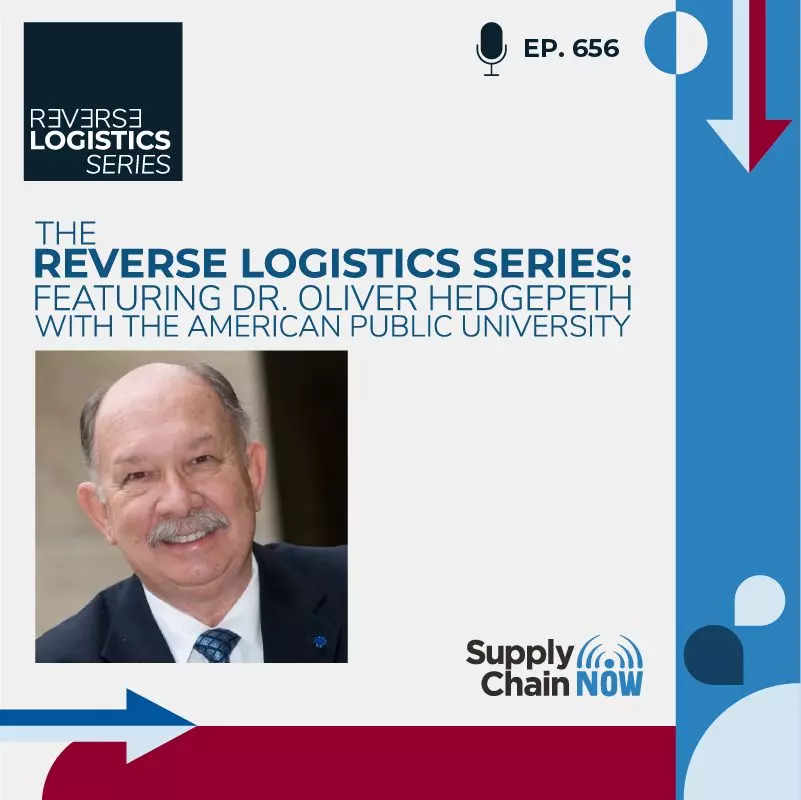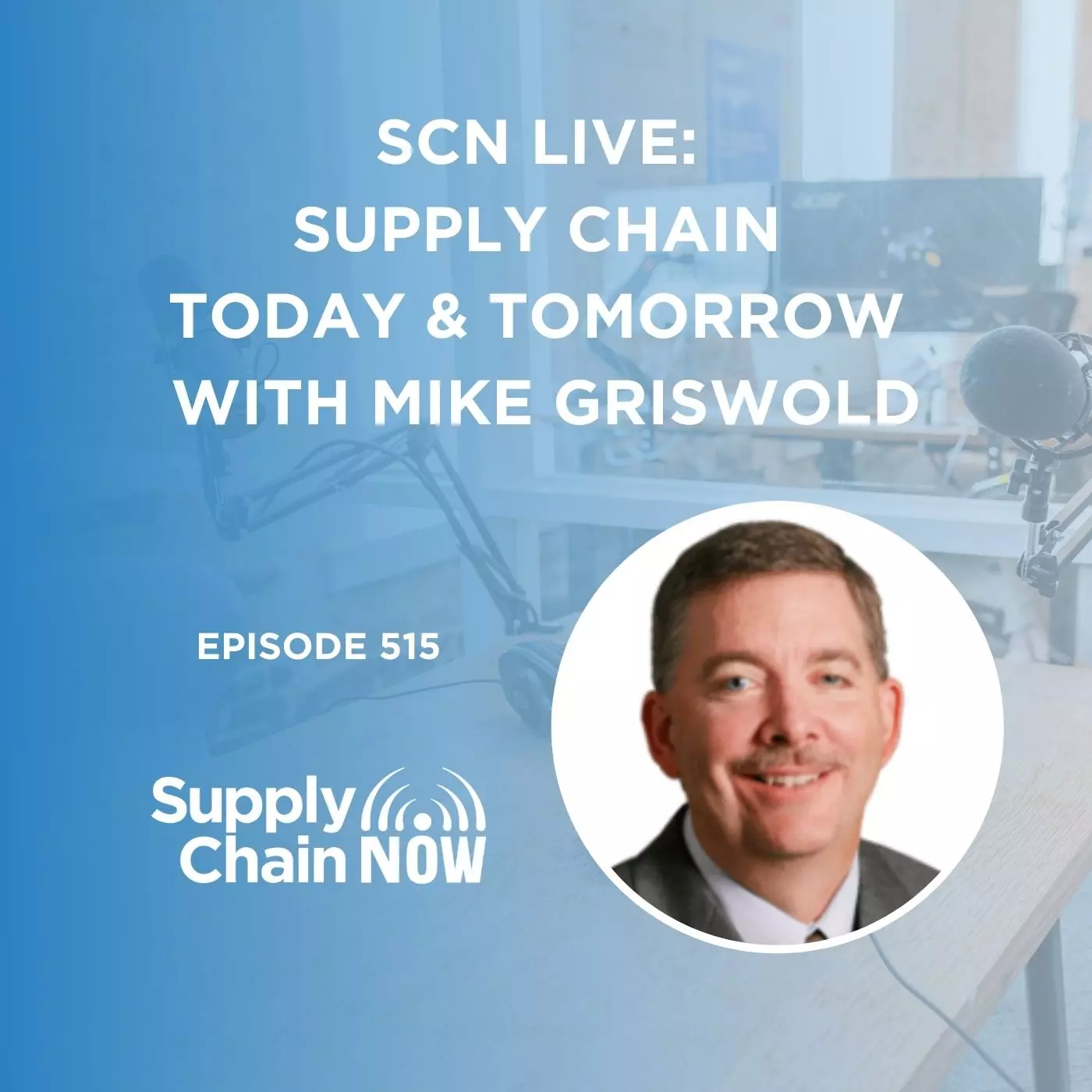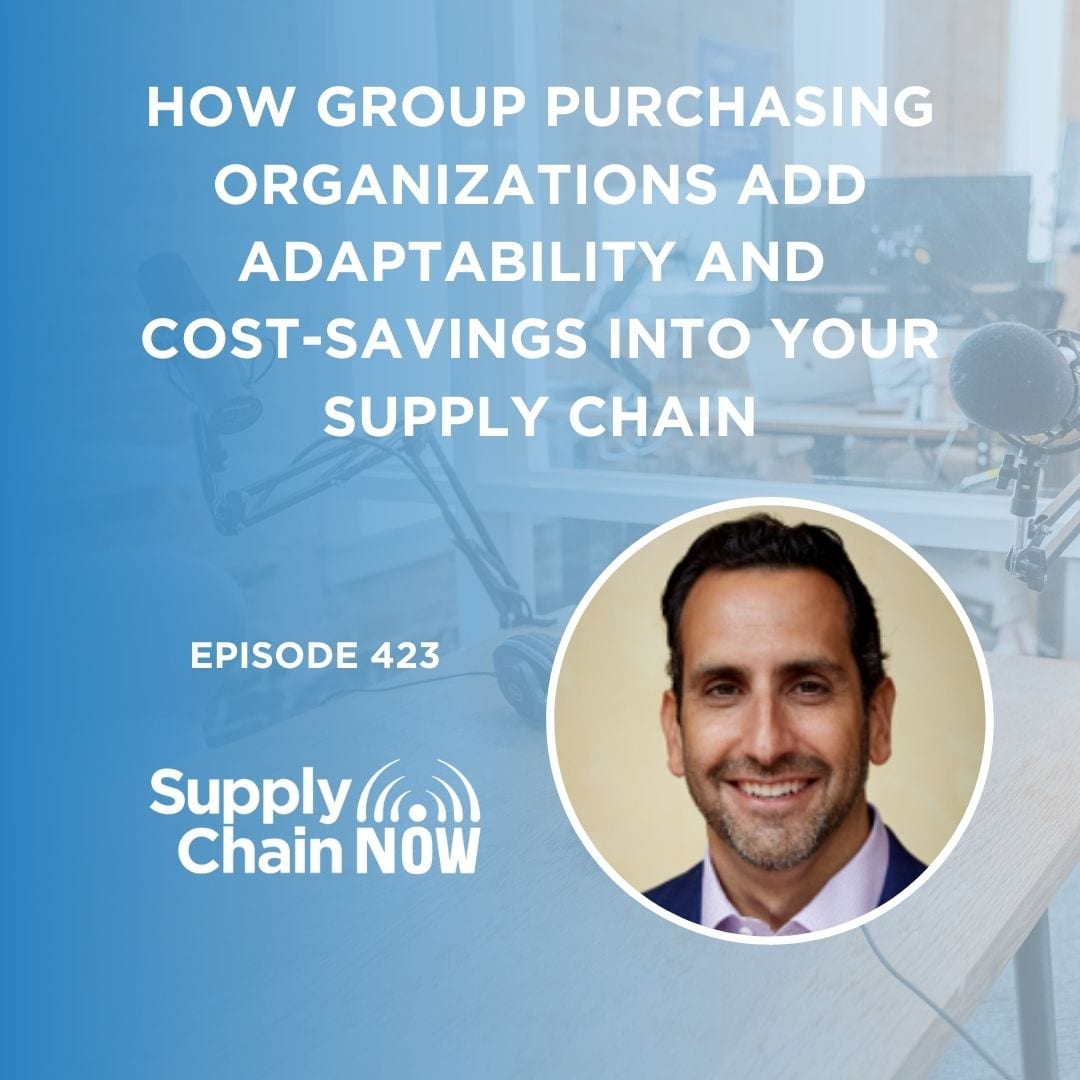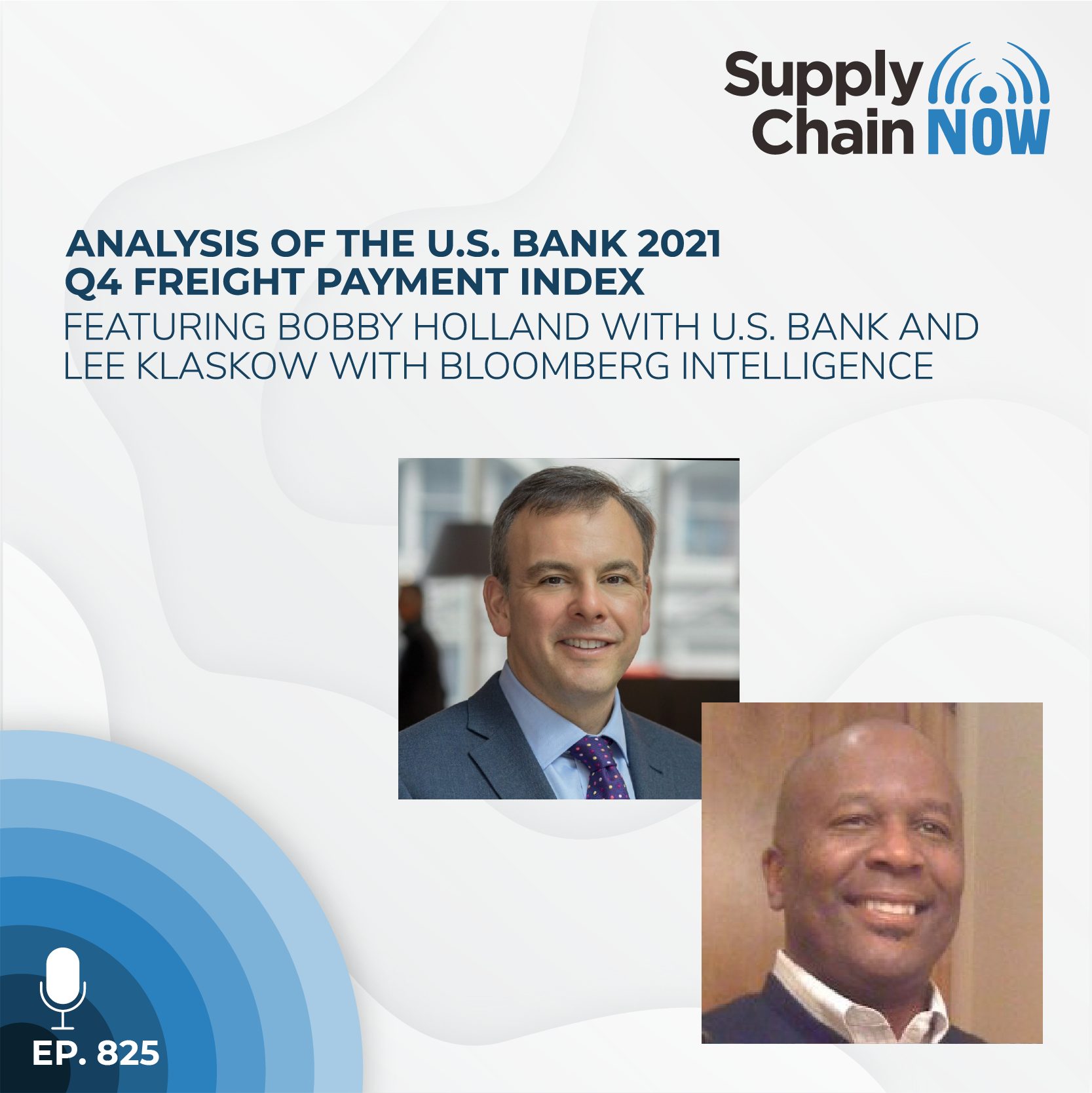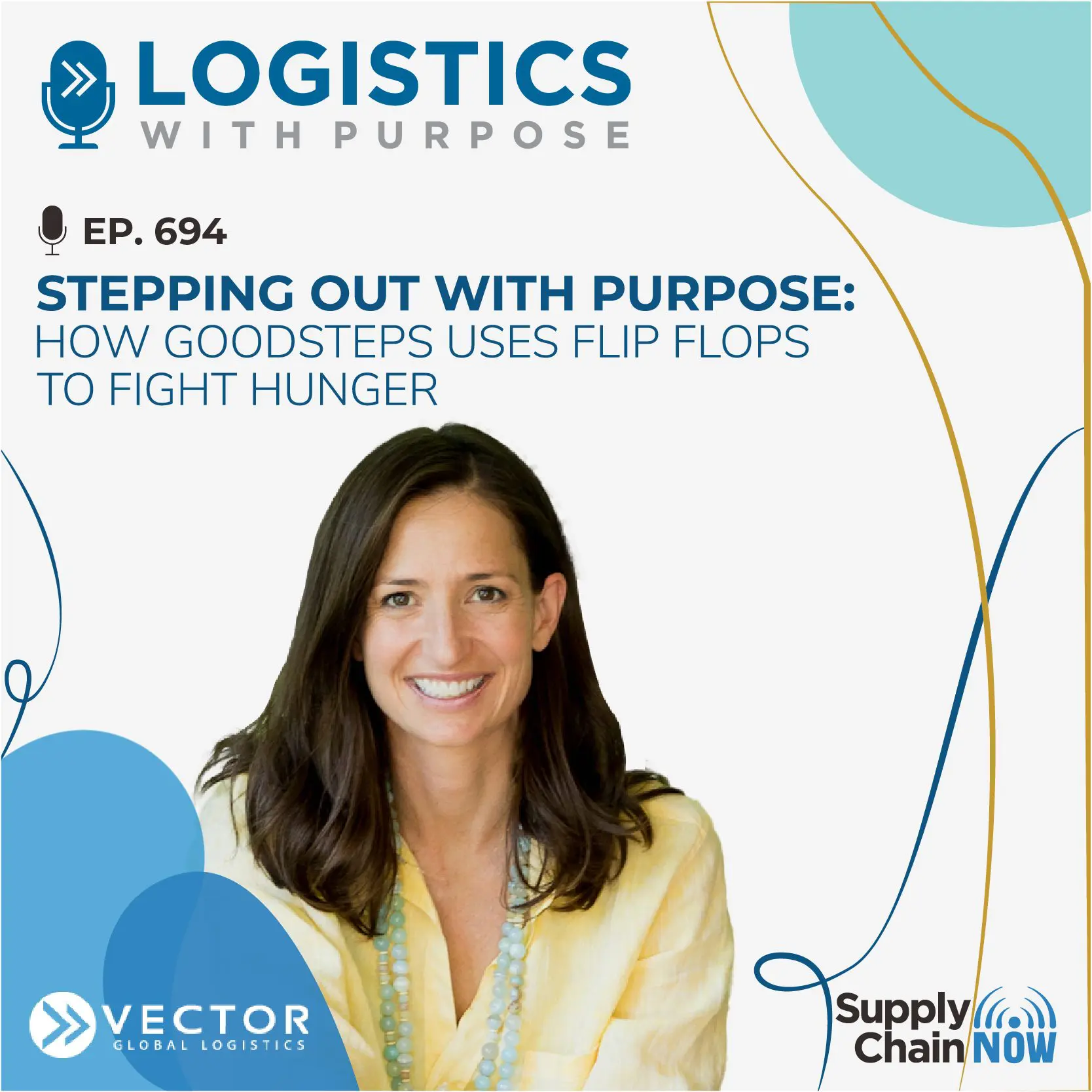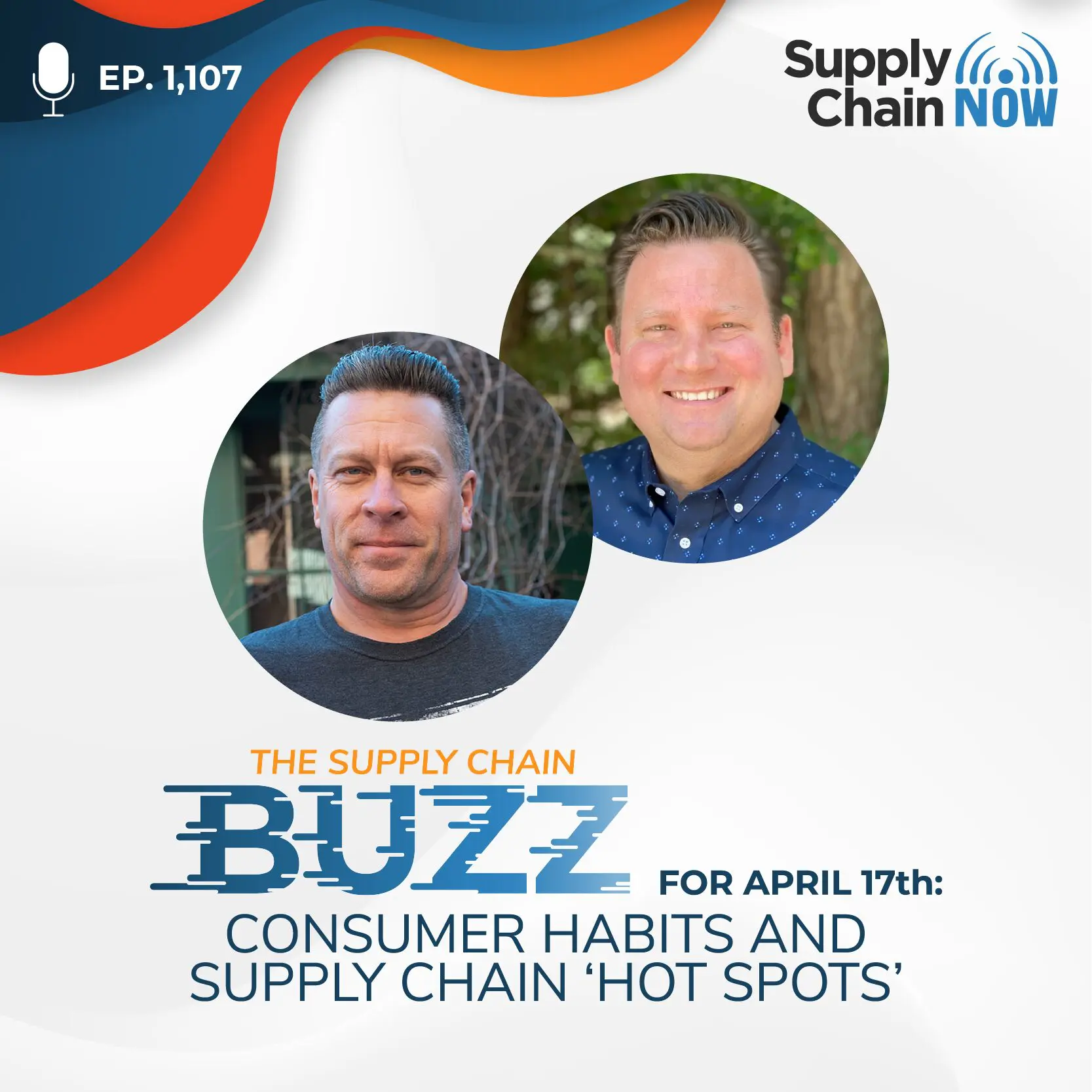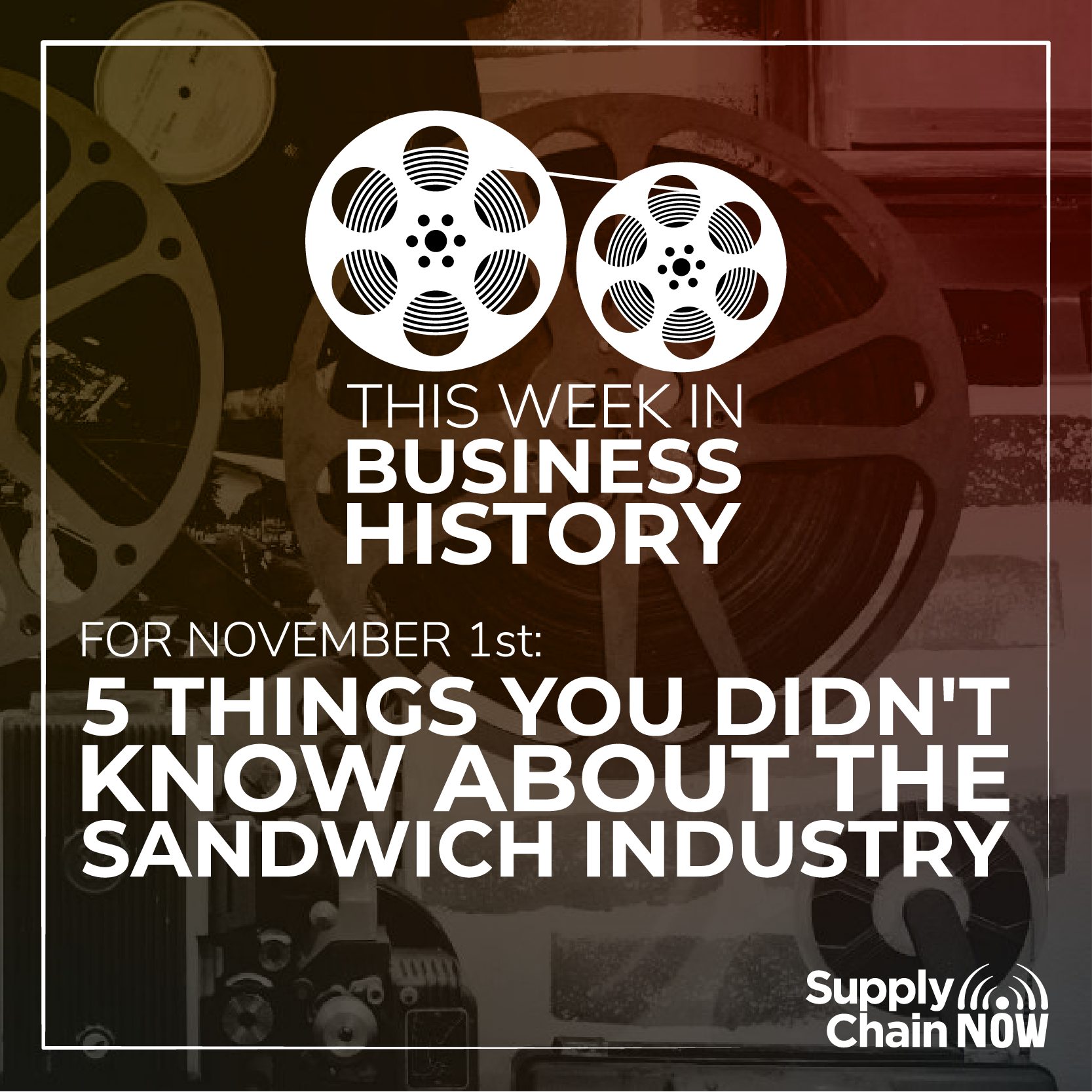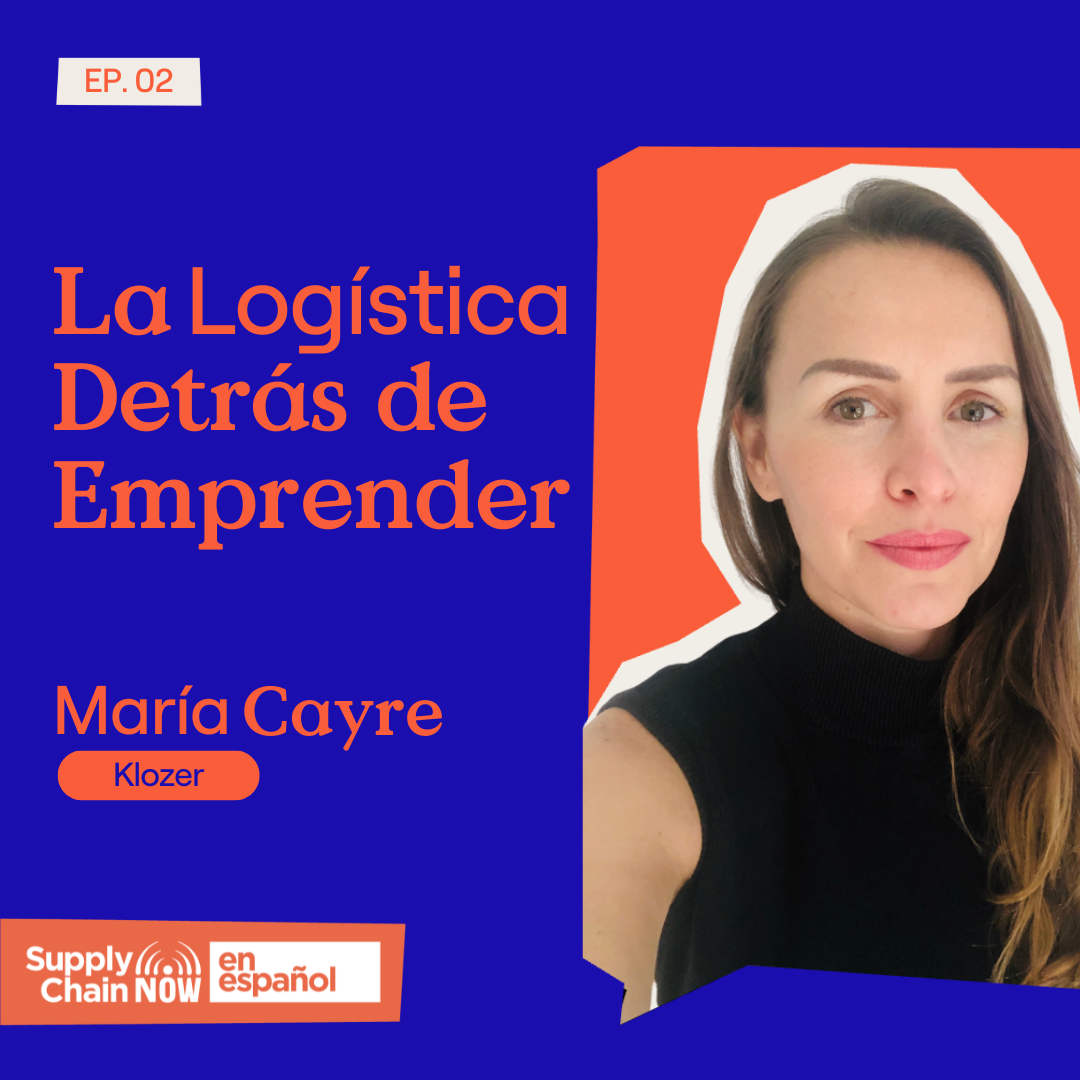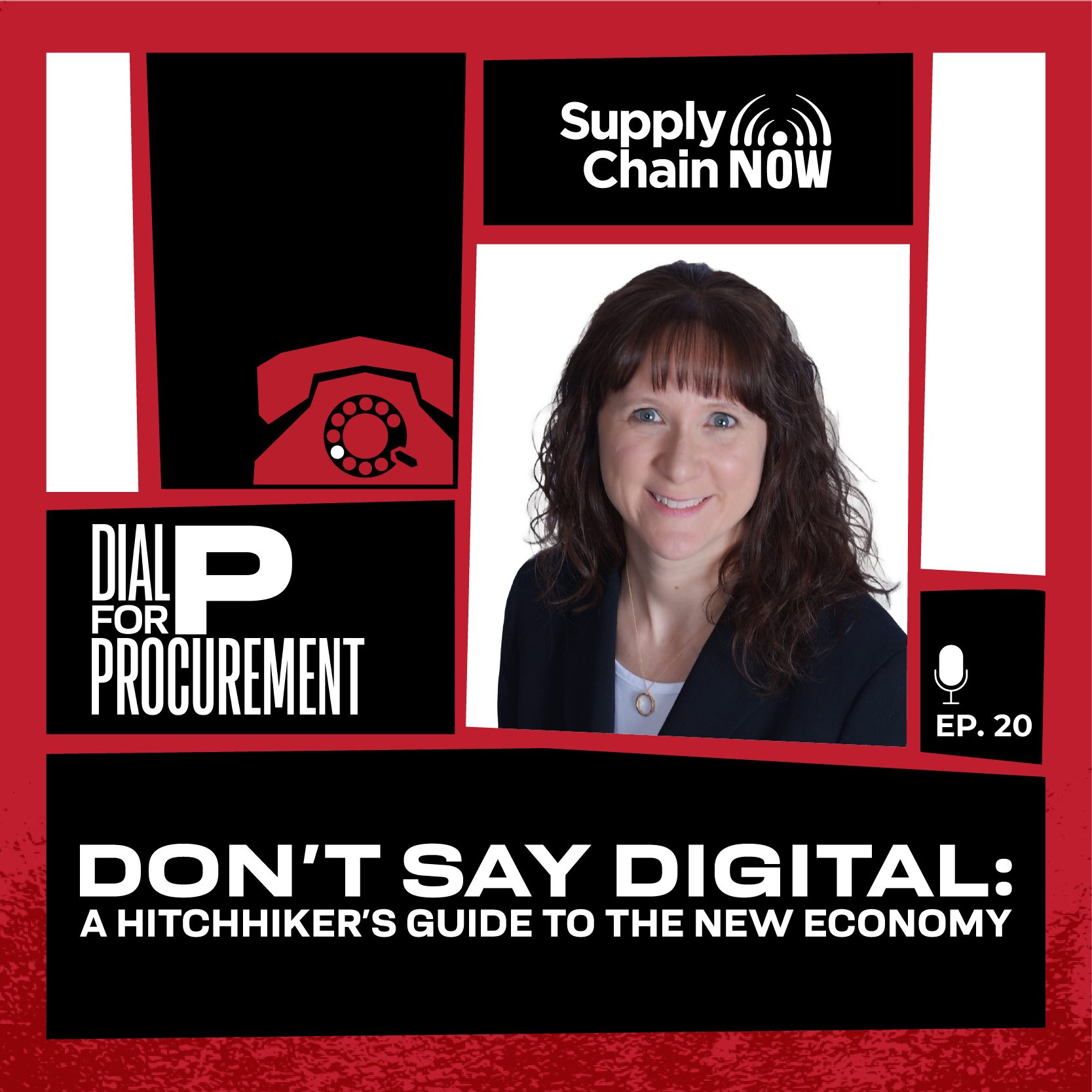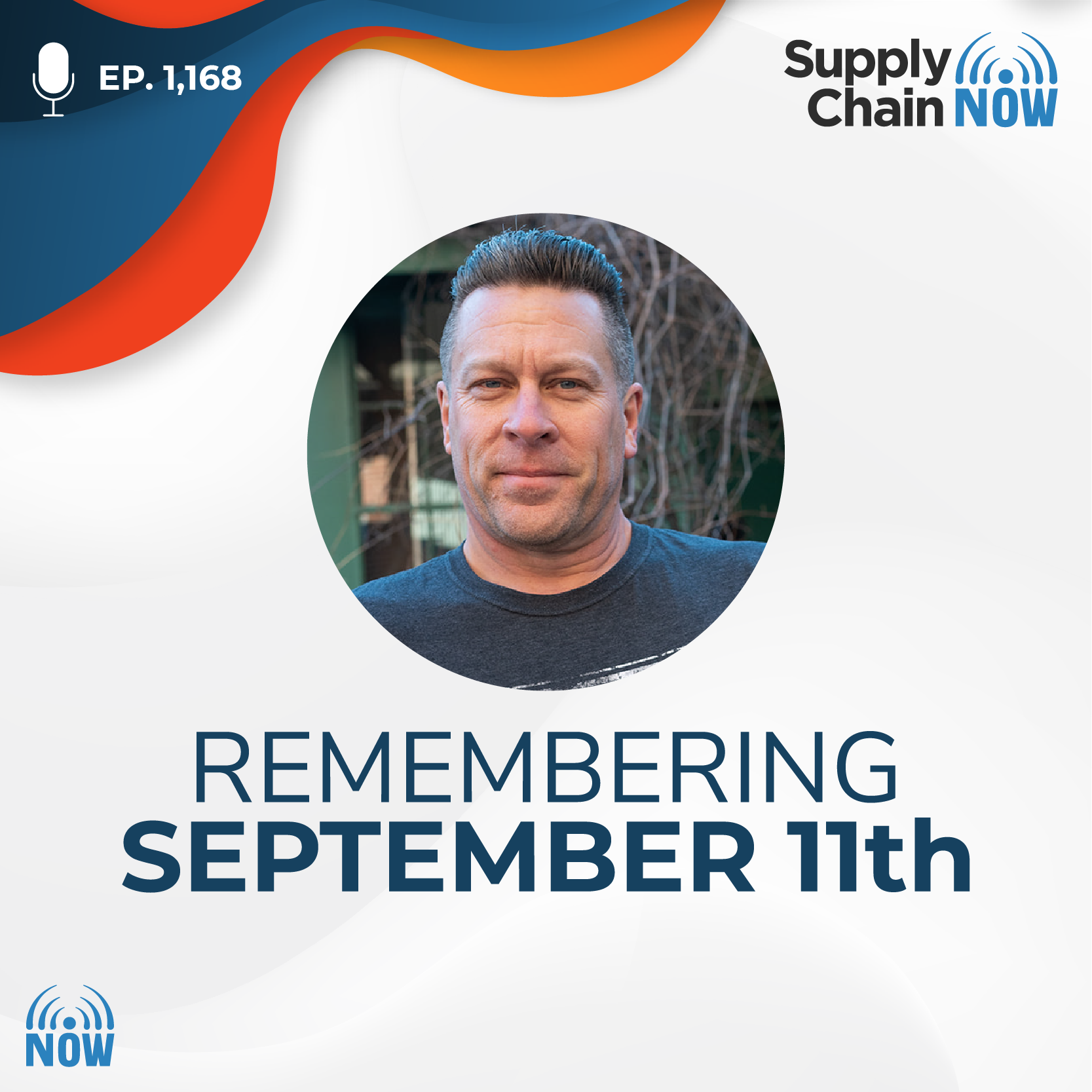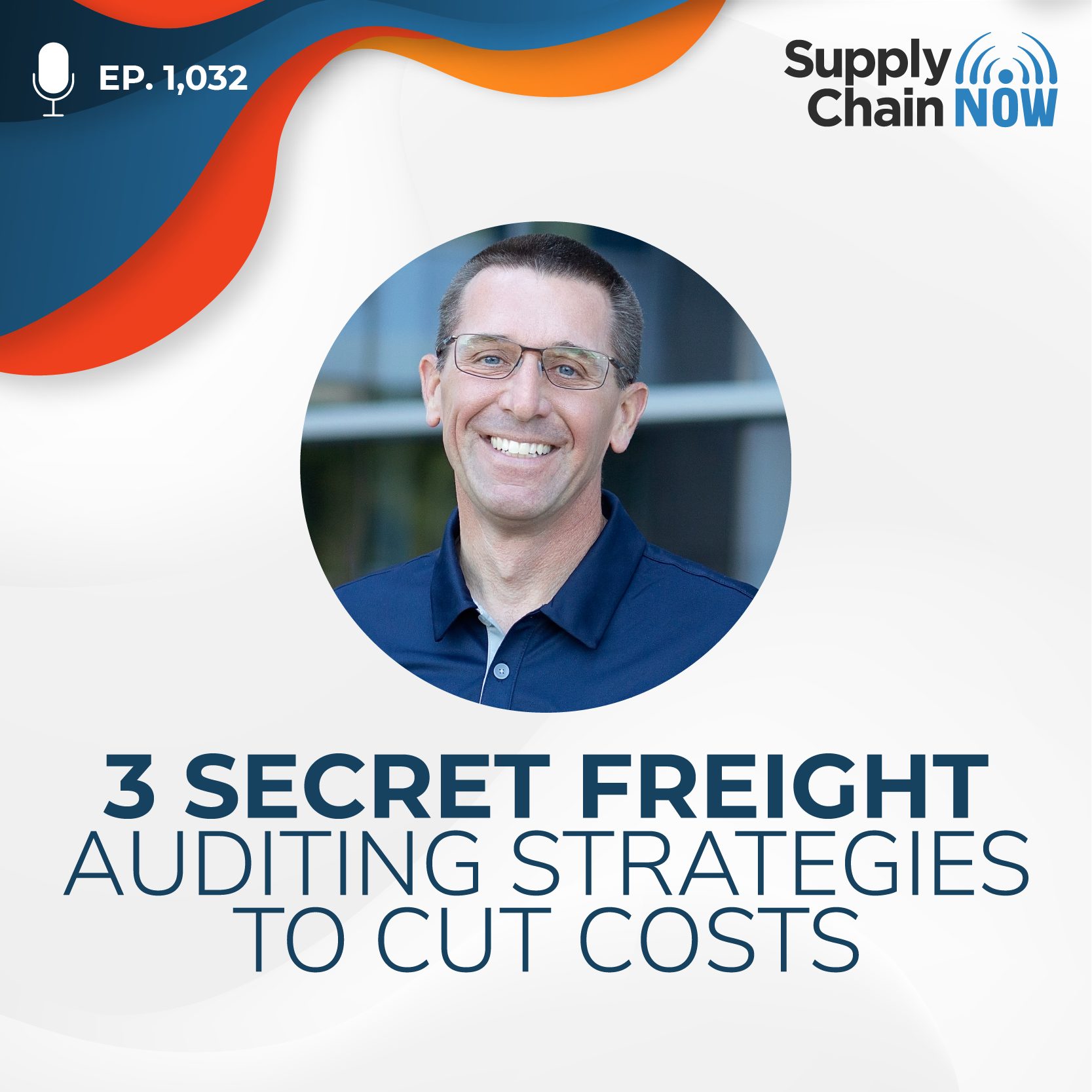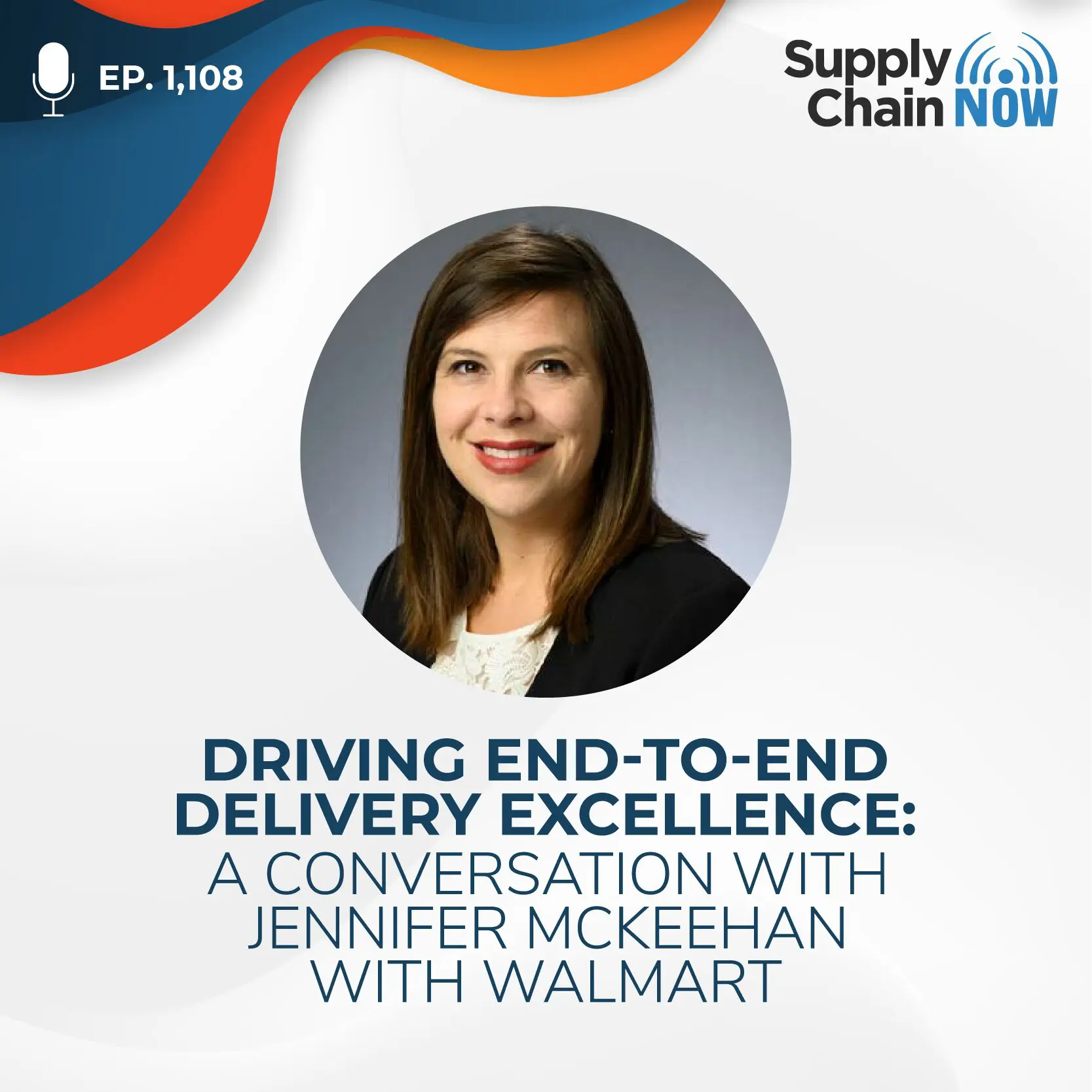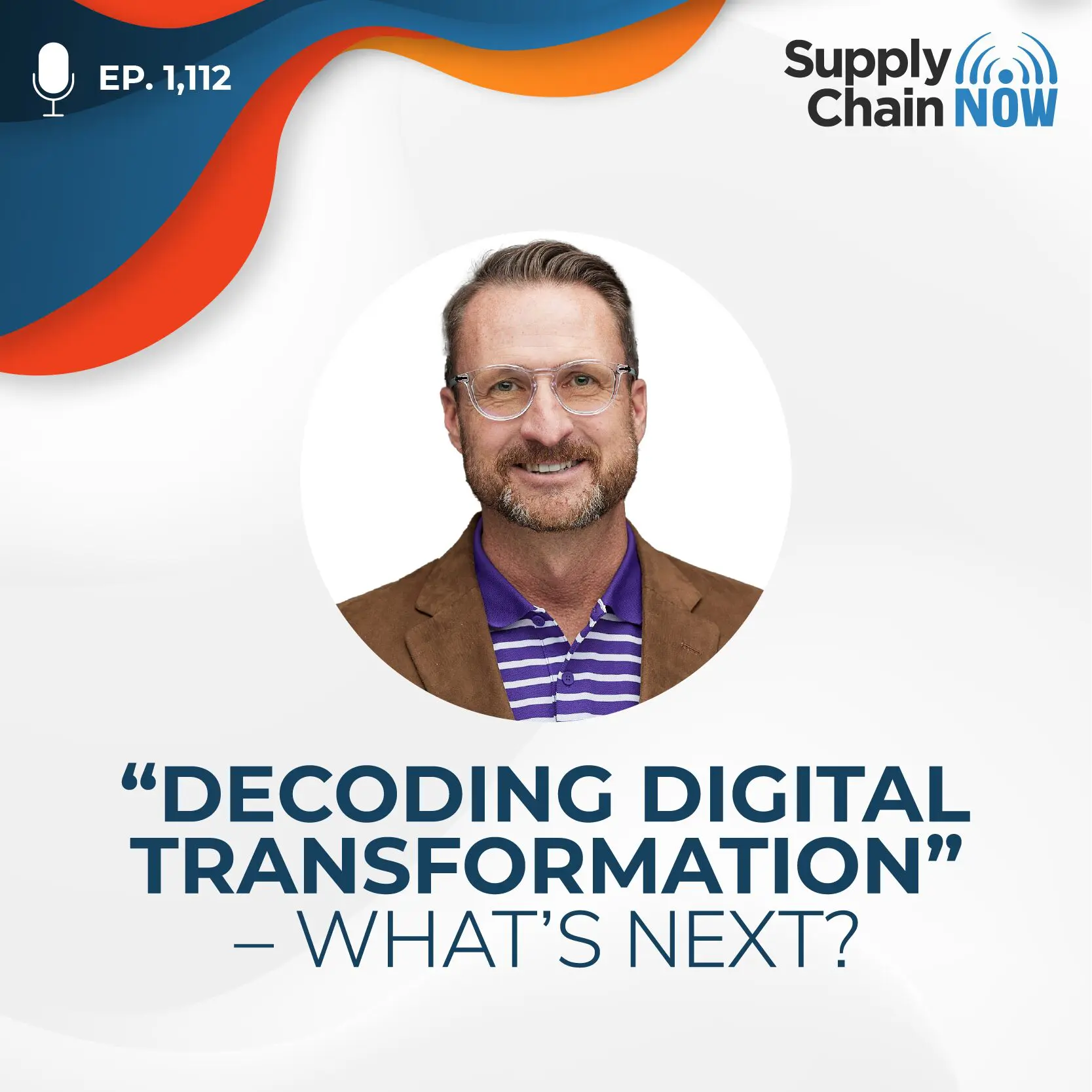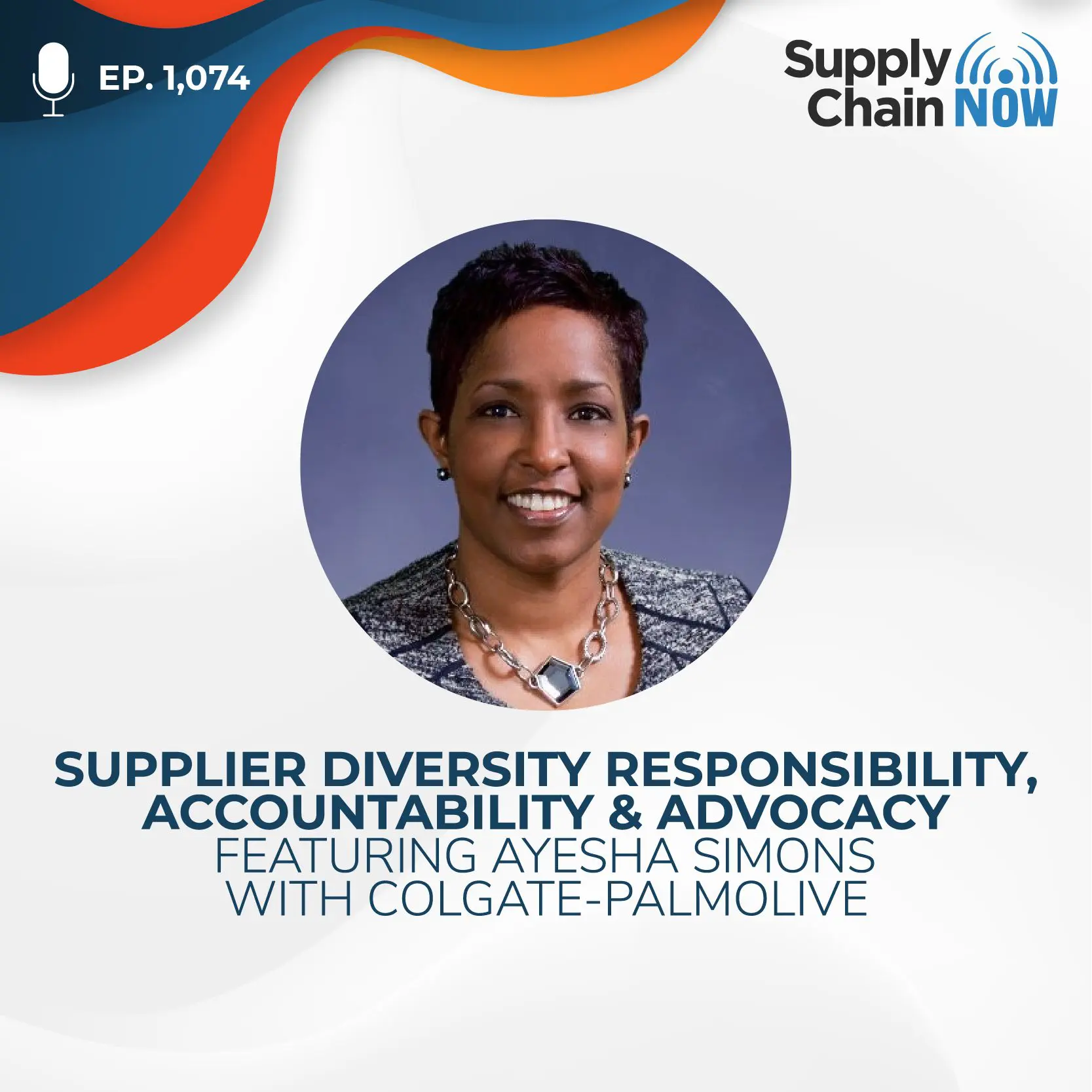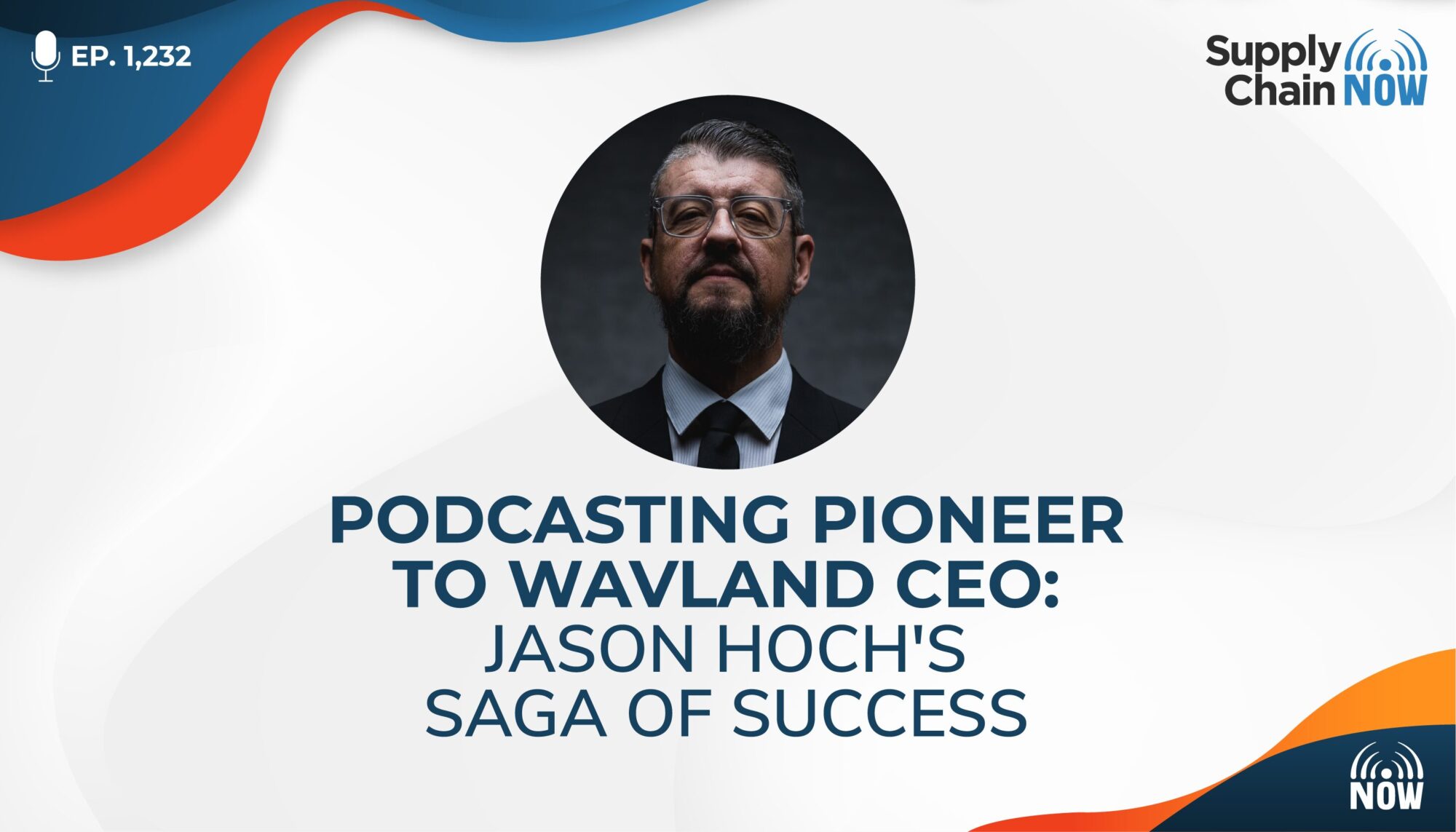
I don't want to settle for anything less than my own vision.
-Jason Hoch
Episode Summary
Starting a company is simultaneously incredibly hard work and a joy for most people who set out to do so.
On today’s episode of Supply Chain Now, we welcome back former guest Jason Hoch – now CEO of his newly founded company, Wavland.
An individual with awards from Apple Podcast and Webby Awards and more than 20 years in the new media space to his name, working for innovative enterprises such as HowStuffWorks, Imperative Entertainment, and Discovery, Hoch joins us to share his insights on going solo to date.
Discussions include a consideration of how to scale effectively, the CEO highlighting the need to strike a balance between growth and sustaining a common thread of quality – something he is working towards whilst producing eight shows concurrently.
From soulless sandwiches to the therapeutic nature of running, Hoch also highlights many of the ingredients that have enabled him to flourish personally and professionally to this date. With advice on managing projects, navigating change, culture, leadership, storytelling, the importance of authenticity, and more, this one’s worth tuning into.
Check out Land Man, starring Billy Bob Thornton, now in production with Taylor Sheridan and Paramount +, based on the Boomtown podcast Jason produced: https://bit.ly/3StYir4
Check out The High Roller Heist, the first podcast launch from Wavland: https://bit.ly/42sGLEf
Episode Transcript
Intro/Outro (00:03):
Welcome to Supply Chain. Now the voice of global supply chain supply chain now focuses on the best in the business for our worldwide audience, the people, the technologies, the best practices, and today’s critical issues, the challenges and opportunities. Stay tuned to hear from Those Making Global Business happen right here on supply chain now.
Scott Luton (00:31):
Hey. Hey. Good morning, good afternoon, good evening, wherever you are. Scott Luton here on Supply Chain. Now welcome to today’s episode. We’ve got an outstanding conversation here today. We’ve got a big time mover and shaker repeat guest, which we all know how much we love our repeat guests. Our guests are doing big, big things when it comes to creating content that matters, right? I tell you, he tells stories like nobody’s business. Today we’re going to be talking about not only some really cool projects that he’s on the cusp of leading, but we’re going to be talking about lessons you can learn from creating compelling content from storytelling to change management to leadership. So stay tuned for today’s outstanding conversations. So I want to introduce our guest here today. Our special guest has tons of experience in the new media space where he spent more than 20 years with innovative companies like how Stuff Works, imperative, entertainment and Discoveries, programs and content folks. They won awards across industry from Apple Podcast to Webby Awards and a whole bunch more. Our guest has, as I mentioned, some really big projects coming up. He might can tell us a little bit about it without killing us later. But stay tuned for a lot of great takeaway here as we welcome in the CEO and Chief Content Officer from Waveland. Jason Hope. Jason, how you doing?
Jason Hoch (01:56):
Very good. It’s very cold here, but that’s okay. It’s Atlanta. It’s cold. People don’t think that, but it is, and that’s okay.
Scott Luton (02:05):
It’s so right. You get up. We’re used to these milder winters and when it’s like 80 degrees during the holidays, we’re all complaining that it’s not cold enough. Doesn’t feel like the holidays. And then this year happens, I think it was 28 degrees when I got up this morning at five 30 and we’re like, okay, I wouldn’t mind those mild winters again.
Jason Hoch (02:24):
So as a Midwestern kid, I actually moved south and I’ve been in the south now longer than I’ve been, was in the north. And I can tell you, I’ve actually Googled does your blood thin when you move to warmer temperatures. I’m not sure what it says, but I feel colder when I lived down here than I did when I lived up
Scott Luton (02:42):
North. So there go. I’m with you. I’m with you. And when you say that, I think Wisconsin, right? It’s where you grew
Jason Hoch (02:47):
Up. Yeah, Midwestern roots.
Scott Luton (02:48):
Yeah. And now you’ve been here and doing big things in the Greater Atlanta area for quite some time, huh?
Jason Hoch (02:53):
I love Atlanta. It’s the perfect mix of big city metropolitan area with lots of things to do and a great place to raise a family. And we’re literally right in midtown and Atlanta’s a beautiful canopy city. People don’t think of that. So most of the city is covered with trees. And so you can live in a neighborhood right in the middle or the heart of Atlanta and feel like you’re in your own space. You run down the street and you see the tall buildings. That’s really great.
Scott Luton (03:23):
Well, so let’s talk about that a little more because when you say run down the street, a lot of folks maybe not be talking about that. Literally you’re talking about it literally though, because you woke up this morning, did four and a half miles, and that’s to become a religion for you. Tell us about jogging and why it’s important.
Jason Hoch (03:37):
Yeah, it’s a thing for me. I think it started about seven or eight years ago, you kind of kick yourself into motion and say, what do I need to do to get more fit, to feel more active, kind of get outside the house. And it was a real struggle. I really, I’m not going to lie, it was not pretty at first, but repetition, like anything in any industry or anything, it’s just it’s not letting go. And sometimes results don’t come overnight. It actually can take years just like anything. And I just kept doing it. And what I actually found was some pounds started to come off. I started to feel better. Shockingly, my doctor says, how would you feel if you were running with two 15 pound weights in your hands? Think about, it’s so obvious, but think about that. Wow. And so when you don’t have those weights, you run faster
Scott Luton (04:39):
And you feel so much
Jason Hoch (04:40):
Better, you feel better, you sleep better. But something else happened, which is it ended up kind of being my office hours, if you will. And it ended up being that thing where I was able to sort through things in my head. I was able to overcome anxieties or fears about things. I work on a ton of podcasts and documentaries and future.
Scott Luton (05:03):
Yeah, we’re going to dive into all
Jason Hoch (05:04):
That. But I actually listened to early versions of these series in my earbuds. While I’m running, I’m listening to other things to inspire creativity, and I’m kind of working stuff out in my head. That’s the best way I can explain this kind of early office hour. It’s my space, it’s my time. And often I say to run is to be alone, but it doesn’t mean you’re lonely. And I think the same thing applies to being CEO of a company. It’s a very much of a feeling of being alone, but not necessarily lonely. If you don’t let it take you over, you are in your own space. And so that was a little bit difficult for me at first, but now I fully embrace it. And if I don’t run, I’m miserable. I really am. It is a thing that I savor every single morning. And I think it also, it did something to me. It’s part of the grind. I never want running to define me as a person, but I think the ethic of getting up every morning and doing something and starting your day can be very difficult to be motivated. Oh, no doubt to
Scott Luton (06:32):
It takes a discipline.
Jason Hoch (06:33):
It takes a discipline, and I’m proud of that discipline, and it’s actually taught me a lot about how to do everything else I do during the day or during the week or during the month or whatever. Secondly, the kind of other enlightening thing with running is because I’m on the road working on some of the productions and traveling all over the place. Sometimes when we visit places, we’re in an Uber or we’re staying at a hotel or Airbnb and we don’t really get to see the place that we’re visiting. You fly over New York City, you’re in a cab, you’re point A to point B, but what running is, it’s obvious. But until you actually stop and do this, you see things that you don’t normally see. And it’s so great. And being in so many different states from Hawaii to Florida, Massachusetts, New York, running through Central Park is just amazing. And you just see people in places and things completely different. And it is inspiring and it’s actually triggered some new creative ideas along the way.
Scott Luton (07:41):
I believe
Jason Hoch (07:41):
It. You got to get out there. You’ve got to. Sometimes it’s just a pair of shoes and a pair of shorts, and that’s all you need. You just go for it. Yeah.
Scott Luton (07:54):
It’s not only healthy getting out there as you’re describing it, but it’s healthy from a creative inspiring mindset as well. It kind of nurtures both sides of the coin, so to speak. Right now, when we’ve gotten together previously, and as I follow you on social media and we interacted a little bit, you’ve rubbed elbows with some pretty fascinating fellow jogging or healthy enthusiasts. What was one of your favorite recent moments like that?
Jason Hoch (08:22):
So there’s a man who lives in Miami Beach. His name is Robert Kraft. He’s called the Raven. Okay. He is an incredible character. He started, let me see if I get this right. I think he started running eight miles every day, beginning in January 1st, 1975. Okay. Every day,
Scott Luton (08:44):
Eight miles,
Jason Hoch (08:45):
He would show up to the beach and whoever was with him, he would run and he was going through some things and it was his way of having that regular kind of process. And we did, excuse me. We did a documentary series on him called Raven, but I had not met him in person and done the run until about a year ago or so. My family was, it was actually over the Christmas holiday last year when we were in Miami. And I said, I got to see Raven. And so Raven gives everyone, he meets a nickname and he never forgets it. He logs every run and every person he’s ever run me, I think he’s had about 3,200 people run with him. He’s very slow. He’s actually had to cut back now for the first time. But it was all about wonderful conversations and I did it. What
Scott Luton (09:39):
Was your nickname?
Jason Hoch (09:39):
It was Good Trouble.
Scott Luton (09:40):
Good Trouble. That’s where the shirt, I saw the picture you took and it said Get into Good Trouble, I think. Right.
Jason Hoch (09:46):
John Lewis
Scott Luton (09:48):
Of that
Jason Hoch (09:48):
Atlanta Zone,
Scott Luton (09:49):
Right? That’s right. Outstanding. So the Raven, I’m going to have to go back and check out the documentary to get up and do eight miles every morning since 1975. That is a saying that it’s a feat, doesn’t do it justice.
Jason Hoch (10:06):
And he’s a character,
Scott Luton (10:08):
I bet. Alright. We got so much to get into here today, and we’re just starting with a big part of who you are, and that’s your passion for jogging and using that. I think it’s really important that all the folks out there that may be listening to us, whether you’re in supply chain or other components of global business, whether it’s jogging or something else, finding those new office hours, those unique office hours where you can get a lot of that thinking done. For a lot of folks, it’s windshield time. For me in Atlanta, back in the day when I’d commute every day, I’d work out all kinds of stuff, being stuck in traffic. That was just, I didn’t talk on the phone, I just worked through it and it, it’s so important. It’s therapeutic. Practically therapeutic, right?
Jason Hoch (10:49):
Yeah, yeah, I agree. And I don’t have a commute. I’m at home base or I’m somewhere. And so I need that time to be able to kind of have my own space. Me
Scott Luton (11:01):
Both. We all do. Alright, so since the last time you’re with us, me and you and Sean, Sean had a great live stream. There are so many great parallels between making great content, compelling content and business. And we talked a lot about those parallels back then, probably about a year and some change ago. And we’re going to touch on some of that here today. But a lot of things have changed since you and I last got together. You’ve got a really big company you’ve been launching. Can you tell us about what you’re up to now?
Jason Hoch (11:36):
I was with Previous, with Imperative Entertainment, I started their podcast division. They’ve launched Killers of the Flower Moon. I’m sure you’ve heard of that. Oh yeah. It’s also part of the Neon Family. And I did 23 original podcast series while I was there, but kind of being a little type and wanting to go bigger and bigger. I still wanted to do my thing my way. And I looked at the guy who’s now my agent, who had wanted to represent me for a long time. He had pushed me to do this, and I saw him at an event here in Atlanta. And I said, I just looked at him. We said, how are you doing Orrin? I looked at him, I said, okay, I’m in. He said, okay. And we spent the next however many number of months figuring out what that meant, what I wanted, what I really wanted on my own terms.
(12:37):
And I didn’t want to settle for anything less than my own vision. It was really important. If I was going to do it, I was going to do it my way. Not to be pigheaded about anything, but I have this conversation with one of my best friends who helped me name the company and do the branding. And he said, you’re the CEO. Act like it, which means just put on that uniform every day and make really hard decisions and know who you are and know what you want and don’t compromise. And we’ve all kind of tried to be a team player or do things that we felt was in the best interest of lots of people, and I fully support that. But if you’re the boss or you’re the CEO O and you have to make the fun decisions, but also the tough decisions and what you want this to be.
(13:27):
Very early on I decided this is what I want this to be and this is my vision. And so we announced Waveland in March and then nothing. I literally have, I wouldn’t say been in hiding, but I’ve been heads down, put the work in, let’s make some shows. So I’m actually currently producing eight series all over the country. All completely different, all in completely different stages. I’m working with incredible writers, journalists, documentary filmmakers, screenwriter producers, et cetera. It’s really an all-star team. It’s the best eight shows I think I’ve ever worked on and I’m really proud of them and I know that I, I feel that way because they changed my mind every day, which was my favorite. It hits me with a different emotional tone. And so how do I describe what’s to come?
Scott Luton (14:31):
Well, before you do that, I got to go back to that you dropped on us a second ago. You’re the CEO act like it. And to our listeners out there, whether you’re the true formal CEO, like you are of your company or like I am for supply chain now, no matter because you’re the CEO of your life and only you can control and not compromise on what you want to do in this life. And so that was, thank you for sharing that. I might owe you some commissions or something later. That’s such an important moment it seems like in your journey too.
Jason Hoch (15:08):
And I work with people that I really like. A lot of the people I’m working with now I’ve worked with previously, I have really close relationships with ’em. And sometimes we can kind of be more friends than we can be putting the credits hat on. And I’m am pretty ruthless in my truth telling. And sometimes I’ll just bury you and say, this is not working. And it actually feels right. It can feel more uncomfortable in your head when you’re thinking about it and being nervous, having whatever with someone that and appreciate and respect. But I think they respect the fact that you are taking a leadership position and that you’re saying, this is what I want this to be and we need to find a way to do it. And so whether we’re setting up for a remote interview or it’s looking at scripts or it’s kind of having a battle plan, they know where I stand.
(16:05):
But let me say this, when I say eight shows, each of these eight shows are different, not only in terms of the genre or the tone or the story, but one of the things I do while taking a leadership position is not being a micromanager. I want each of the voices of the creators to come through. So their voice, the script of the writing, the interview style, the music that comes in. I actually really want each of these shows to sound or be reflective of the personality really, of the creative team. And so that’s what an all-star team is. I think sometimes we suffer from sameness and because when we start to get into this sameness domain, none of it’s memorable. And so by a allowing a lot more of that creativity and a lot of that freedom to do your thing and then really delivering something that people are going to, it’s going to stick with them. That’s a little bit of the magic.
Scott Luton (17:12):
I love that. And I love this description of we get trapped in the sameness. I’ll tell you exactly where the analogy in my brain went to. So I love a good sub sandwich. Bear with me here, bear with me. And some of these large global Titan chains, the sandwich is about the bread and they crank out the bread. There’s no soul to it. And I think a lot of times when me and my wife Amanda, talk about that, it’s easily relatable to how we do content because so many folks, we all get trapped into at times just mailing it in, going through the motions. So whether we’re talking about podcasts, shows content or sandwiches, I love the sameness concept that you shared here. Jason, have you ever had one of those sandwiches that the bread’s got no soul in it?
Jason Hoch (18:06):
Oh yeah. Yeah. I used to be a picky eater and now I’m a picky curator.
Scott Luton (18:15):
I like it.
Jason Hoch (18:16):
I like it. Luckily because of my career, I see a lot of great material and it’s really easy to kind of, okay, just settle.
Scott Luton (18:27):
Yes.
Jason Hoch (18:28):
The other danger I talked about, depending on how you look at this, when I told you I’m working on a productions at the same time, that may either seem like a lot or that may seem like a little, or you’re not sure how much that is. It is a lot. Yeah, sure. But sometimes when we talk about scaling a business, we tend to turn it into the factory floor. And that’s where it gets dangerous too. That’s where you lose the soul. Also talk about expanding restaurant locations or the quality of the food suffers or the quality of the service or the staff suffers. What is the sweet spot of number of shows that one I can handle as a human being each year and two, that can actually be good shows, that can actually be not good shows, great shows that I’ll stand behind. And so of course we always want to scale the business and do all that, but what I’ve seen in the industry sometimes is that scale, it can help you lose that soul and you just have more misses and you think you’ve done the right thing. Scale, scale, scale. But again, the same misses there. And so I, I’m very aware of those things. I’ve lived through those things. I’ve made my own mistakes, but again, that’s defined what I think my sweet spot is. Yeah.
Scott Luton (19:50):
Alright. So eight shows right now, man, that’s like several full plates. It’s a lot, especially good quality that’s going to resonate with folks and stories that really need to be told. So what else can you share about this next chapter?
Jason Hoch (20:06):
So I’ll tell you that it starts in earnest next month in January, 2024 is a big year. And I know when you’re watching HBO on Sunday night and it’s like it’s the season of Sopranos and then
Scott Luton (20:24):
One of the best shows ever, ever hit anywhere.
Jason Hoch (20:28):
Well they get on a run sometimes where it goes from Game of Thrones to succession to White Lotus to whatever the next
Scott Luton (20:38):
Boardwalk Empire back in the day.
Jason Hoch (20:40):
So every Sunday night for me it’s a little less on demand now, but it’s destination programming and viewing around high quality premium dramas. And in some respects, those shows couldn’t be any more different. They’re just wildly different. Like the fantasy of Game of Thrones versus the heartlessness of Business and succession to this delight of White Lotus and transporting to new places. It couldn’t be any different. But if you start with one, you’re probably pretty psyched about the next one because it’s HBO. Wow, that’s amazing. And those genres, the shows and what they’re about couldn’t be any different. But they do have a common thread. They do have a common thread of premium quality of these big dramatic stories. And I think it’s what audiences love and that’s why they’ve been so successful there. And so one of the things I tried to model Waveland around is this kind of always on experience where one series ends and it rolls right into the next one.
(21:46):
I never at imperative believed that Imperative Entertainment podcast would be a brand that people would recognize that they would actually maybe see one or two of these series and it for that series, but not connect it to a brand. And I’m proud to say that I heard from so many consumers and people in the industry that they just loved what imperative did. And so I know I can build that brand again. And so my thinking here is again, this kind of always on experience where one series ends and another begins. And even if we switch genres, I think you’re going to like it. So if I can prove to you that these are great shows that you’re going to be entertained, that it’s going to give you those raw emotions, I want to continue to pull you through no matter what the show is, no matter if it’s something that you thought you would like if you never knew it was attached to Waveland or not. And so I aspire to what HBO has done. I love that model. And for me, that’s just aspirational in terms of the kind of things that I’m trying to do. And it’s really hard to create something of great quality and I’m not doing it all by myself again. I’ve been very picky with the types of series and people and whatever that I’m working with and the locations.
(23:05):
So I feel pretty good about it though.
Scott Luton (23:08):
I think folks should bet the farm on what you’re doing. You’ve got a track record. You just like you’re talking about picky eater, picky curator. You’re also what I would call a picky entrepreneur, taking the right venture at the right time so you don’t have to compromise on all how you do your art. So I can’t wait. And I got to tell y’all, I think I can say this right? I was able to see a really cool trailer, which gave snippets of some of the different things you’re working on. You’re all around the world and those things are called sizzle reels for a reason. It gets you excited about what’s coming. So Jason, we’re thrilled to not only watch what you’ve got next, but as supply chain now has grown to benefit from your input, your advice, and your craft. So it’s been great. Appreciate that.
(23:59):
So let’s do this. We had kinder spirits on a variety of levels, and I think one of those is our immense value we place on the ability to tell a story. And I have long, I worked for when that really for me crystallized how important storytelling isn’t just in family reunions where stories get passed down gener generation, but in the business or anywhere else, but in the business world as folks are trying to understand oftentimes complex problems or what has happened so we can paint an accurate and compelling picture. So no matter where your journey has taken you, storytelling is incredibly important. So I want to ask you here respond to that. How important, whether you’re in global supply chain or global business or if you’re creating content, talk about the immense importance of the ability to story tell.
Jason Hoch (24:59):
Yeah, it’s kind of asking yourself the question, why are we here? What are we doing? We’ve got spreadsheets and PowerPoint decks, but what is it all for? And that starts at leadership positions, but it’s also, and people struggle with this, why am I here? What are my successes? And I think we’re living in a world that is moving so quickly that sometimes we forget those stories. I talk about this with some of the podcast series because human history is now accelerated and moving so fast. If we don’t tell the stories from the past and even today, we’re bound to lose them forever. So I do think that we need to pause and think about the stories and the successes and the failures that we’re experiencing because it’s going to be gone. And some of that could be writing it down. It could be Apple just launched a journal app this week for all iPhone users. I don’t know what that is, but just chronicling your life. We have the ability to do that better than we ever have before. And I think that applies to business too. What are we doing here? Because I think everyone running so fast and in so many different directions, if you don’t have a unifying story, then you just don’t know where you’re going. So I think it’s important for people to find the space to figure out what their story is too.
Scott Luton (26:29):
Right. Completely agree. And as I’m putting what you just shared there, your perspective more from a strict business sense, for me, I associate the ability to tell a story with the ability to effectively communicate, right? I’m thinking I had a former business partner years ago, and he was the caretaker for his father, and his father was in his nineties. So there’s a lot of normal health things you manage. And he and his father went to an Atlanta hospital and a lot of things transpired where he didn’t get the best service. So my former business partner was able to secure a meeting with that healthcare system, CEO. And because it was a long journey and twists and turns, he storyboarded out the whole experience his father had. And I remember seeing these storyboards, he had a dozen of them where he walked that CEO through what happened with the details, but most importantly the story, especially what could be fixed. And for me it was like a eureka moment, man, storytelling and business is just as important as virtually anywhere else. Would you agree?
Jason Hoch (27:38):
Yeah. And I think, I don’t know, I just think we all suffer from some level of fear and anxiety of being left behind, of not being part of a team. And as strange as this sounds, again,
Scott Luton (27:59):
Usually my favorite moments come from after someone says, as strange as this sounds,
Jason Hoch (28:04):
Again going back to you’re the CEO act like it, the ability to embrace uncomfortable conversations has been transformative for me. And I mean that both in terms of business relationships and just having honest conversations and having a point of view and also kind of empathizing with the other side. This is not just all on one side and the other side believes something different and the wrong. But I think the same applies to having incredibly uncomfortable conversations with people that I’ve interviewed over the years that have suffered through things. And one of my aha moments has been that we’re all kind of narcissistic at some point. We ask each other surface level questions, how’s your life? How’s your family? How’s the weather? But no one ever gets asked those deep in the gut questions. And what I’ve found is during some of the interviews that I’ve done, I don’t know what got me to do this.
(29:13):
Just I think experience and just being comfortable in my own skin, when you ask people questions that they’ve never been asked before, the results can be shocking sometimes. And what I mean by that is they may have been ready to talk about this for years, but no one asked them or no one asked them. And at that moment, it was a freeing mechanism for them to tell their truth and their life has changed. This just happened to me in Hawaii. It just happened and it changed this man’s life when I shared some things that I knew about, a circumstance around him, and it was waterworks instantly. And his wife was with, and she said, oh my God, I’ve never seen you like this. And it took an uncomfortable question meeting, whatever to pull it out of him because no one ever asked, no one ever paid attention to him. No one ever gave him that respect. And so sometimes it’s important to be brave as the interviewer to ask those questions, but also in business, to be able to just have real conversations. You have strategies, planning sessions, but if you aren’t having real conversations about it, how you have those sessions and everyone feels great that day and then everyone goes home and forgets everything unless you’ve actually been real. That’s why it’s not really sticking.
Scott Luton (30:47):
I love that. And we love our planning conversations in global supply chain every hour of the day. But that’s so important because one of your greater points you’re making there is rather than the typical customary pleasantries that have almost been baked into your brain to engage in how you doing, good to see you, how was your morning, blah, blah, blah. And those are just mailed in interactions. But to your point, have it leaning into the real meaningful questions and where they’ve got your attention. You’re asking questions to your point that haven’t been asked before, man, the release you can get sometimes and the stories you can get to why we’re here.
Jason Hoch (31:29):
It is, and it takes work. You’ve got to put in the work. You can’t just show up. I think there’s, again, not to be too whatever about things, but go deep.
Scott Luton (31:42):
Yeah, that’s right. Okay. So on a related note, especially to your earlier part of that response, you were sharing some things that made me think of change. Change and more change. And of course a lot of folks, well, a lot of folks may associate just the state of business right now in change coming faster than ever before, I would argue. But of course there’s been a greater emphasis on project management to help digest the rapidly growing change. And so I can think a few better people to ask who, you’ve got eight different things going on, really big things, all these teams stories across the globe. So what advice, what thoughts would you give our audience when it comes to managing projects, again in content world or in supply chain or elsewhere, and how to digest all this change?
Jason Hoch (32:38):
That’s great question. I think I’ve got this weirdly photographic memory, and I can shift gears from one project to another. When I say a projects, they’re all in different phases and that allows me to do some of this. So that’s good. I also lean on some other production companies to help me out, so I’m not carrying the whole burden. But I think it is a combination of long-term planning and short-term thinking. So what am I trying to hit on a monthly or yearly basis, and how do I juggle that? How close is that coming? And what do I need to do with the short term of what does a day look like? How am I going to do this? I actually like to work in short bursts and then move on. And so I will, it’s crazy. I’ll be writing a script one day. I’ll be story editing, I’ll be negotiating contracts, I’ll be actually doing audio edits, I’ll do interview prep.
(33:43):
It actually paces the day really well. And people say to me, their natural reaction is, you must work 20 hours a day. Not true. I’m done before five. I keep my phone on. I’m kind of always curious. I go to bed at nine or nine 30 every morning. I run in the it’s, I think it’s how you compartmentalize these things and not get too sunk by any one project. That’s how it works for me. Maybe I’m just a strange beast. But I think the other thing for me is accepting the fact that it’s okay to be creatively messy sometimes. And I don’t like to work in a lot of spreadsheets and I don’t like to work in a lot of structure on a lot of creative stuff. I need the space to screw things up, to cross things out, to try those things over and over. So for me, if I’m too structured that I’m doing it wrong.
Scott Luton (34:44):
Yeah, it’s interesting what comes to my mind as you share that last part where you need the freedom to think and create and brainstorm, not in a cliche way, but making your brain work to arriving at a decision or a new project or new idea, whatever it is. I think of teams when they get together, I dunno if you’ve ever worked for an organization that might not give their teams enough chance, whether no matter what part of business, to really have that same space with each other, to ideate. And I think one of the greatest disadvantages that comes with that type of culture is we can stick to what’s always worked. We can stick to whatever ideas or solutions we’ve used, and we don’t recognize oftentimes that these are new challenges that oftentimes requires new ways of fixing them or addressing them. Do you see that same parallel there?
Jason Hoch (35:43):
I do. And I also think that this kind of constant on focus can also, it creates that tension and that anxiety that is not good for your creativity and your vision and doing your job well. And so actually having this, I have traveled a lot and one of my rules is I’m not going to work on the plane.
Scott Luton (36:05):
Okay. Has that always been one of your rules? Huh? It has
Jason Hoch (36:07):
Been for a number of years, and it’s just like you’re going to be there when you be there and kind of give yourself that pause. Don’t get on your laptop and start working.
Scott Luton (36:19):
Especially on spreadsheets.
Jason Hoch (36:21):
Right? I just won’t do it because it’s just I’m not in the right frame or mind for where I’m going and what I’m doing. Yeah.
Scott Luton (36:29):
Yeah. That’s such a great thought. I love when I get on a plane, it’s funny because I’ll pull everything in my bag like, okay, I’m flying for three hours, I’m going to knock this out, this out, this out. And I put everything in that bag. And then inevitably when I get on a flight, I just want to relax and just watch something on the back of the seat in front of me or just decompress. That’s a good thing.
Jason Hoch (36:50):
I used to be so stressed with travel and now I’ll get there when I get there. Right. It’s
Scott Luton (36:55):
All good. I love that. Alright, so on another related theme, leadership, leadership, leadership. I love studying leadership, all the different styles. There’s some uniquely different elements that I’ve seen really effective leaders utilize. And then there’s some common themes that we all probably can come to our minds that we’ve seen great leaders do. So I want to ask you this, what is one of the best leaders you’ve ever had the opportunity to work for?
Jason Hoch (37:26):
Did I tell you this?
Scott Luton (37:29):
You told me it’s hard to pick one. I think if I was doing my homework, do you want me to ask you that question again?
Jason Hoch (37:34):
I don’t know the answer.
Scott Luton (37:35):
Oh, okay.
Jason Hoch (37:36):
I actually don’t.
Scott Luton (37:37):
I’m going to lean into your answer then,
Jason Hoch (37:39):
Because I don’t, I just don’t, I don’t know. I don’t. I am not someone that’s going to go to, no offense to anyone. I’m not going to go to an inspirational gathering to help me get my act together as a worker employee business. It’s not me. I just like people that I can talk to and feel like it’s not corner office versus everyone else.
Scott Luton (38:15):
So what I’m hearing you, so if I’m tracking with you, I hear you hate politics and you also, you’re not the rah rah type that doesn’t resonate with you. I’m hearing a very practical, regardless of a specific leader, I’m hearing a very practical outcomes type of
Jason Hoch (38:34):
Leadership. Well, look at me. I’m wearing a baseball hat and a Nike sweatshirt today. I actually changed my clothes because I just wanted something that I would feel more comfortable with. And this is just who I am. I’ll get dressed up in a pretty sharp suit every once in a while, and I love feeling that way. But again, Midwestern roots for me and growing up as just in a blue collar neighborhood and family, it’s about talking to everyday people. And I don’t know, I just don’t ever want to feel like I’m coming across as better than anyone else. Jeans and tennis shoes and just, I don’t know. Everything else around that just doesn’t feel interesting to me. It’s just not interesting.
Scott Luton (39:20):
So I’m also hearing authenticity and a real genuine and earnest approach to a, being able to work with folks and communicate with folks and lead teams. Authenticity is really important to you.
Jason Hoch (39:38):
And I think people who are coming up in their career need to know that they just can’t jump to the top. That is sometimes dangerous thinking. And what I know is based on 25, 30 years on the internet, figuring it out. And so my parents were, my dad worked for a newspaper and my mom was a nurse, and that was the job they had their entire career. And so what was so great about that was security. You weren’t getting fired as a nurse. You always knew where your paycheck was, but you couldn’t kind of change your mind or change your career and say, I want to be an astronaut now. It wasn’t happening and there was no internet. And so you just landed the career and that was your career. And you may have made the wrong choice early on and you suffered through it for many, many years.
(40:34):
I was lucky enough, I graduated in 1993 from University of Wisconsin. The job market was tough and the internet started to populate around 95, 96. And so the internet and the digital space has been this evolving mass of opportunity and change at the same time. That’s right. And so by opportunity, if you are thirsty and hungry for all that it can give, you can succeed if you can roll with the punches. Because as we’ve seen the bus, the booms, the tough times, the great times, the IPOs, all those things are exciting and also potentially kind of fatal in careers. And so I accepted the fact that now I have more opportunity to do lots of different things, but that at the same time, because of change, the rug can get pulled up from underneath you at a moment’s notice because of economic changes, because of competition. Where there was Twitter, there was Facebook, there was Snapchat, there’s now TikTok. You never know what that next phase of this is going to be. And so it’s having this mentality of, okay, I’m excited about this. And as someone who’s growing into a career, just grab all of it and you’ll become an expert over time. And every time you think you’re an expert, then they change the rules. Again,
Scott Luton (42:03):
It’s a double-edged sword. Really all these opportunities, but all the risks that it
Jason Hoch (42:07):
Comes. But how exciting is that? I was almost a lawyer, almost a lawyer, and I was like, the thing that said no to me was what if I don’t like being a lawyer 20 years from now? And I’m glad I made that decision.
Scott Luton (42:21):
I am too. So Jason, thank you for leaning into these topics that are universal regardless of what sector of the world and global business space you are. Leadership and project management or change management in particular, storytelling. Man, we could be here for hours. I think picking your brain on how to really do that and do it effectively and do it in a way that matters. But I want to ask you this, bold predictions, did you happen to bring your crystal ball here today
Jason Hoch (42:51):
A little bit. Okay.
Scott Luton (42:53):
Or at least your magic eight ball, right? Remember that back in the day? I did. So when you think about 2024, obviously you’ve got a big, big project. You’re here in January, you’re launching. But when you think about what else we can come to expect in the world of business and beyond in 2024 brand new year, what are you expecting?
Jason Hoch (43:15):
So it’s an election year and one fraught with a lot of uncertainty and doubt and no doubt, conflict. I think when I think about the ad community and I think about what brands are doing, I predict that there’s, it’s short term. So everyone is looking at everything in the short term, arming themselves with data to make short-term buys or placements or experiences as opposed to saying, this is our three and five year plan. I think that’s the new reality is again, things are changing so quickly that you’ve got to have teams and you’ve got to have data to inform where you’re going right now and a little bit more. And I’m not sure that other models will work this year. I think that there’s just so many unknowns that everyone’s going to be pretty conservative. They’re not going to shut down completely. The economy is good, they’re spending money, but they’re spending money in smart places, safe places, being conservative, not trying to go way out of bounds on anything.
(44:28):
And so I think that’s kind of defined 2020, and I would expect that to be even more in 2024, especially as we get near the end of the year. So I think that’s one, and I think two is the future is small teams. This is something that, so working in the podcast industry, I’ve seen sometimes bloated productions and too many people, and the cost of some of the things, you wouldn’t think it would be that costly, but things add up pretty quickly. And I’ve always leaned into a model that is lean and mean, multifaceted people. I’m going to take on things that I probably wouldn’t traditionally do in my role and just getting out there, right? I’m going to Hawaii, I’m working on this production. I’ve got wireless mics and iPhones, and I don’t have to bring a whole crew anymore. That’s really nice. I can do a whole lot more with less.
(45:27):
And then I call my team studio SWAT teams. And what I mean is we go to a place we set up, we’re there, and then we kind of pack our stuff up. And some of those team members may go on a different project not related to me, or they may continue on a different project with me, but we’re always as vibrant and useful as we are in the current project with as few people as possible to keep costs down, to keep rolls clarified, and to keep things moving. And that I will fill in the gap on anything that’s missing. And if it’s too much for me, I’ll just find additional oxygen, but I’m not going to be too heavy up at the beginning. And so I think, again, because of that long-term planning quandary that we have of, we can’t think, we have to think long-term, but there’s not a whole lot that we should do from an investment standpoint.
Scott Luton (46:15):
Don’t get locked in.
Jason Hoch (46:17):
Don’t get locked in. And I think small kind of aggressive team building and the way you form teams is changed. There’s not kind of a bullpen of people that you have anymore in terms of sitting out in cubicles. They don’t even want to come in the office anyway. That’s right. So how do you build this flexible culture and how do you build a kind of flexible teamwork around that? Those are just a couple things that I think about.
Scott Luton (46:43):
I love it. The future is small teams. I said here by Jason Ho, and I’m also going to ask you the studio SWAT teams, every SWAT team’s got an outstanding negotiator. I got a feeling who wears that hat on your team, but we’ll save that for another episode. Okay. Jason, really appreciate what you’re doing. Setting new bars out there in what we’ll call new media, media that matters, stories that matter, stories that need to be amplified that folks are going to really, really enjoy. That’s your track record in so many different ways. So how can folks connect with you and the team?
Jason Hoch (47:18):
Certainly find me on LinkedIn. Jason Ho, HOCH is the way to find me. Or you can email me at jason dot ho@waveland.media. I will say one last thing, which is everything you said about the shows I’m doing is true purpose and meaningful storytelling. Again in sitis, pre colitis, superhero fatigue. I just want people to be entertaining, entertained with something fresh and original. Just give me something cool. Let me listen to something cool in my car while I’m cleaning, while I’m running. I just want to entertain people.
Scott Luton (47:59):
Yeah, I love that. Creating a whole new wide world of exciting Sunday night content. That’s right. Jason Hoke, CEO, and Chief Creative Officer with Waveland. Jason, thanks so much for being here.
Jason Hoch (48:13):
Thank you.
Scott Luton (48:14):
Alright folks, I told you, I promise you, there’d be tons of intriguing and inspirational transfer and parallels from making Hollywood and beyond content that matters and entertains and is fresh to the world of global business and leadership and even supply chain management. So hopefully you enjoy this episode as much as I have, but here’s your challenge. You got to take one thing that Jason brought here today and put it into action, right? Your team will appreciate it. It’s all about deeds, not words. That’s how we make a more appealing future, small teams or otherwise. So with all that said, Scott Luton here and supply chain now team, challenging you to do good, to give forward and to be the change. And we’ll see you next time right back here on Supply Chain now.
Intro/Outro (49:00):
Thanks for being a part of our supply chain now community. Check out all of our programming@supplychainnow.com and make sure you subscribe to Supply Chain now, anywhere you listen to podcasts. And follow us on Facebook, LinkedIn, Twitter, and Instagram. See you next time on Supply Chain. Now.
Featured Guests

Jason Hoch was most recently the president of podcasts for Imperative Entertainment (Triangle of Sadness, Killers of the Flower Moon), where he launched 23 original series; top projects included Boomtown, a co-production with the Texas Monthly that is set to be adapted by Yellowstone creator Tyler Sheridan under the name Land Man, and Elizabeth the First, a 10-episode series about Elizabeth Taylor narrated by Katy Perry. Prior to Imperative, Hoch was the chief content officer at HowStuffWorks. At Audiochuck, Hoch will serve as the CEO and chief creative officer of the WAVLAND network. He will serve as a producer on upcoming projects for WAVLAND, the first of which are targeted to be released before the end of the year. Connect with Jason on LinkedIn.
Hosts
Additional Links & Resources
Check out Land Man, starring Billy Bob Thornton, now in production with Taylor Sheridan and Paramount +, based on the Boomtown podcast Jason produced
